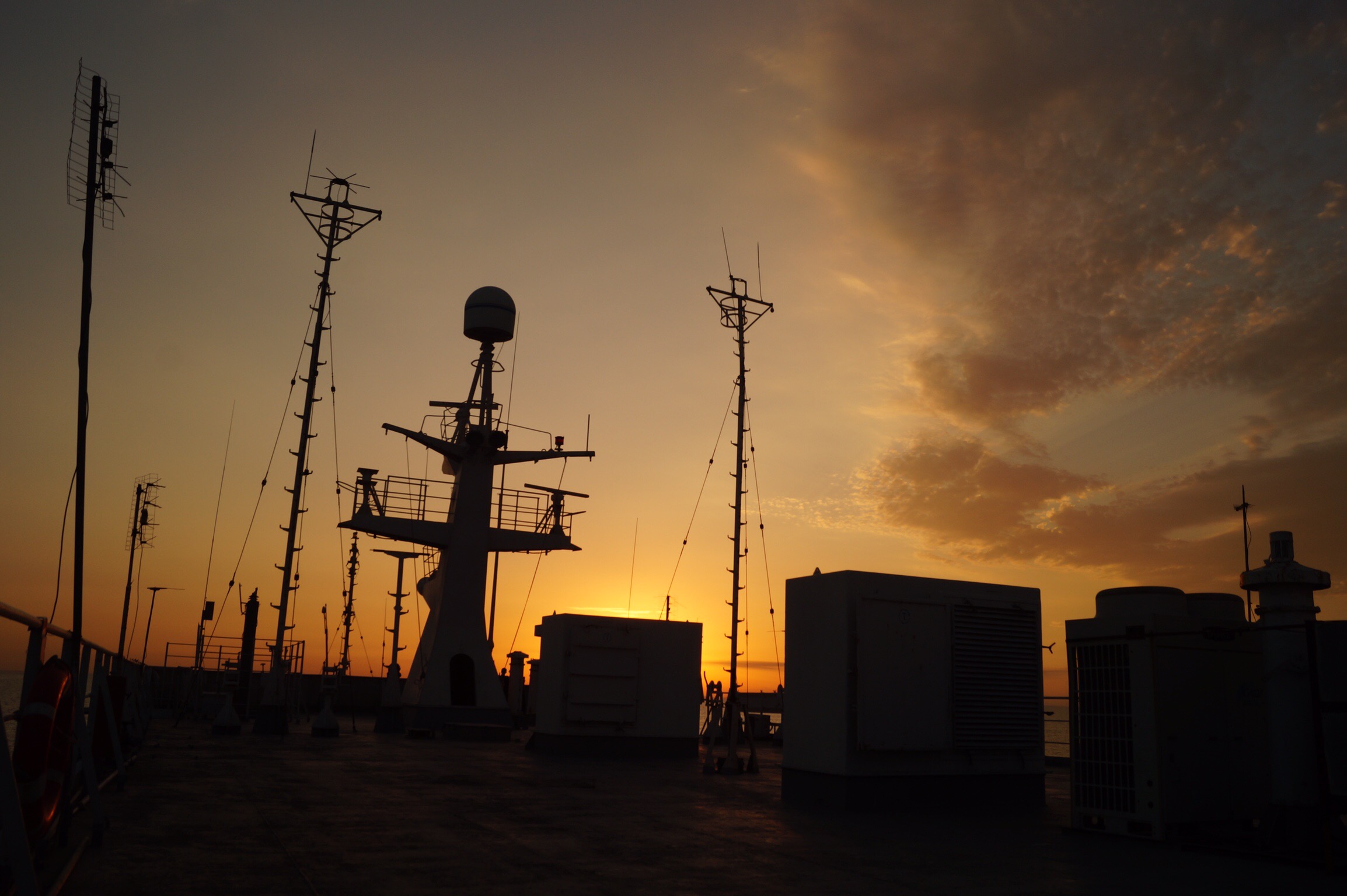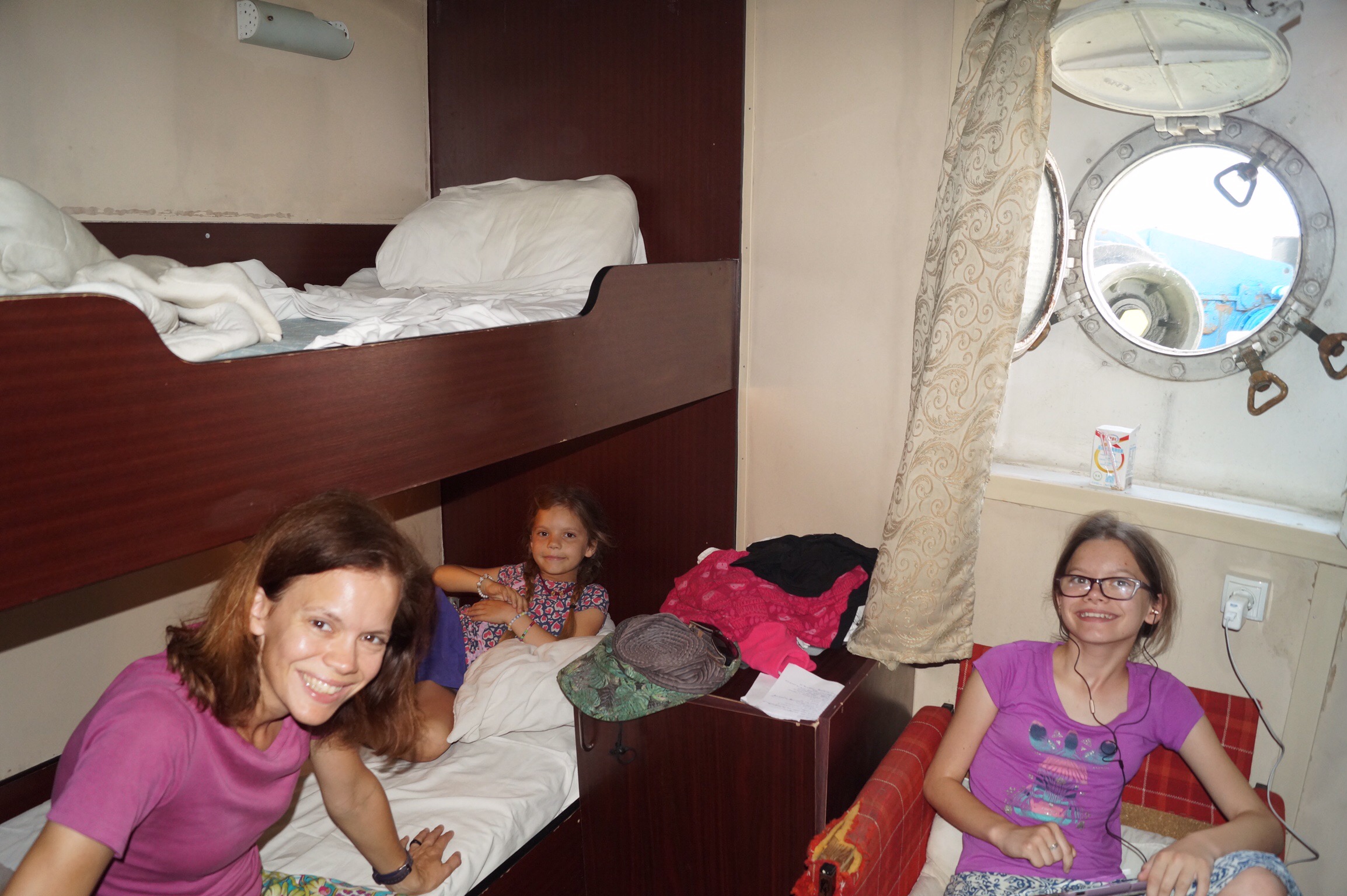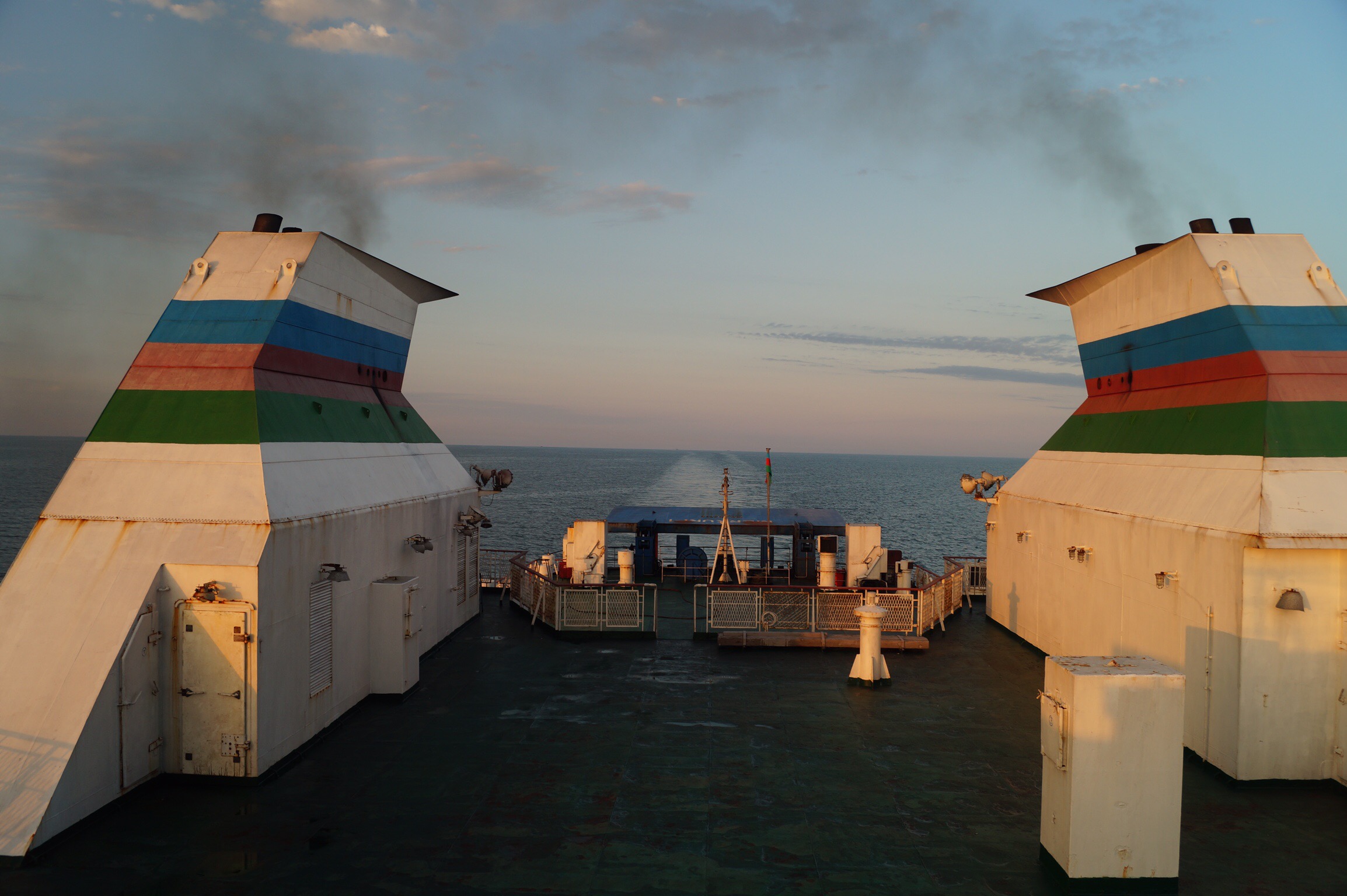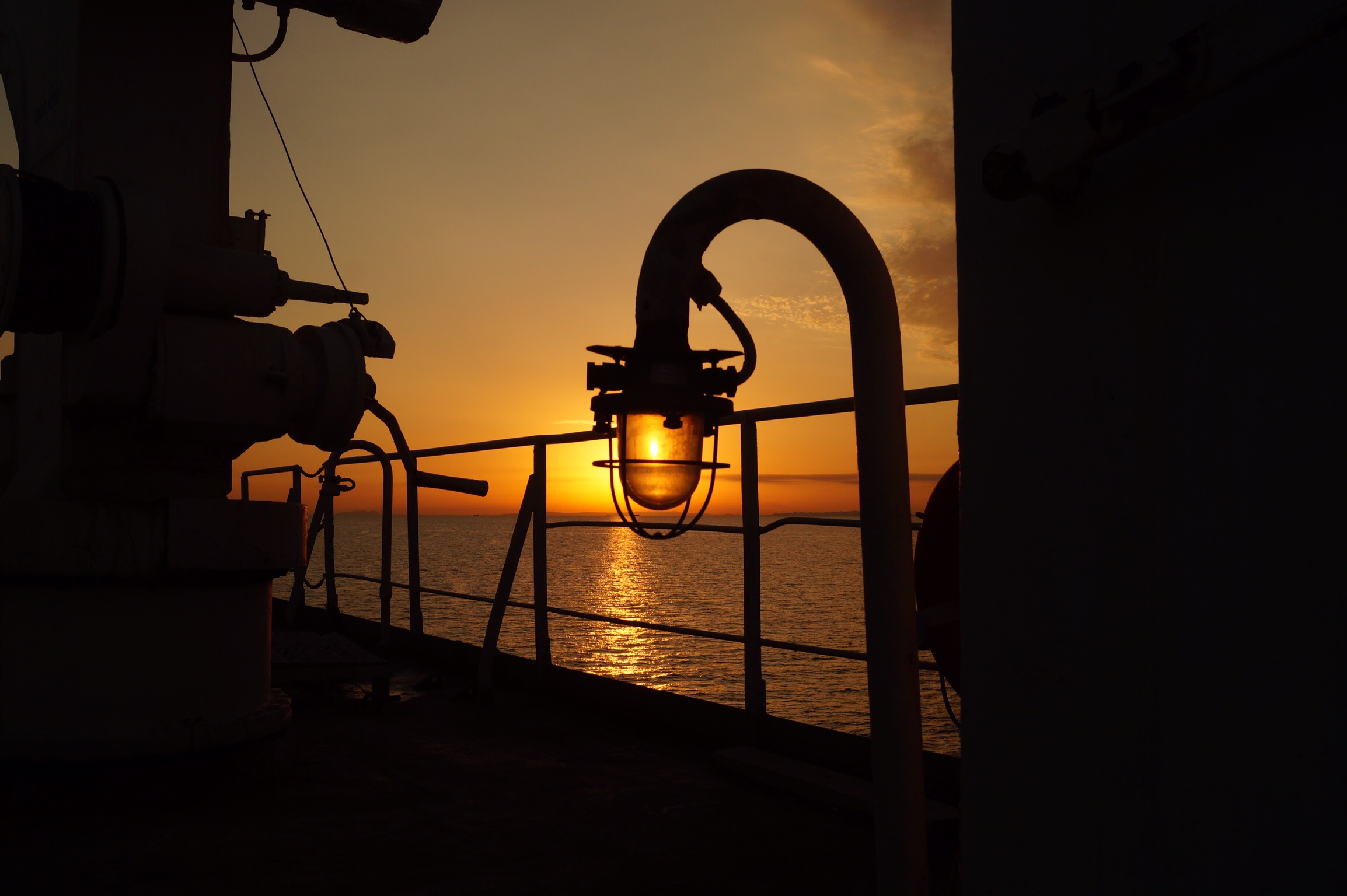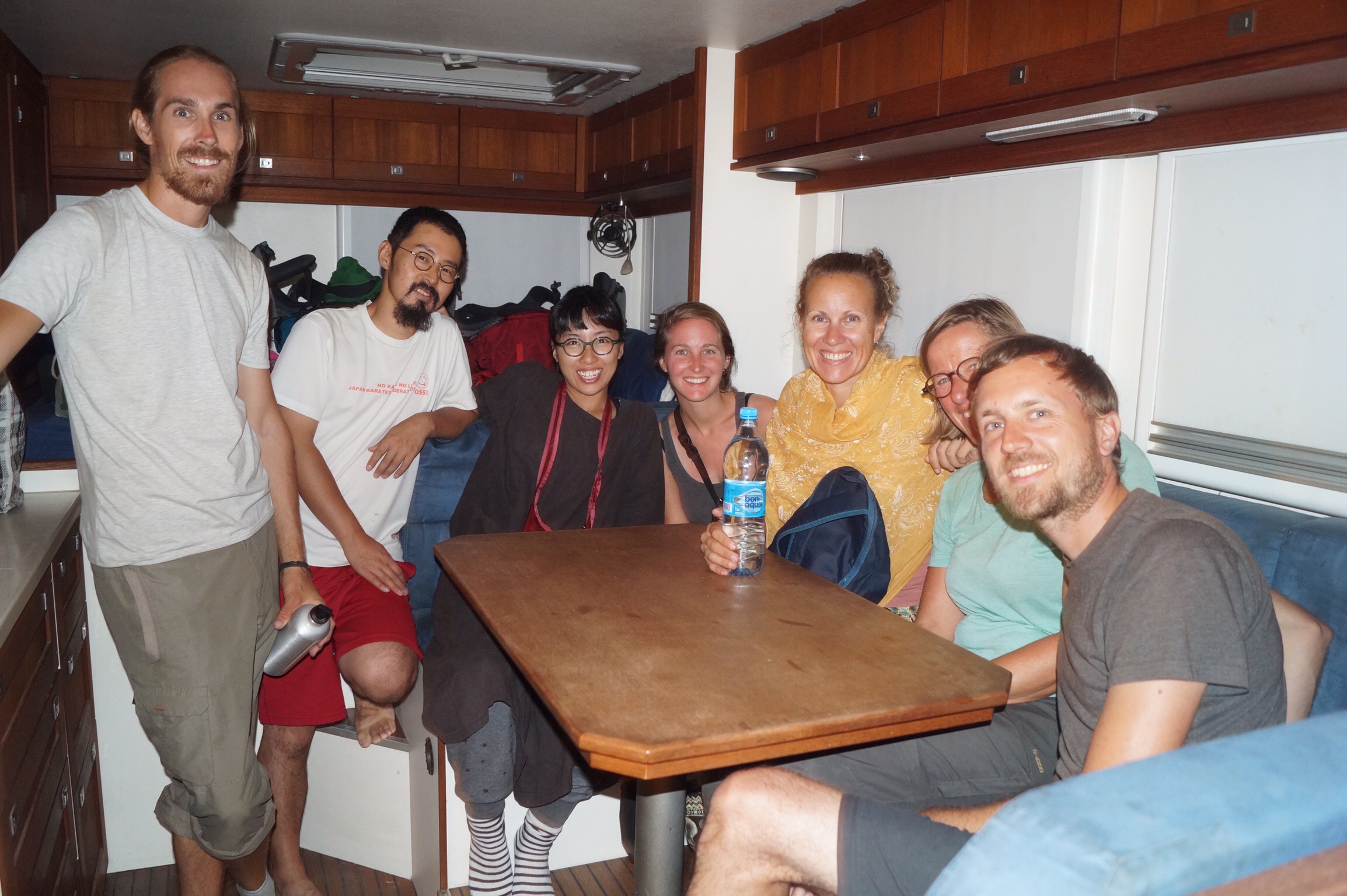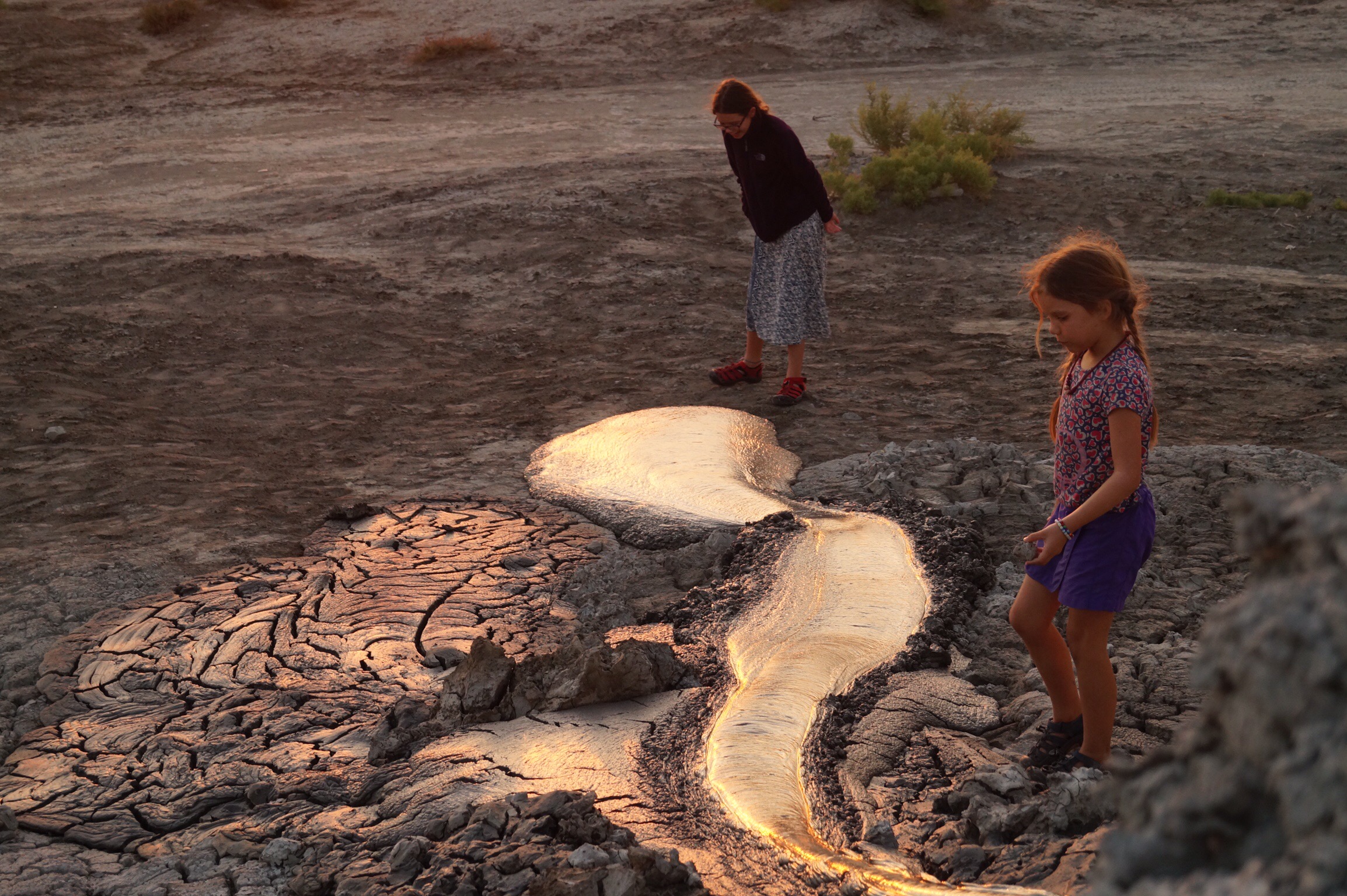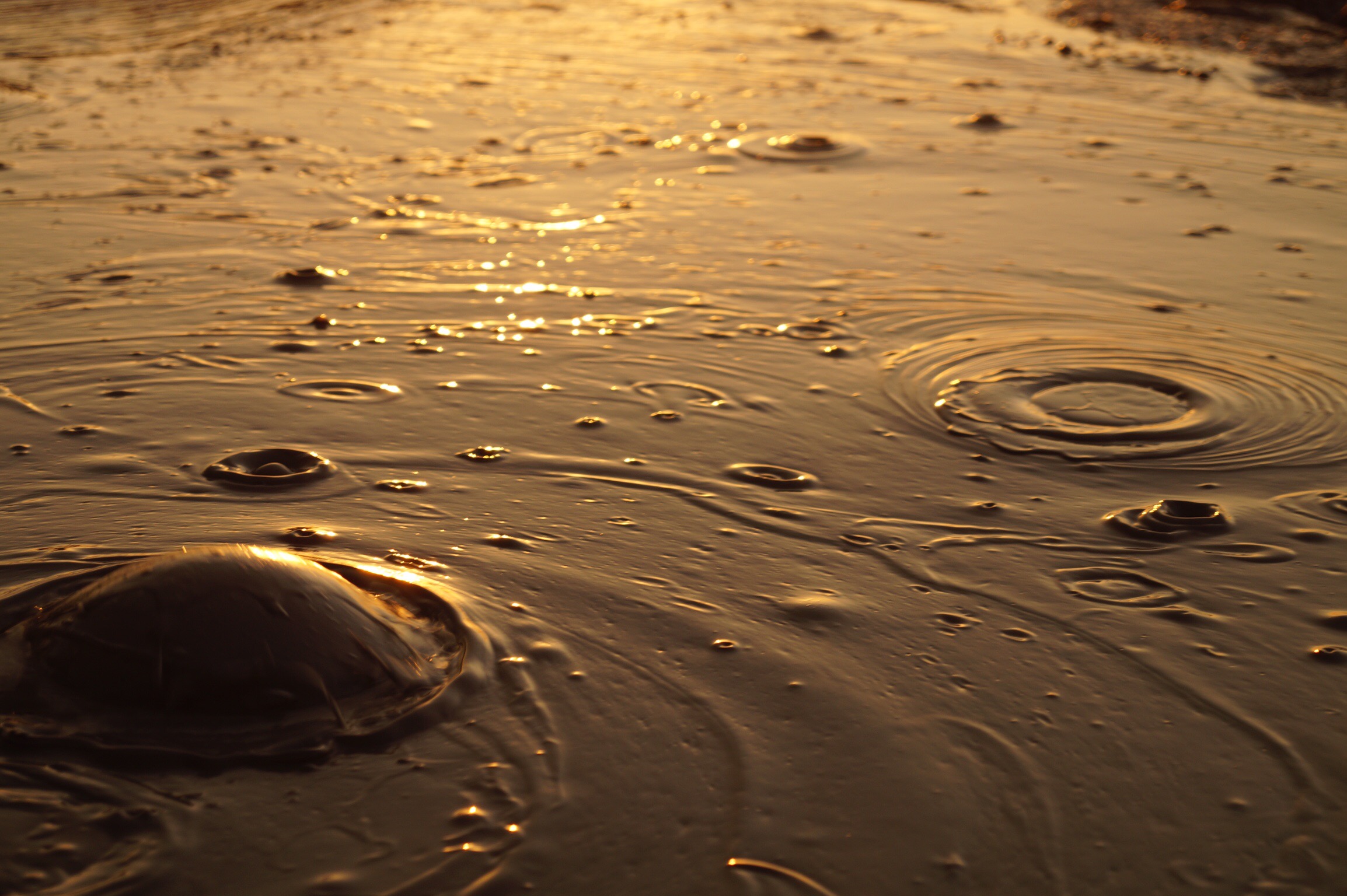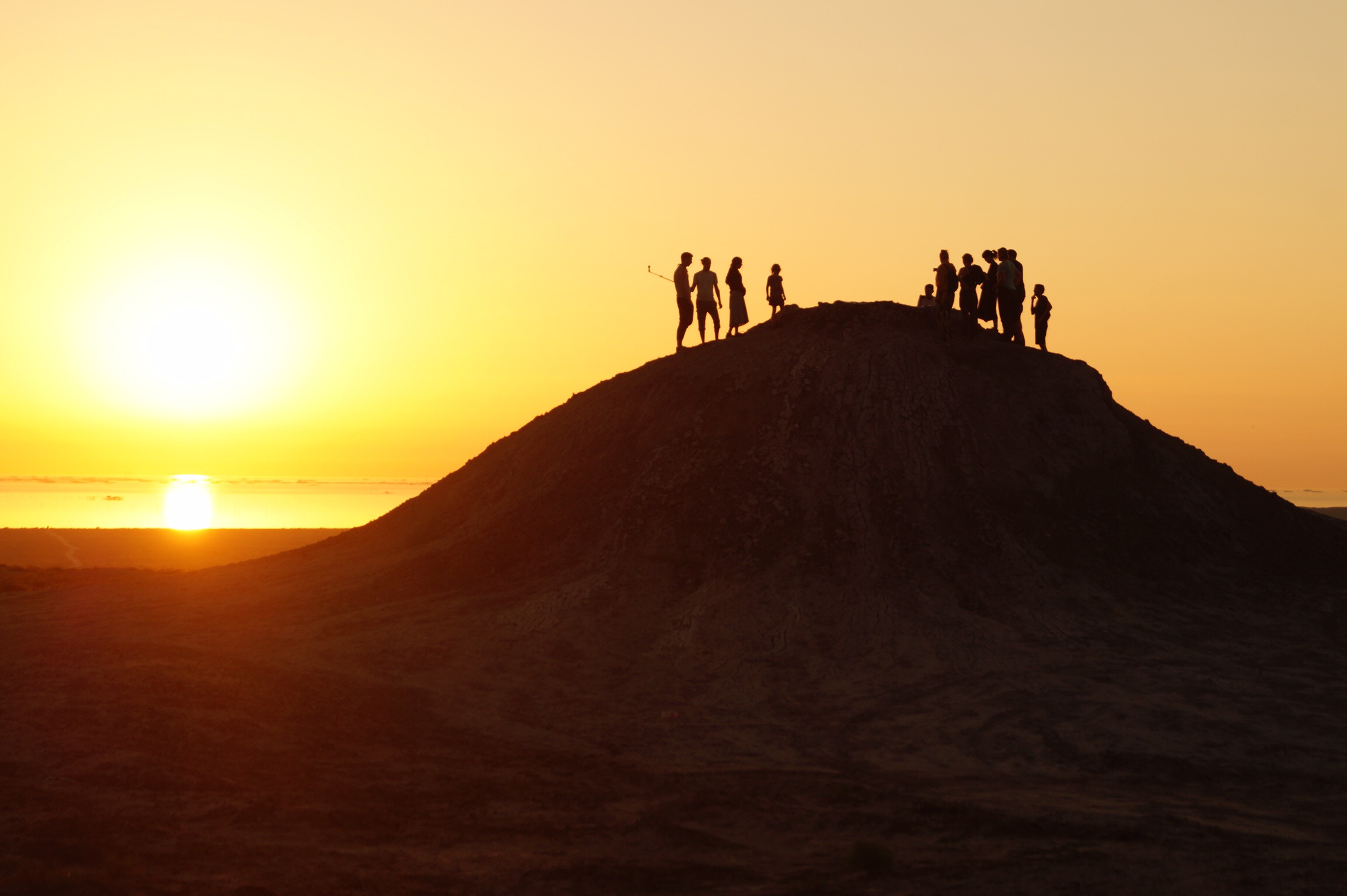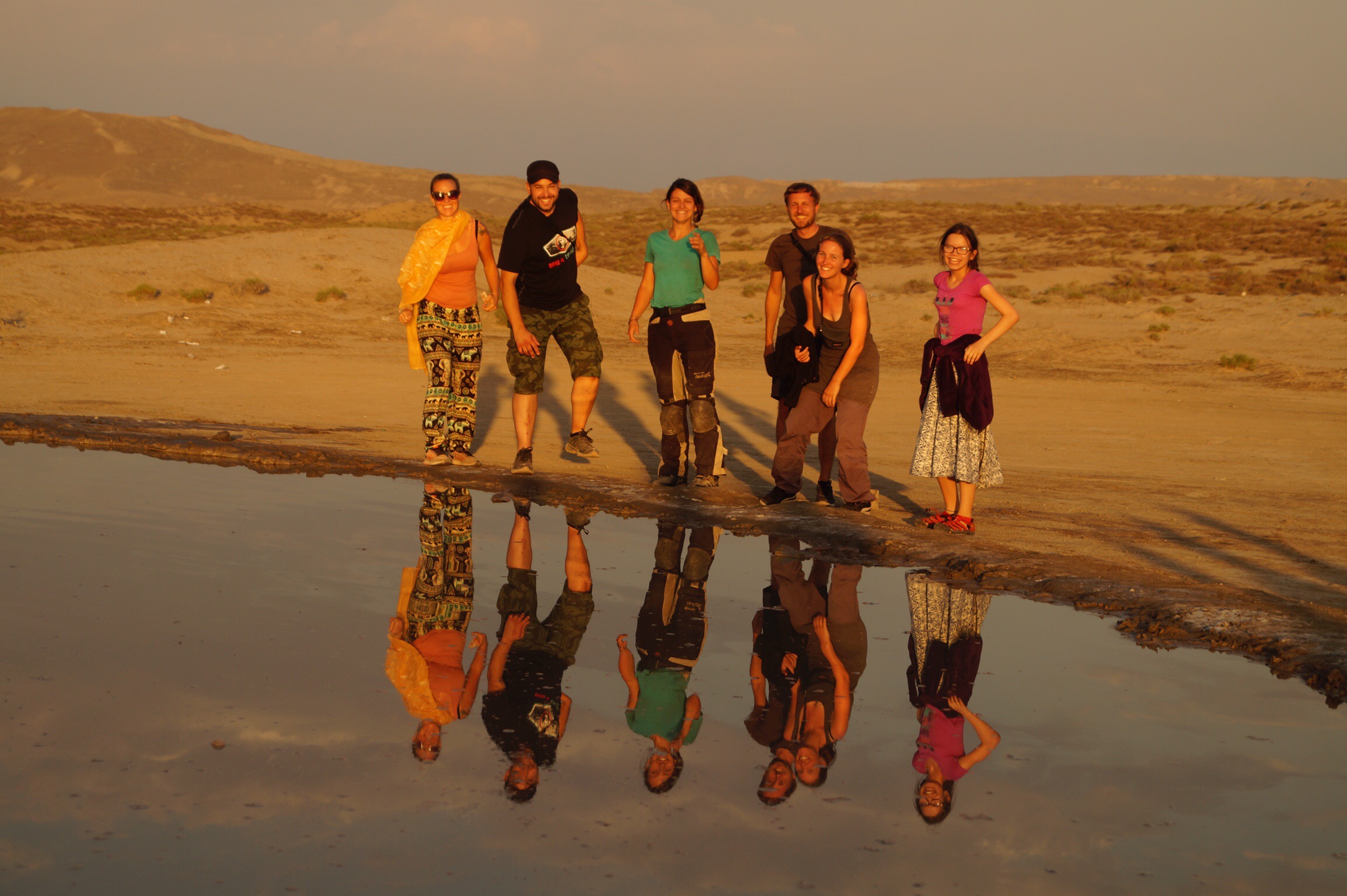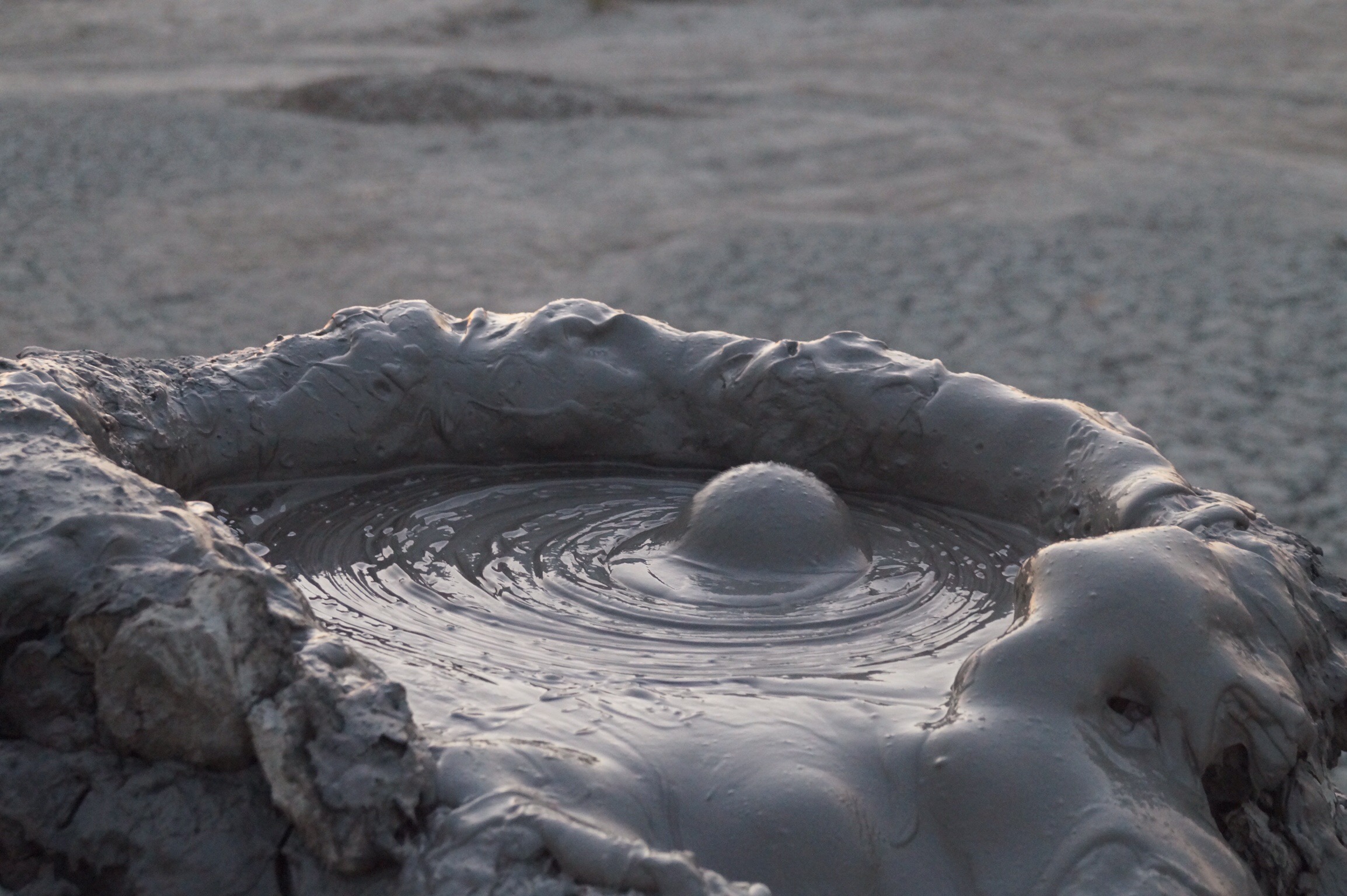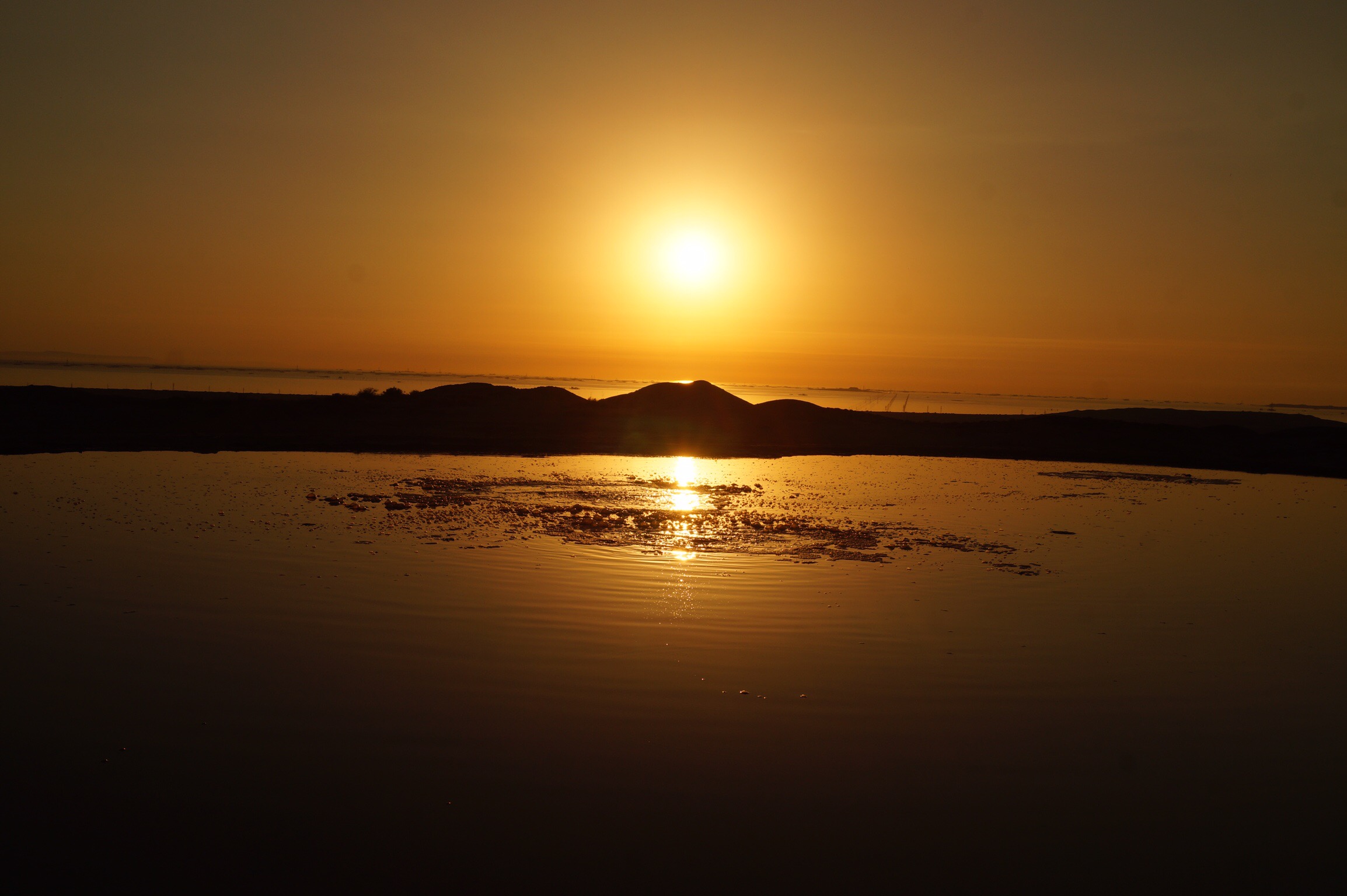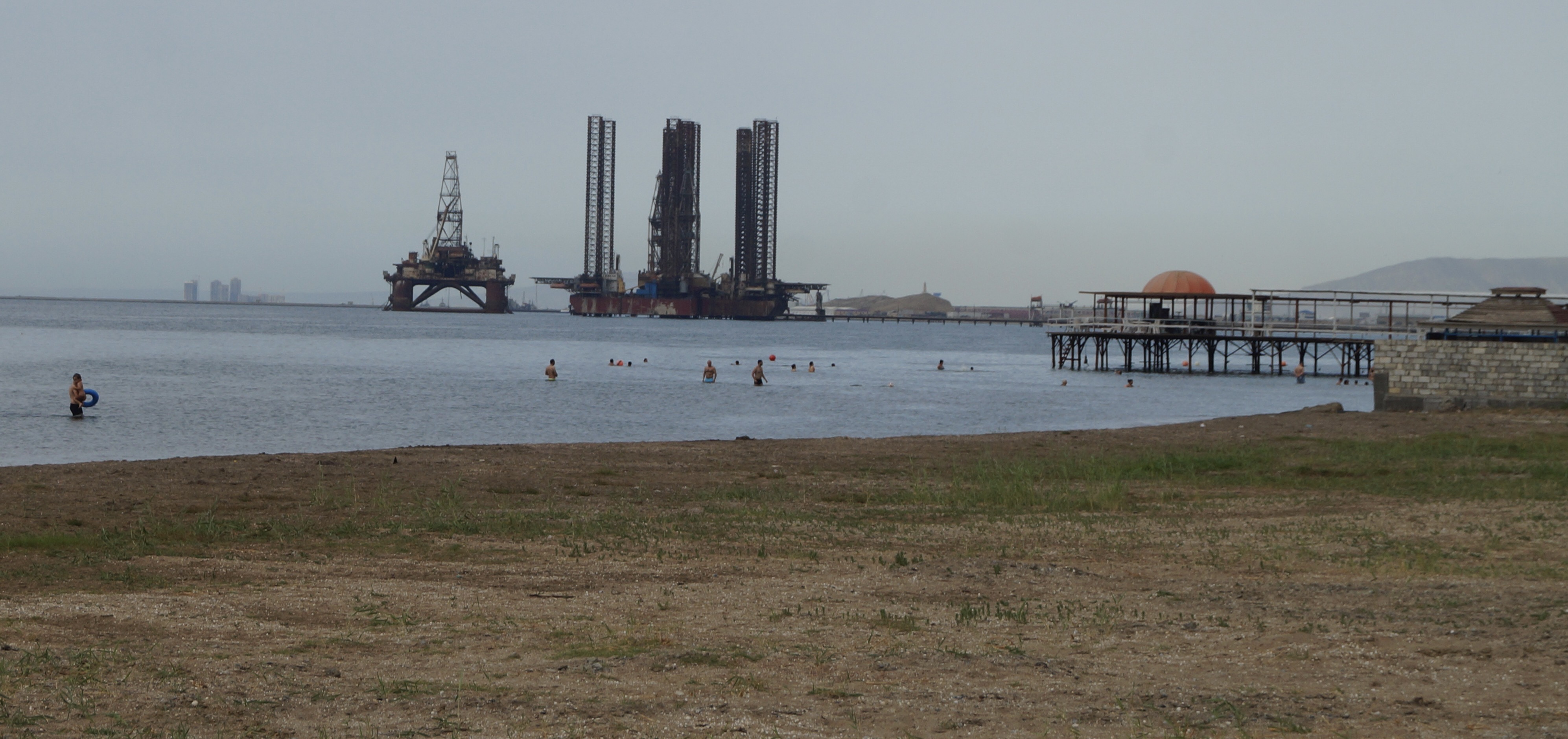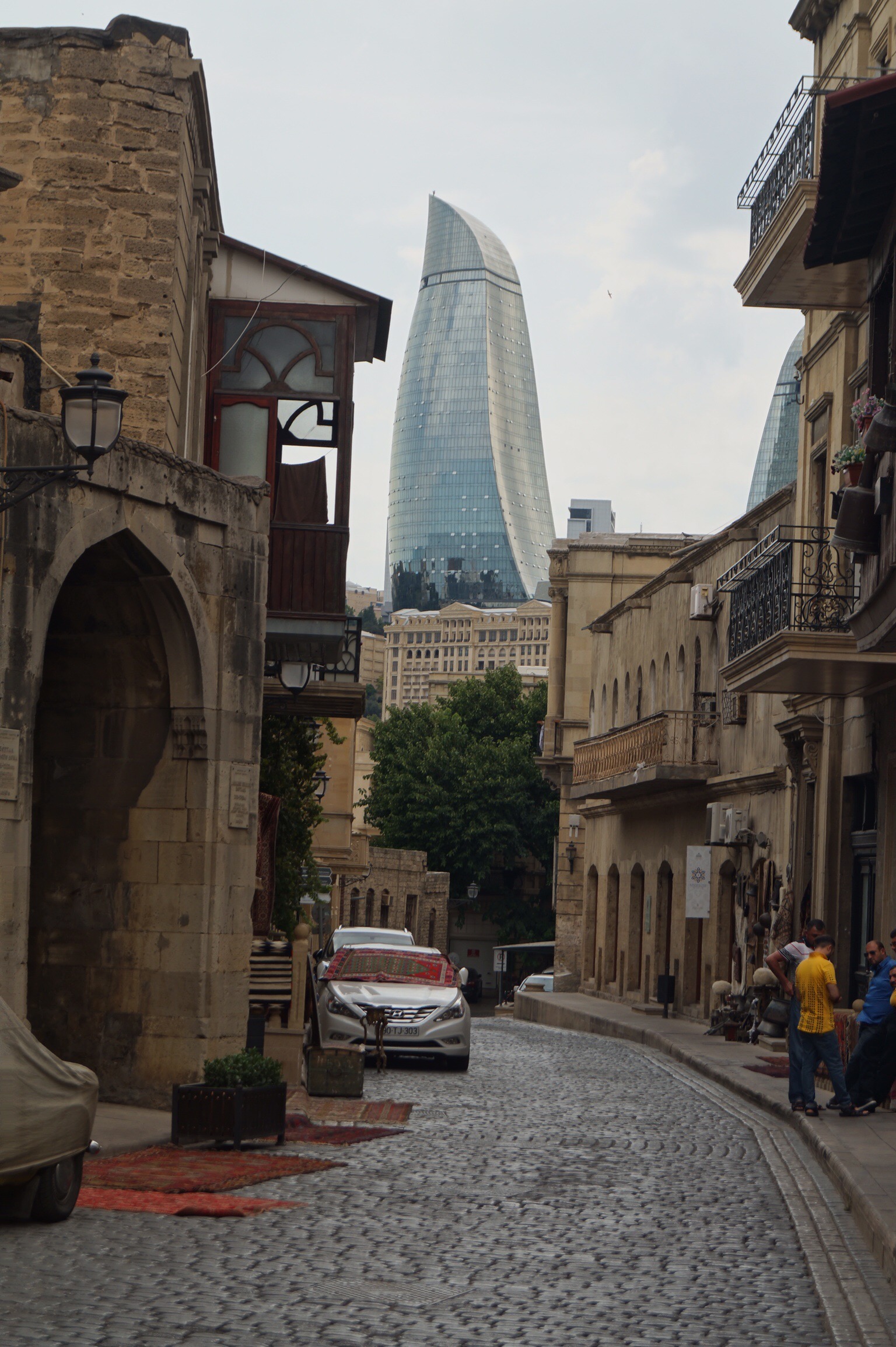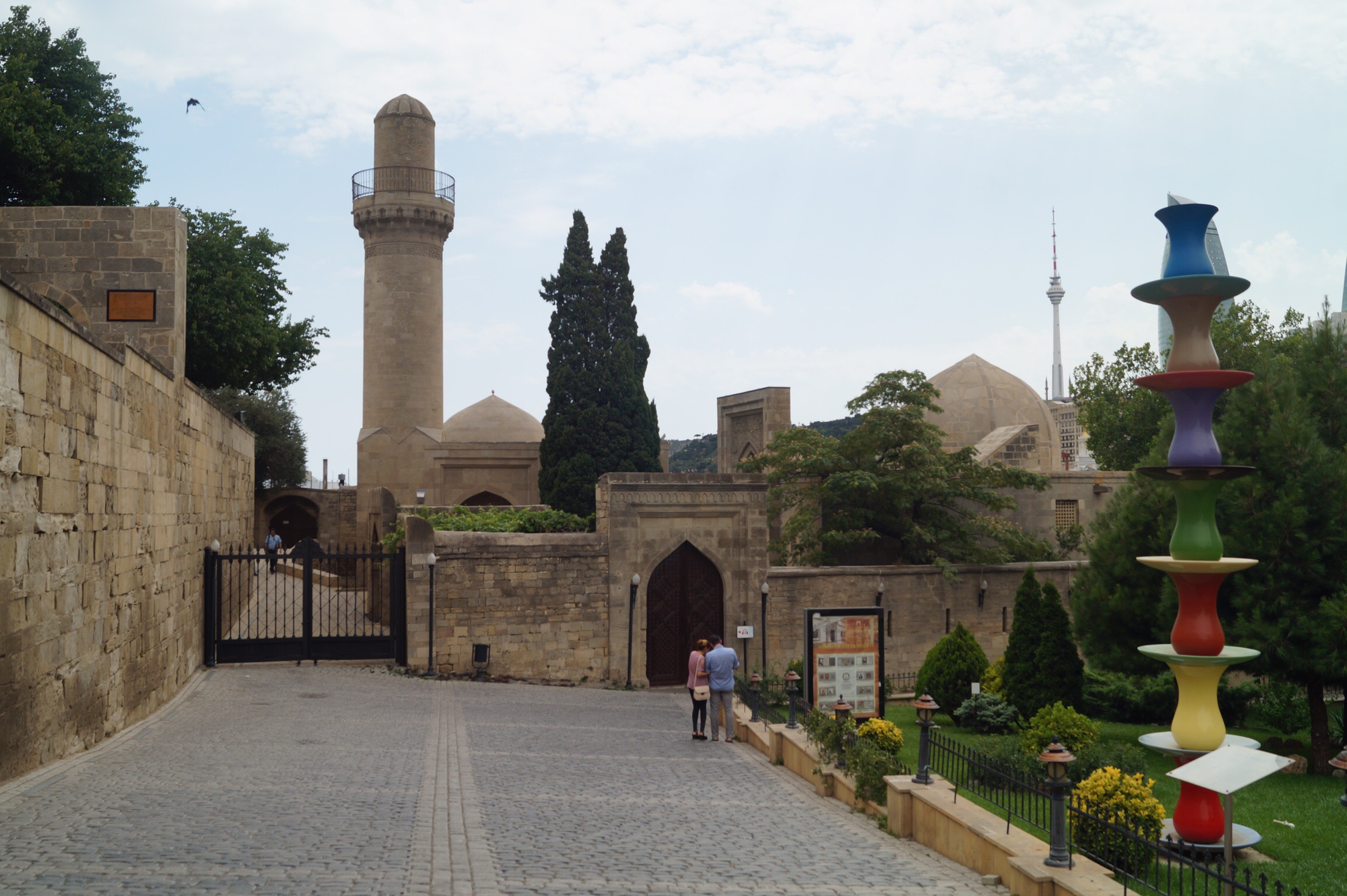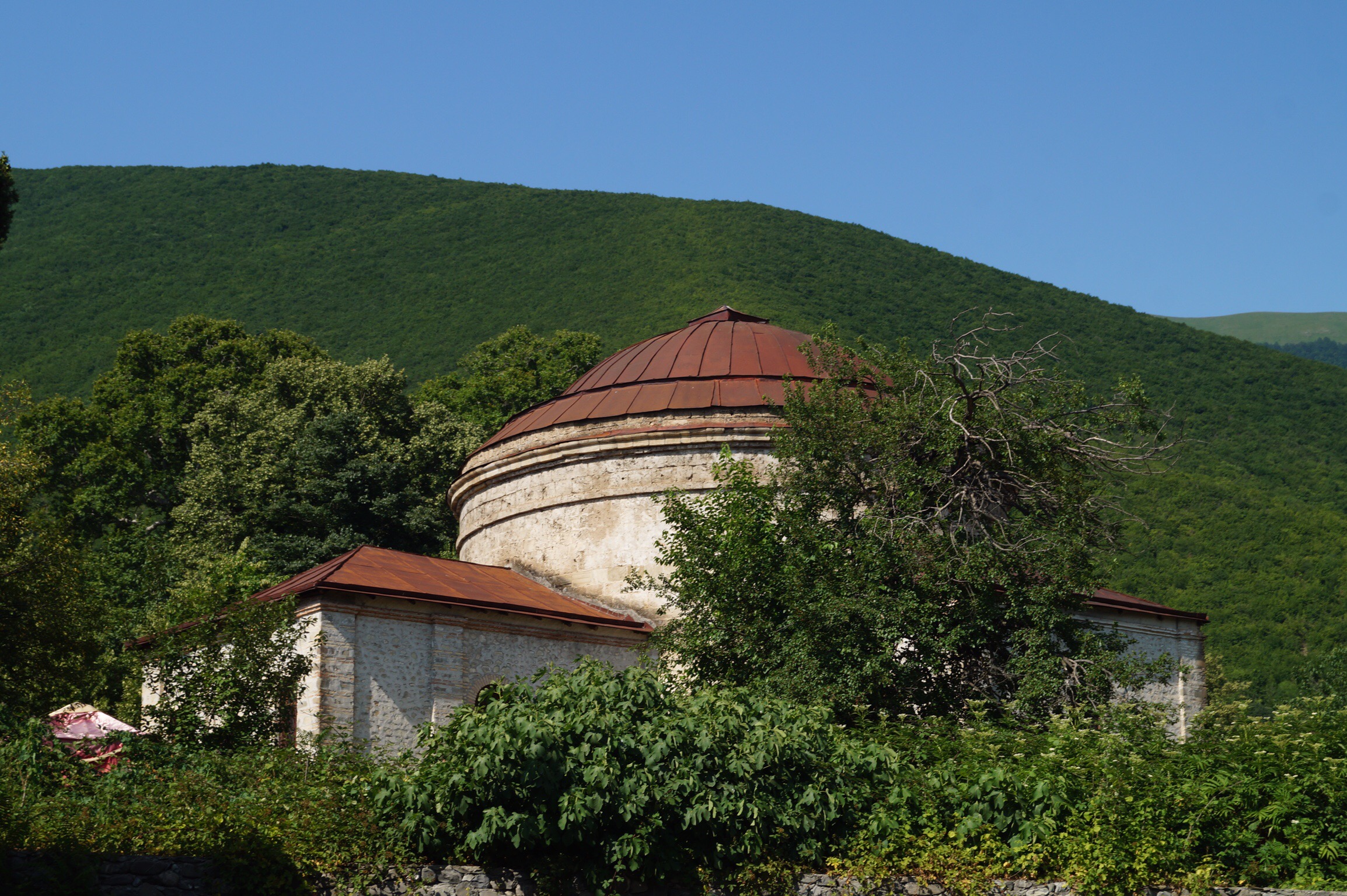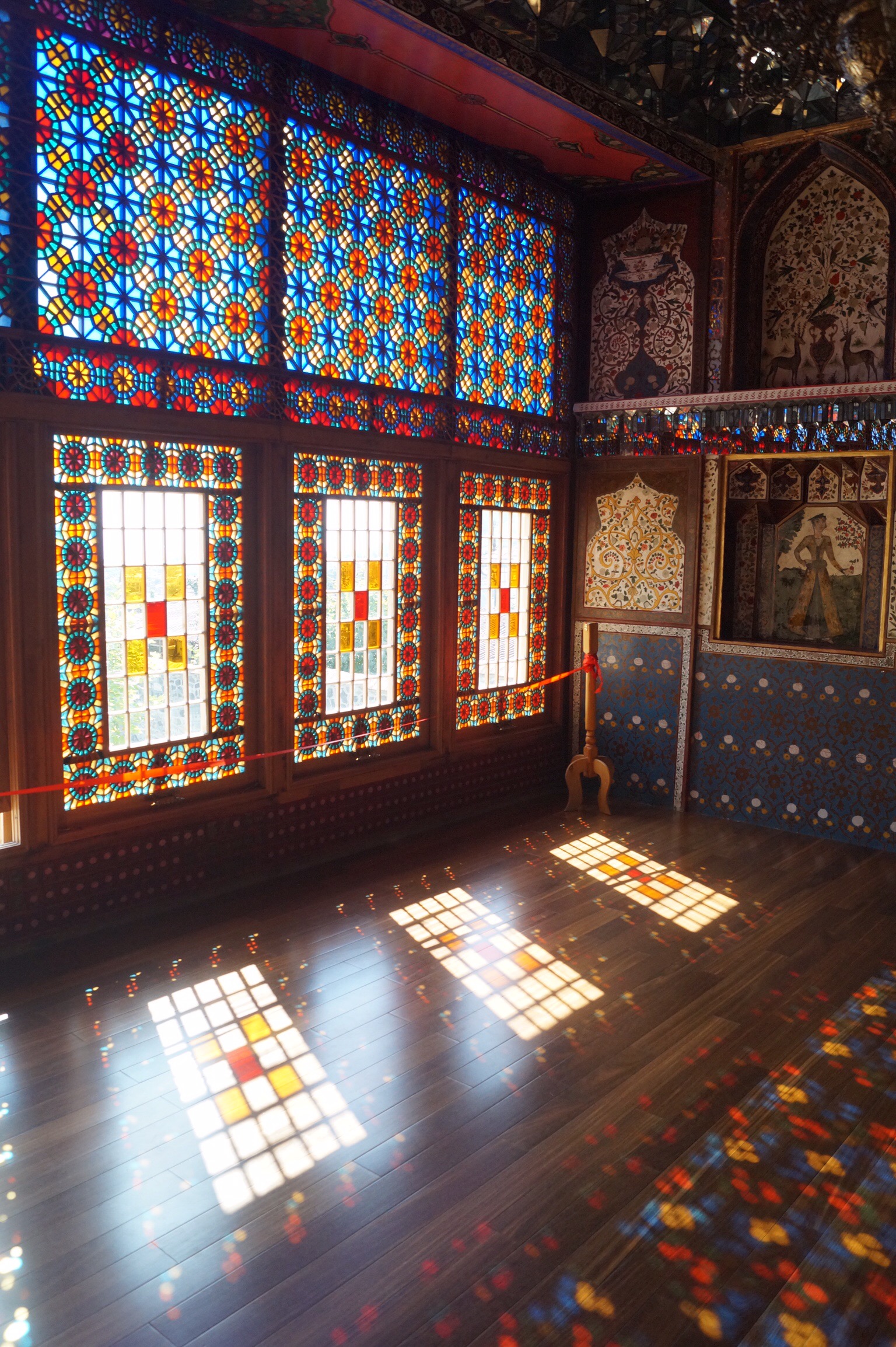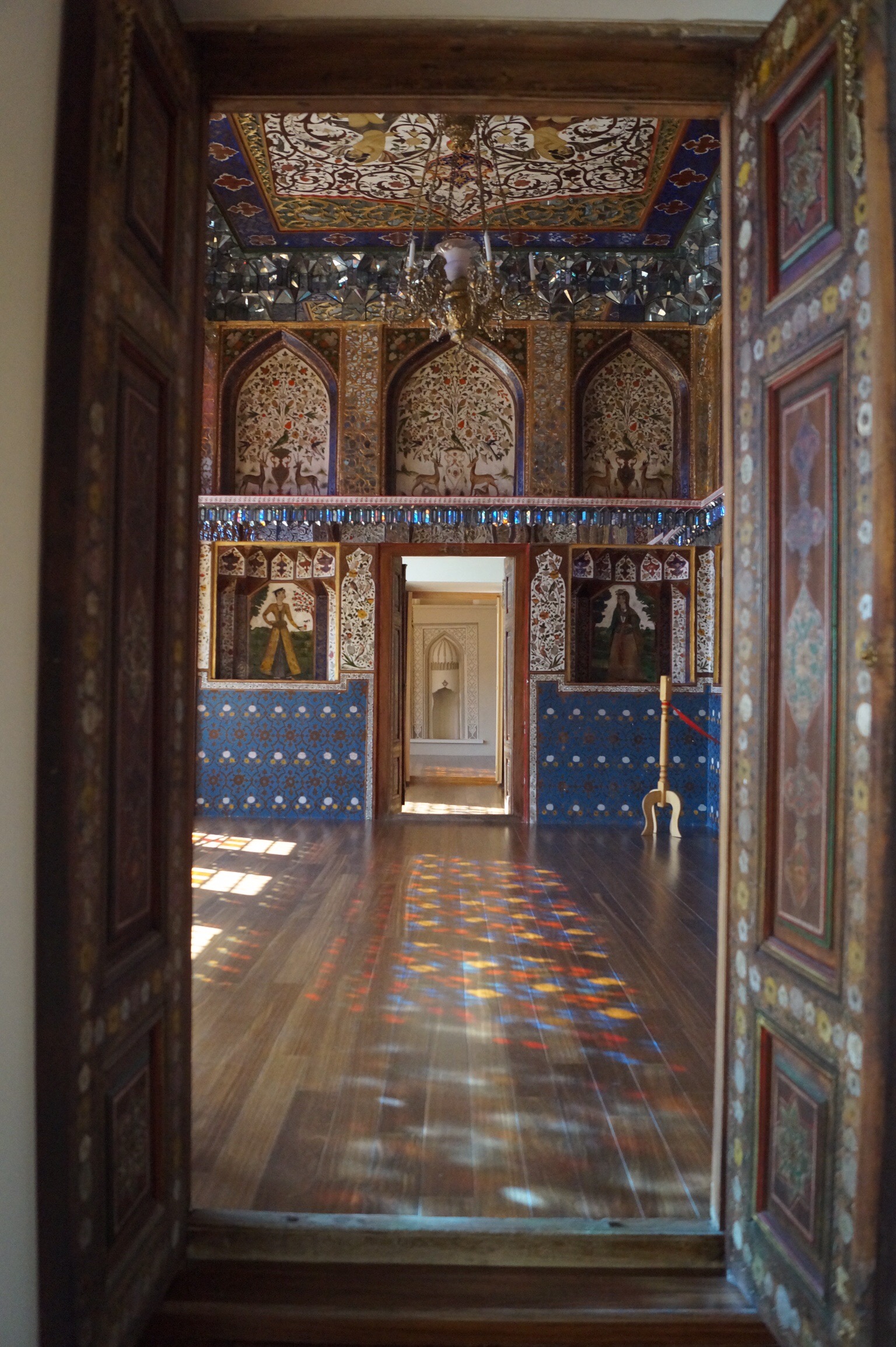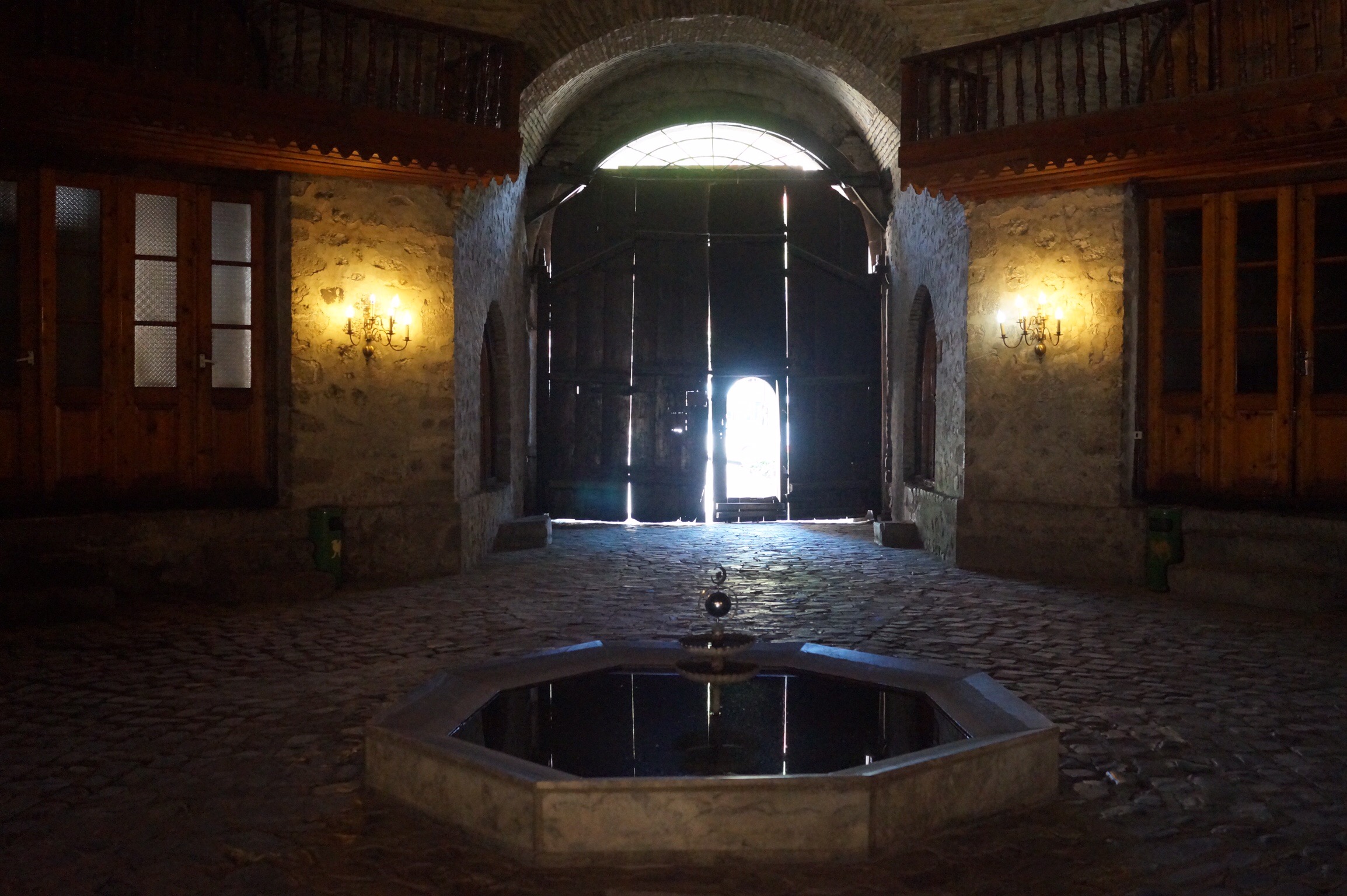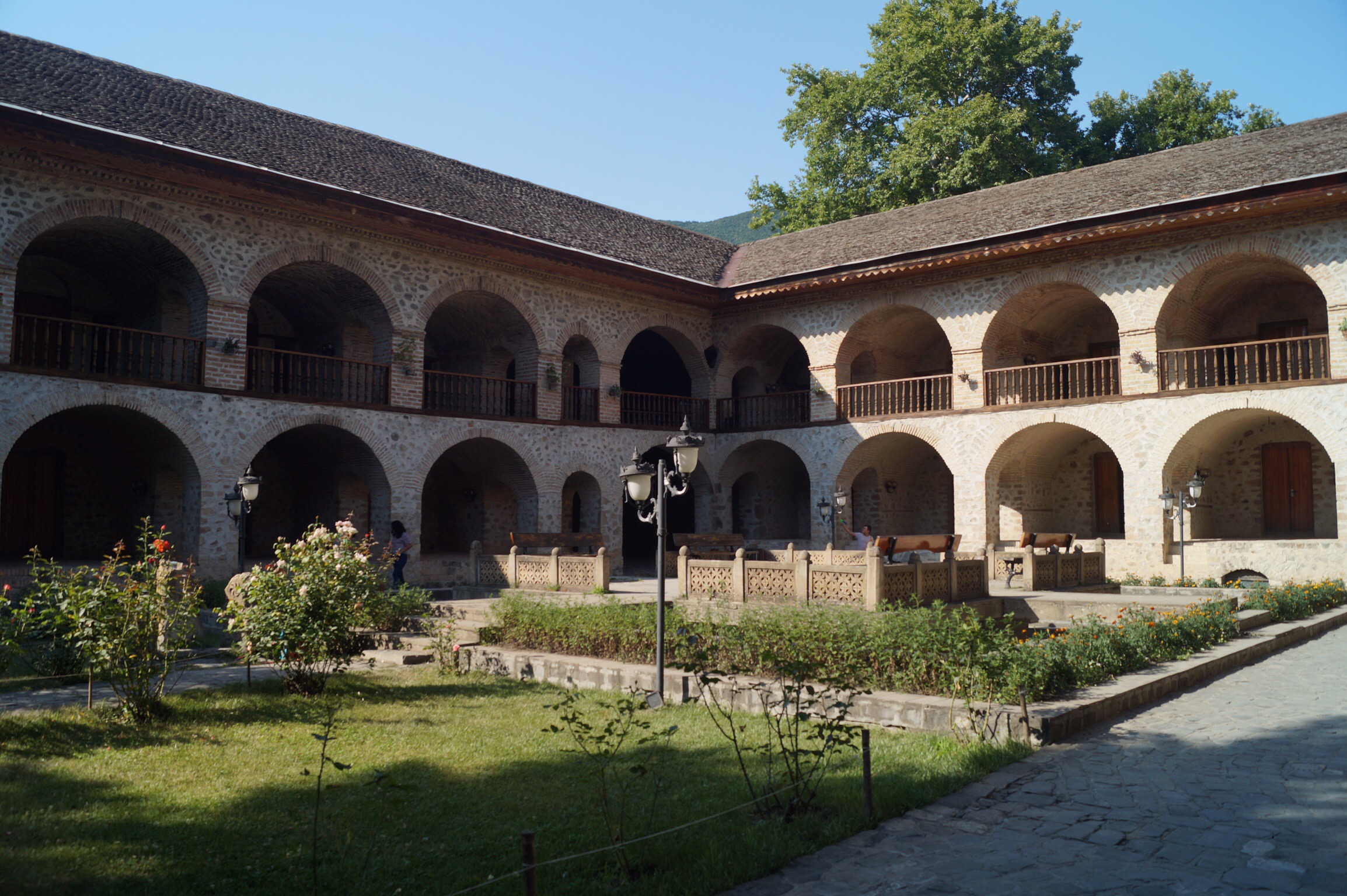I was awoken by the call to prayer from a distant mosque, the Muezzin had a wonderfully melodious voice, so for once I wasn't upset at being awoken at 4.30. I lay back listening smiling, thinking of all the other calls to prayer we have been awoken by on this journey and others. Then came a distinctive unfamiliar sound, a rushing, blowing sound. A hairdryer perhaps? Jet engine? Unlikely, as we were camped out in the Cappadocian countryside under the weirdly sculptured "fairy chimneys". Peeking out of the window into the half light I squeaked with delight, awaking Steve. Just 150m from us were 9 huge hot air balloons being inflated. Throwing on clothes, we rushed out to investigate and were even more delighted to find scores of balloons inflating on nearby hillsides. A few had started to drift skywards, their bursts of flame lighting up the pre-dawn sky.
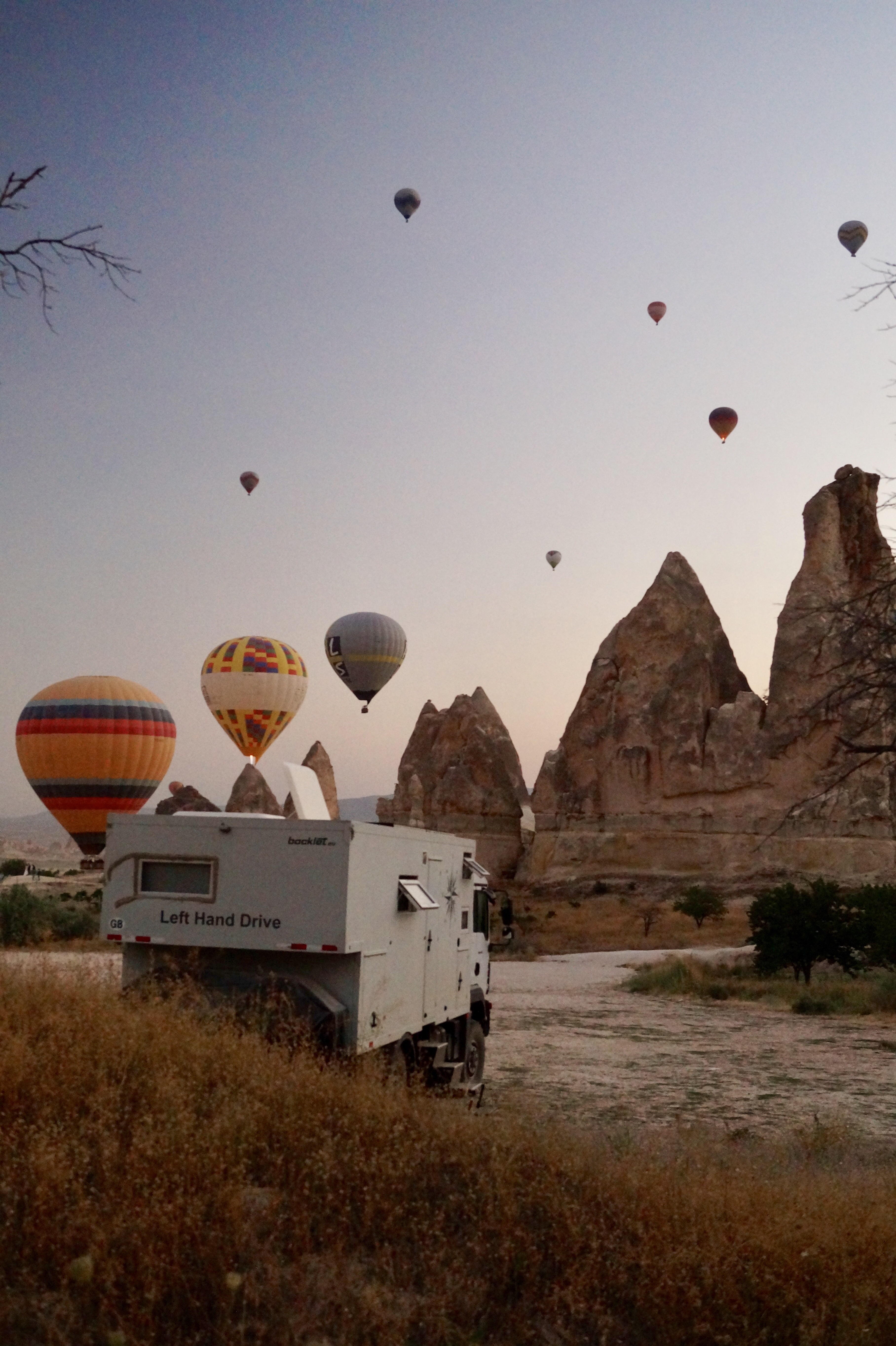
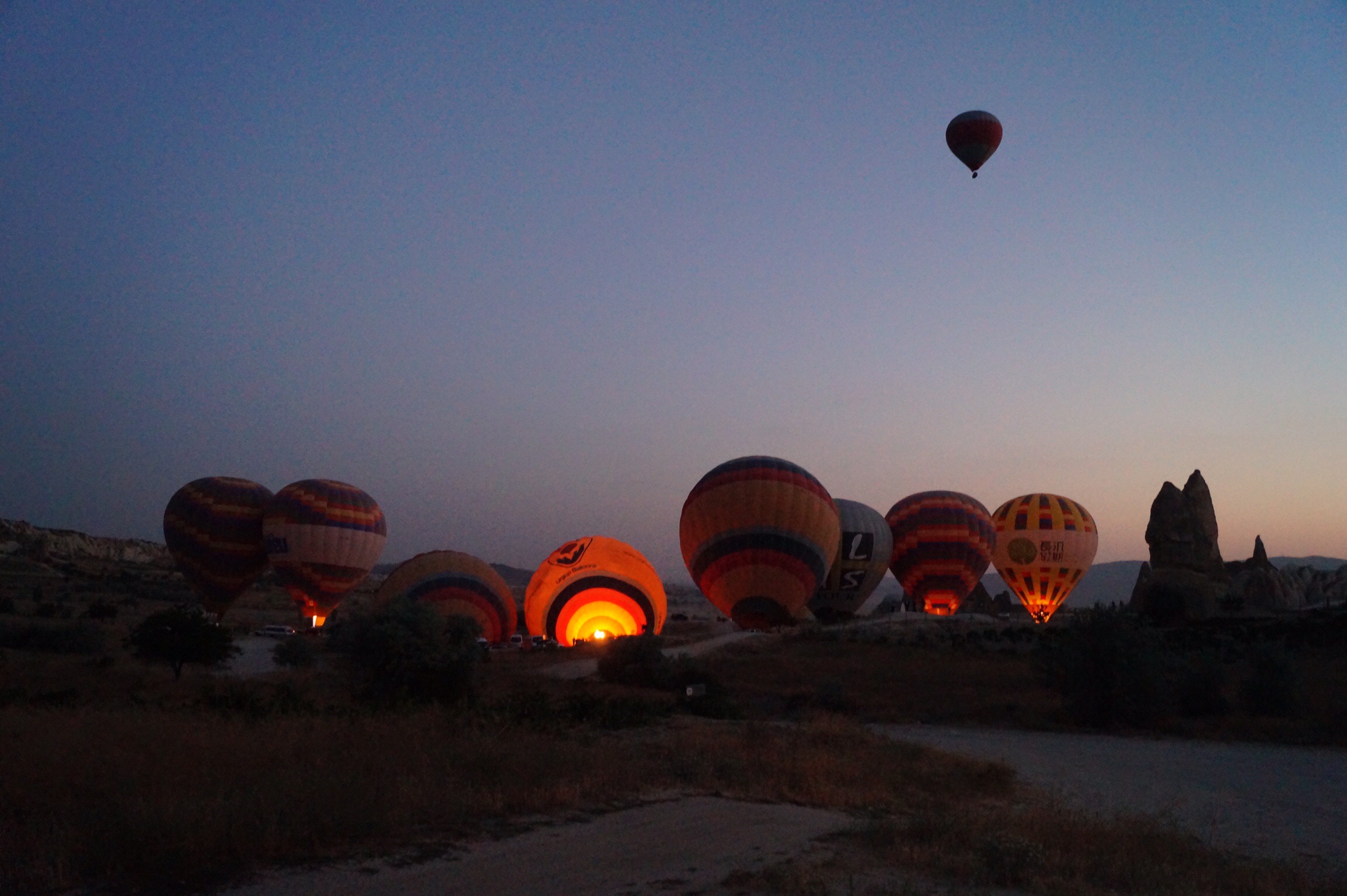
The girls were slightly less enthusiastic, only arising on their own terms to sip hot chocolate on the truck's roof and admire the spectacle, while Steve and I admired the fifty or more balloons in the sunrise from a nearby hill. The only others around were bridal couples dressed to the nines and fully made up, which must be painful at that time of the morning, for beautiful wedding shots.
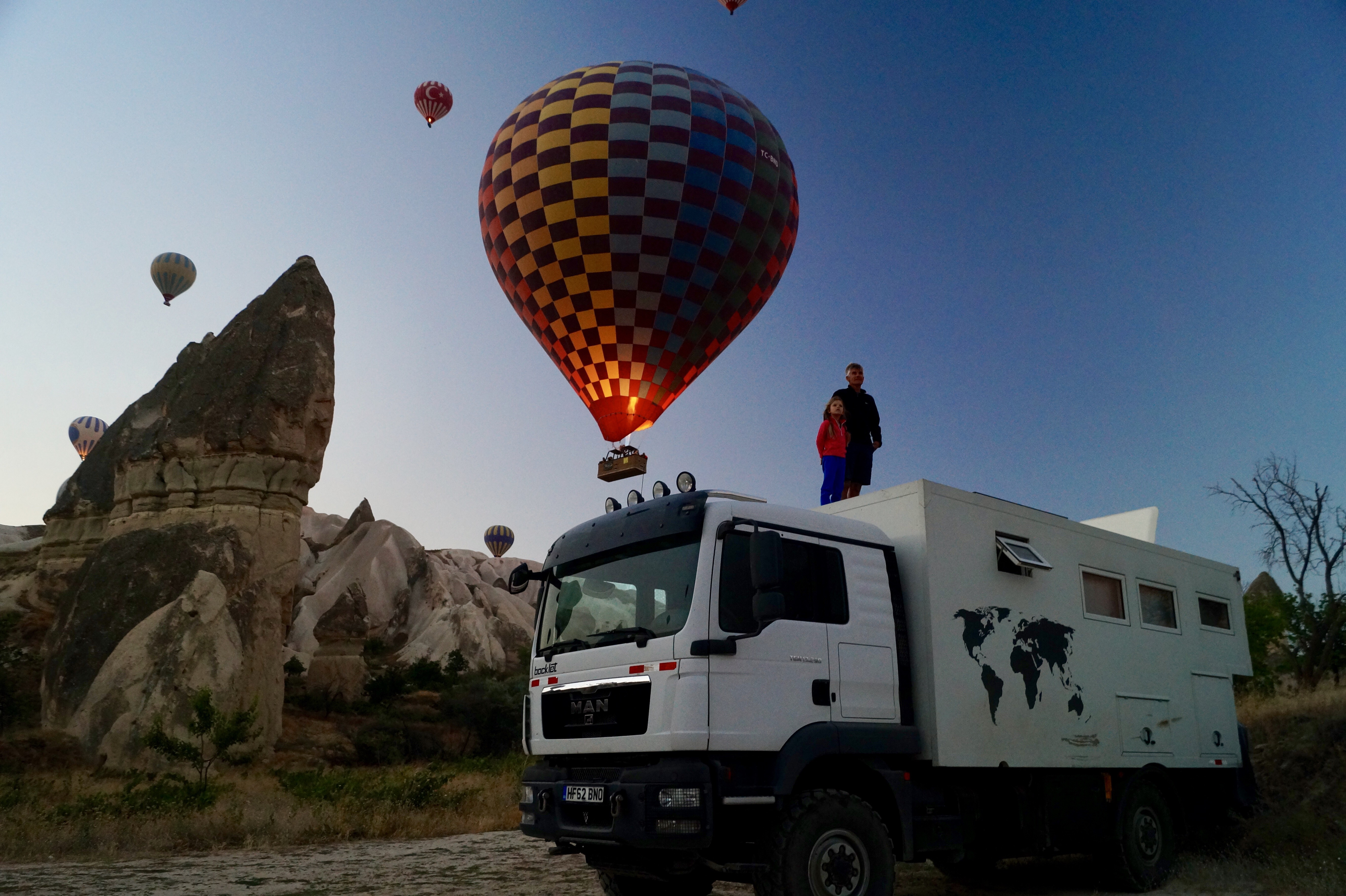

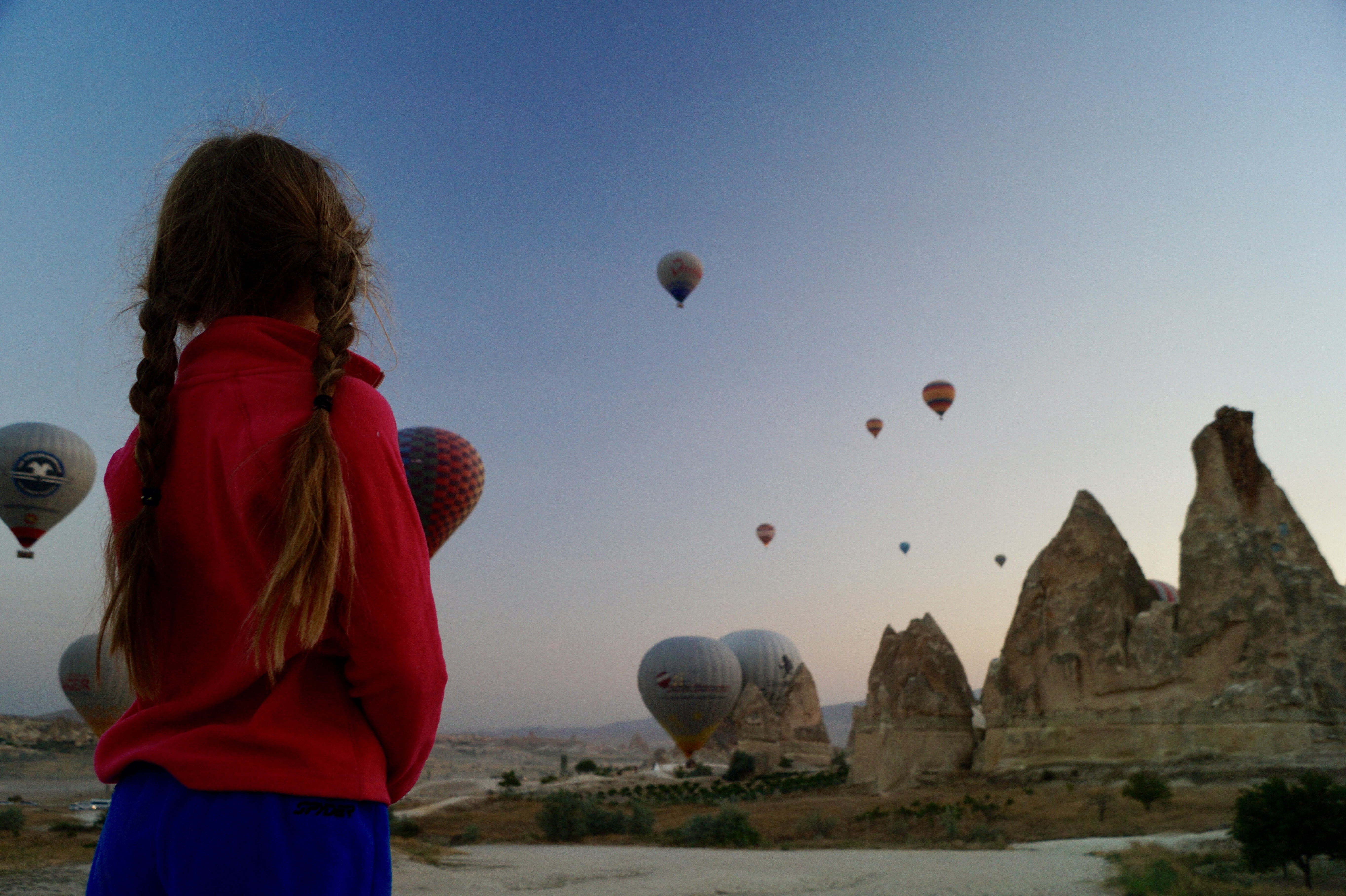
It had been a long couple of days drive from the Georgian border to Cappadocia, it was on mostly wonderfully smooth highways. The first night in the country we drove up a tiny winding mountain road hoping to find a good place to park for the night, it looked ideal with small fields of recently cut grass drying in the last rays of sun in the evening. We were well away from any border or any army posts. Not wanting to trespass on anyone's field we found a small flat patch beside the track and waved good evening to the couple of tractors that passed us by. After the previous night's disruption in Georgia (see our last blog) we crashed out early and were all sweetly sleeping when I was awoken at 10 by the noise of a small truck outside. Peering out, I was alarmed to see two men dressed in black jeans and t-shirts with machine guns having an animated discussion just outside the window! I am sure this is not the way that most husbands wish to be woken up after a relentless day of driving "Steve! Wake up! There are men outside! And they've got guns! Big guns!" Poor man.
As we lay holding our breath peering out, their conversation seemed to need a second and third opinion and they pulled out their mobiles. I allowed myself a little bit of oxygen, surely robbers or terrorists wouldn't be dialling a friend before whatever they were planning on doing. Steve took the brave option and decided to dress and go out. With a cheery sounding "Hello"; a big smile; and a hand outstretched to shake, he walked up to the men. This approach was obviously the correct one, like the start of all male interactions in this part of the world they stretched out their hands to shake Steve's hand, clumsily juggling with their machine guns. Phew! I allowed myself to breathe a little.
Now we had to ascertain who they were and what did they want, it turned out they wanted to know exactly the same thing from us. We soon realised that Turkish and English have very few common words, thank goodness there was just enough of a phone signal to use google translate. It turned out that although the only symbol of authority they had was their machine guns (that is probably enough), that they were police men and they wanted us to accompany them to the police station.
We set off in convoy, once back on the main road we were met by a squad car and they insisted that a policeman in uniform, but thankfully without a machine gun just a pistol, sit with us in the cab. Instead of stopping in the next village we drove off up a winding rough track. Eeek! Had we just been duped by some scary pretend police bandits and they were now taking us off somewhere else. We were very relieved when a sign directed us to a hilltop "Jandarma" By the time we had got to the station, they had clocked onto the fact that we weren't of any threat to national security, so it was smiles all round. After about an hour of checking documents and waking up the local English teacher to translate over the phone, they gave us tea and brought out snacks to the truck for the girls. You never know what the road will bring you: I never envisioned any midnight feasts at police stations when we went to sleep that night. They then escorted us to a flat patch just off the main road, where they could keep an eye on us for the night as they passed on their rounds.
Nearly 3 1/2 years ago in Central America we met Alex and Meira, a young Belgium-Spanish couple in a land cruiser. After meeting them several times in different countries we had a great week with them and others on a beach in Nicaragua, they were great fun and brilliant with the kids too. Since their Pan-Am trip a lot has happened, they got married and had 2 babies. We heard that Alex was going to be doing the Mongol Rally, a rally between the UK and Mongolia, in a Nissan Micra with a friend, we hoped that somewhere our paths would cross. Remarkably they did, before they turned east for Iran and on our path south we managed to meet at the town of Erzurum. Unfortunately due to both our driving schedules we didn't get to camp up with them for the night but it was still good to catch up with him again for a hour at a garage.
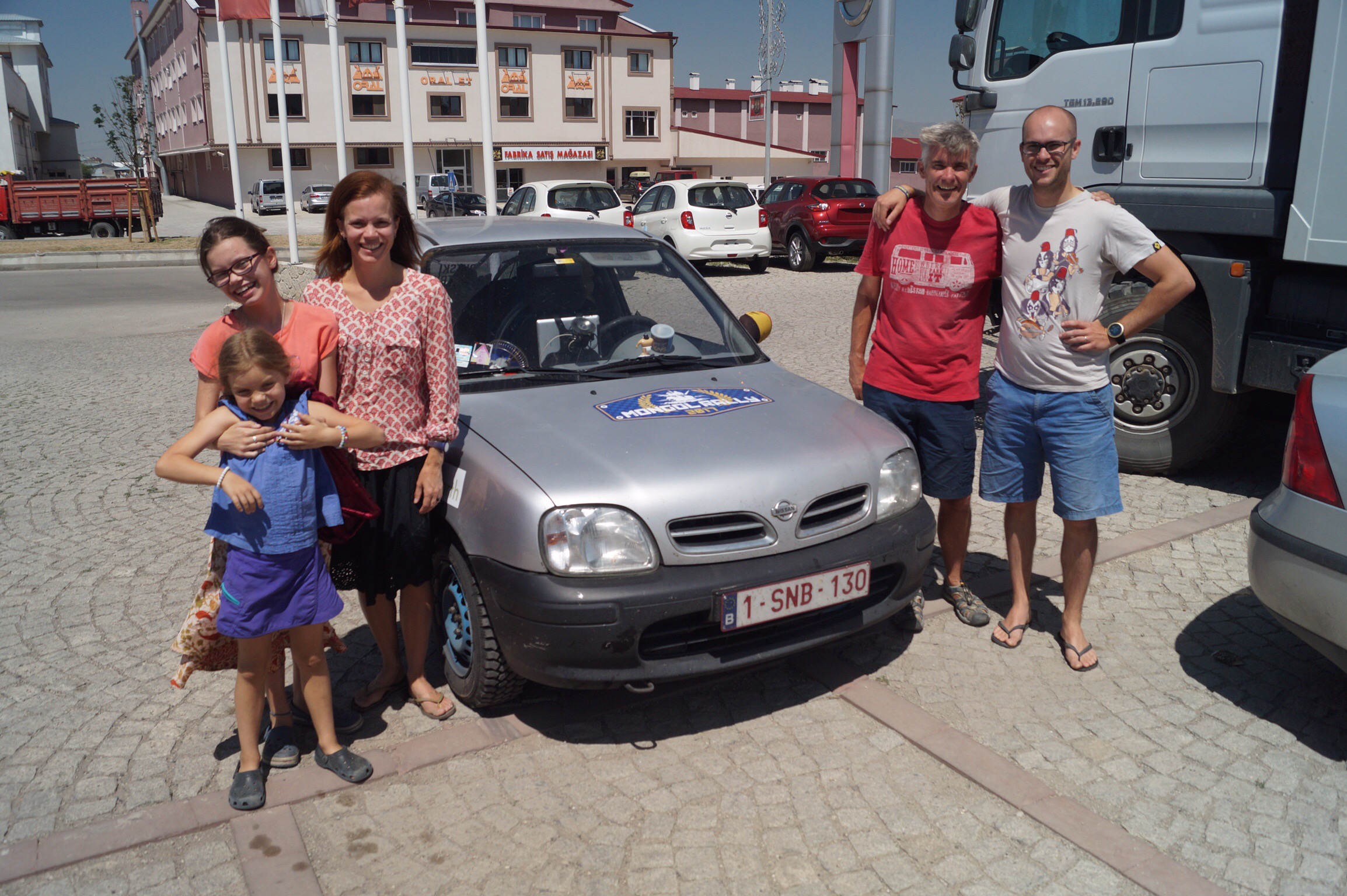
After that it had been another long day's drive, anxious to not repeat the previous night's experience we chose our campsite well in a little picnic spot hidden in the woods. We had to cross a little stream to get to it and the girls had a wonderful time playing and climbing as I cooked supper.
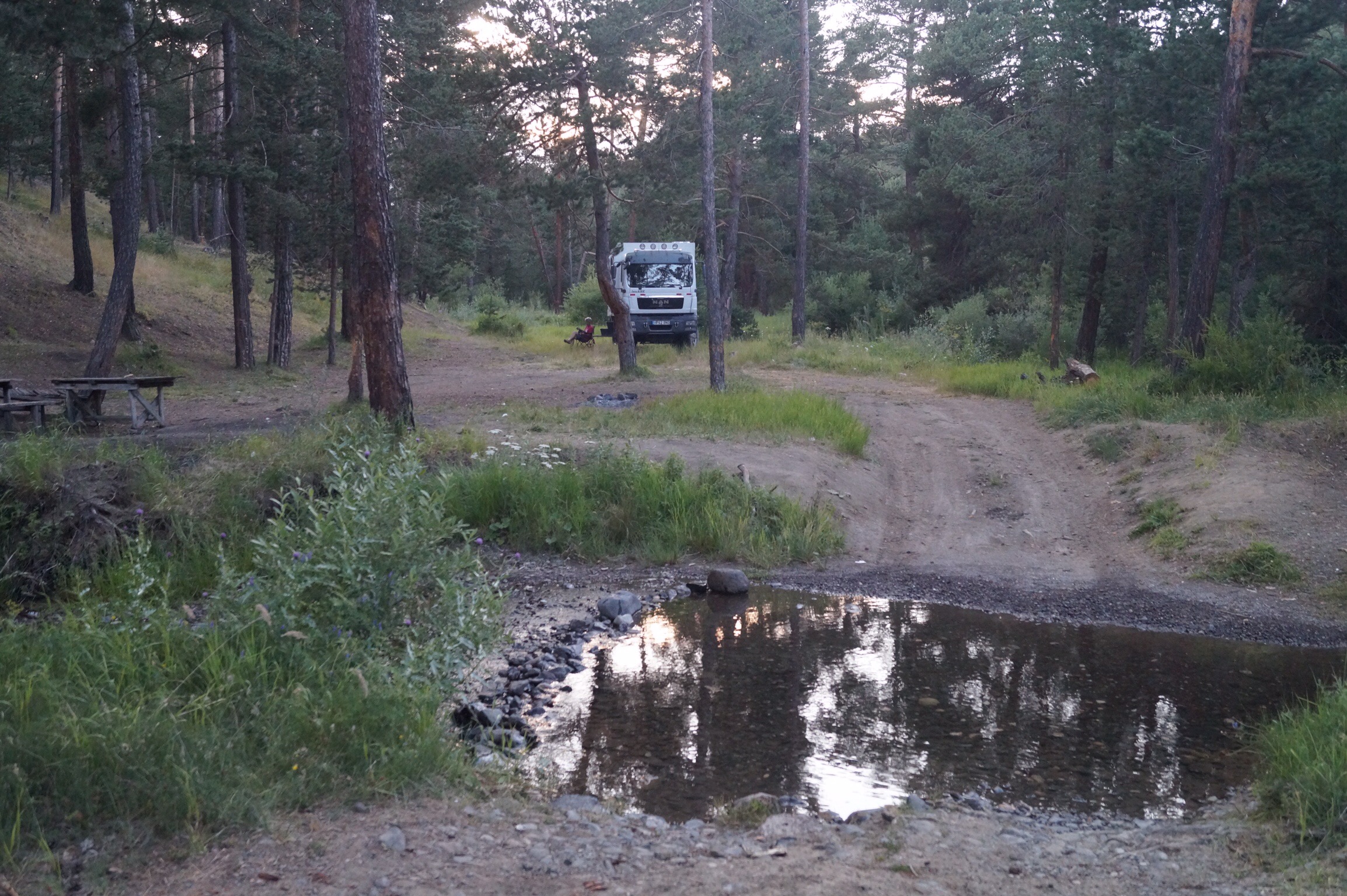
We loved Goreme and its surrounding area, apart from the wonderful hot air balloons, hiking through the valleys filled with otherworldly shaped and naturally sculpted rocks. In the valleys between the rocky outcrops and thin rock spires were small fields and grove of fruit trees and grapes. Some people still live in the caves carved out and many more are used for storage or shelter from the sun. Everywhere you looked there were doors opening onto dwellings; specially carved dovecotes; or high up in cliffs rooms exposed to the elements after a rockfall.
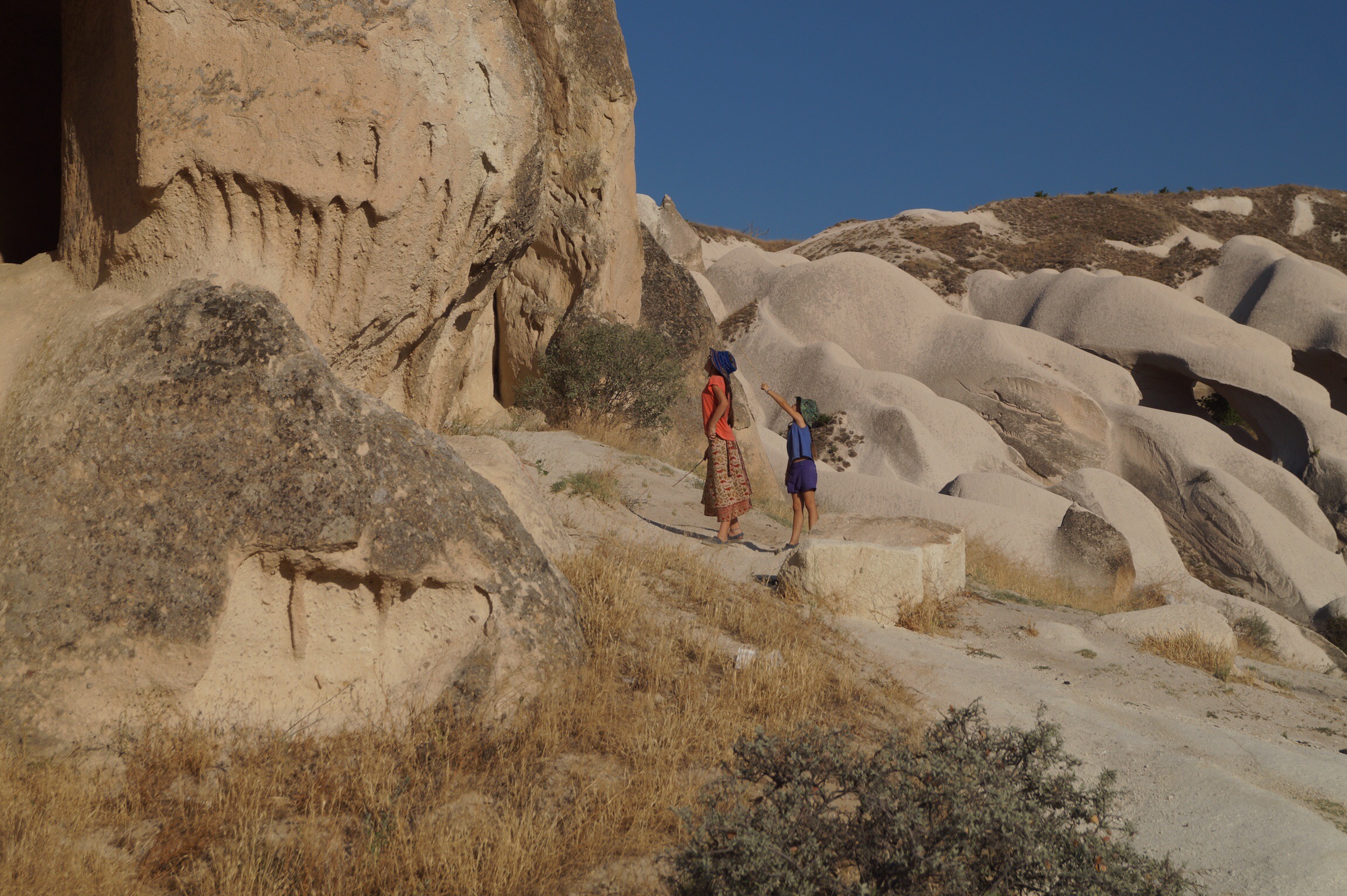
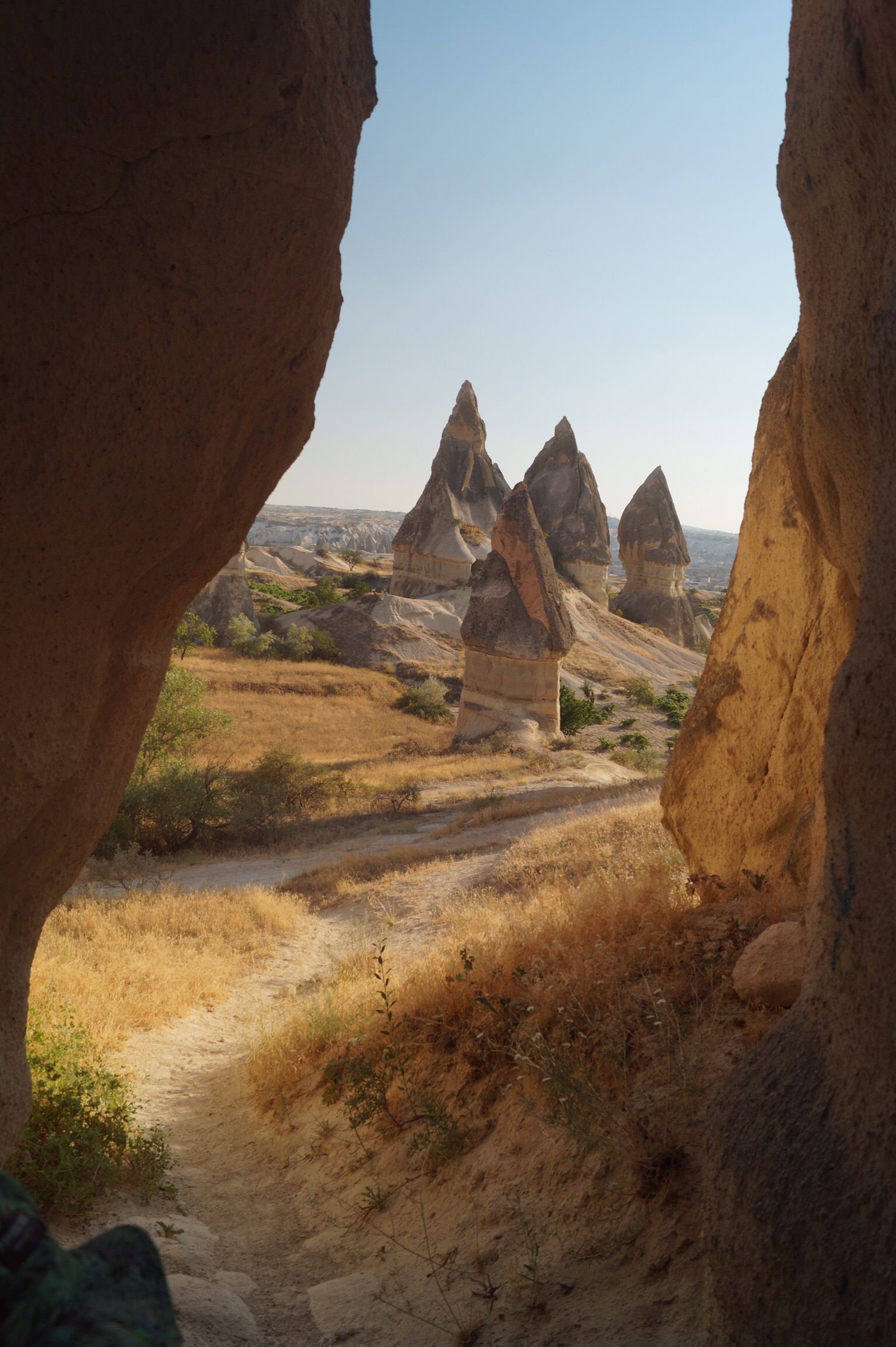

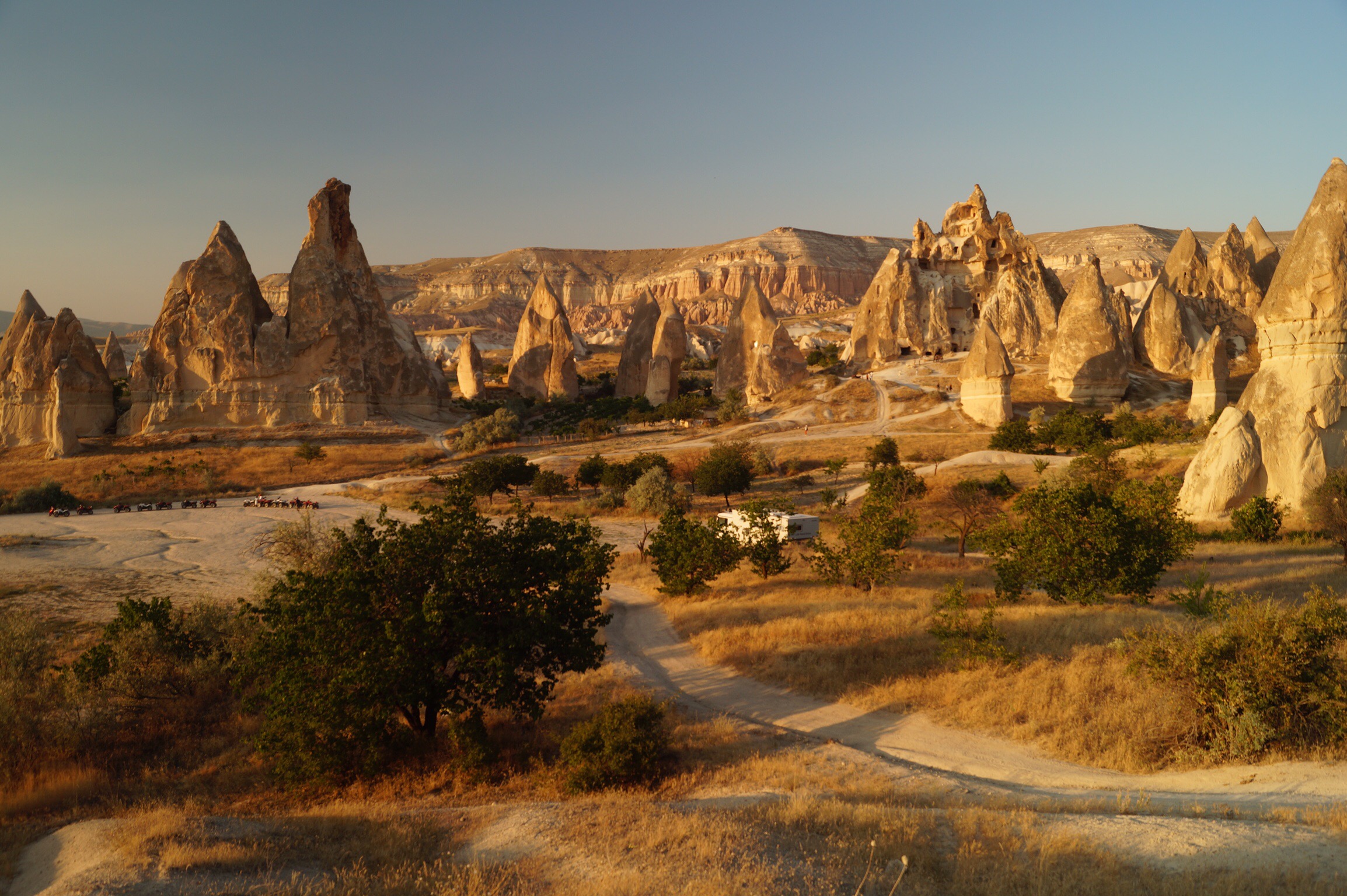
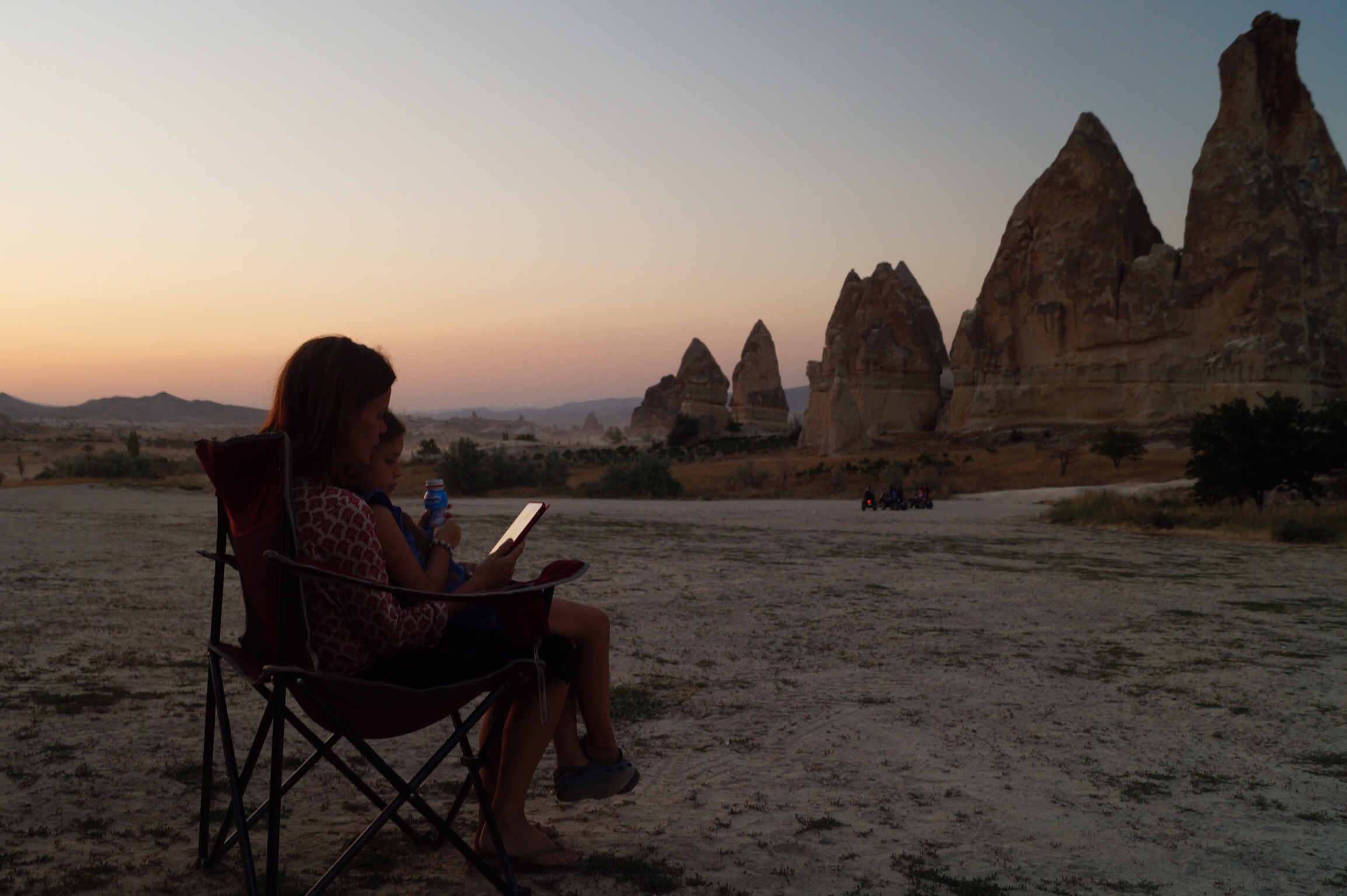
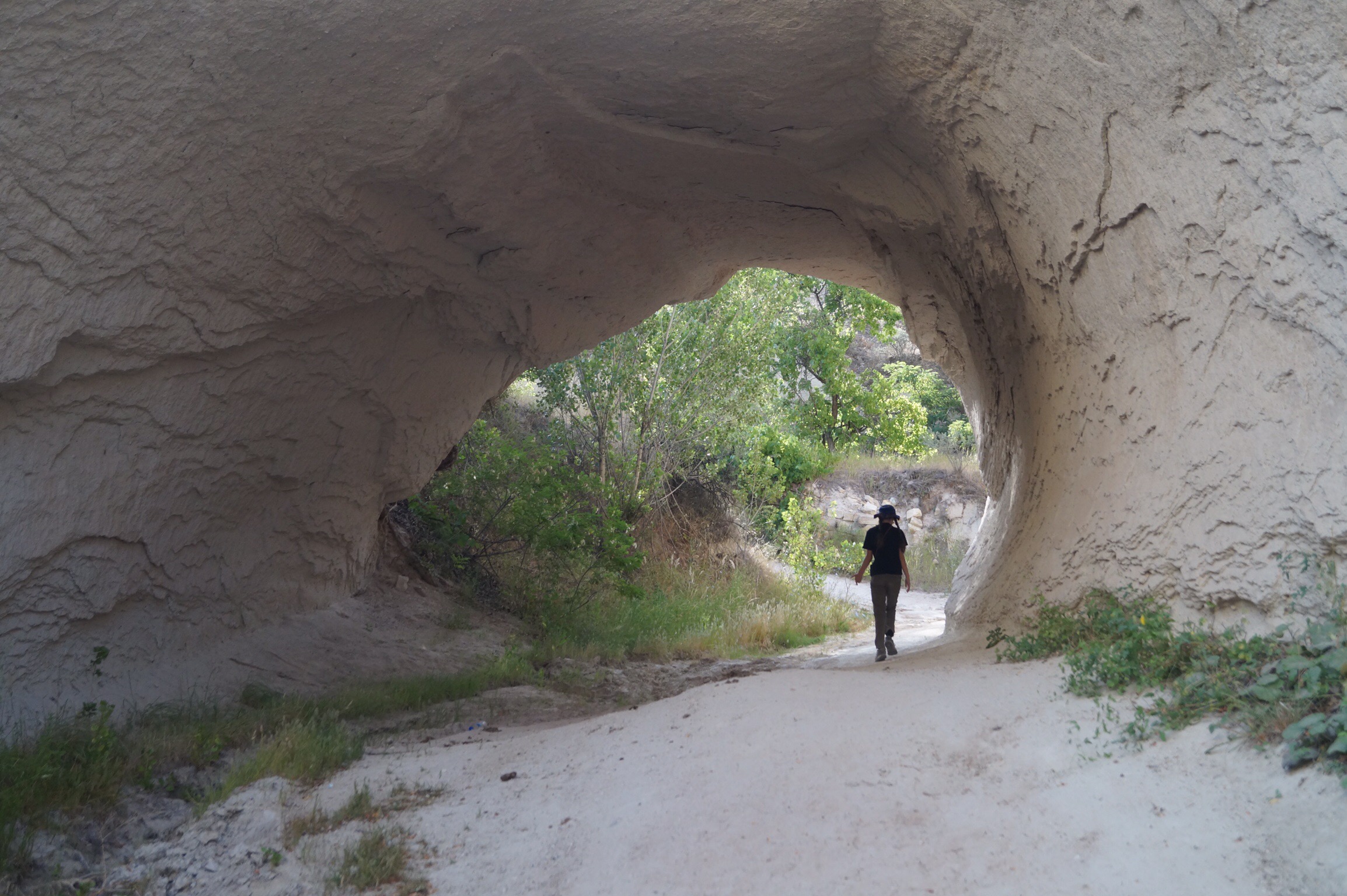
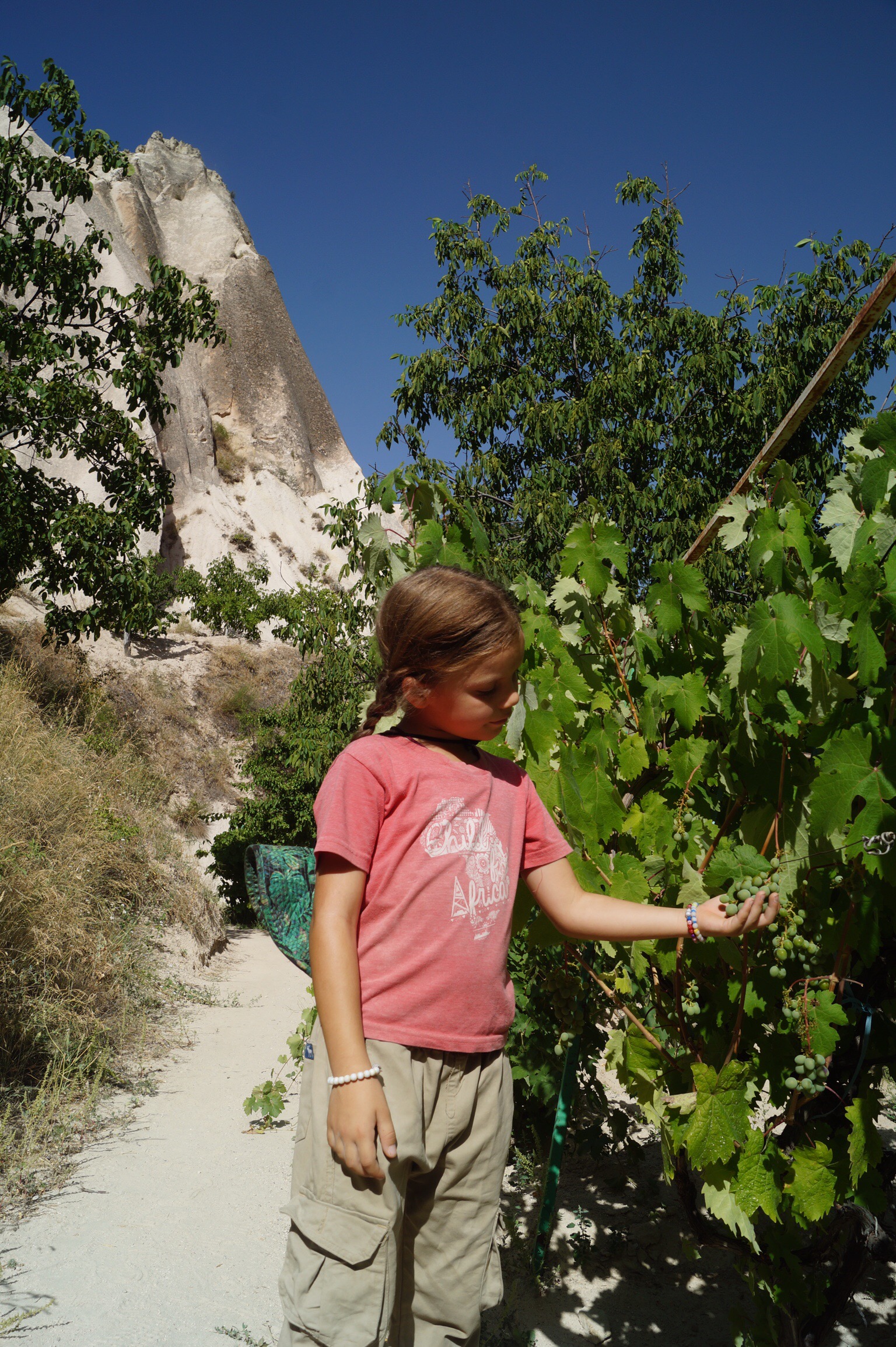
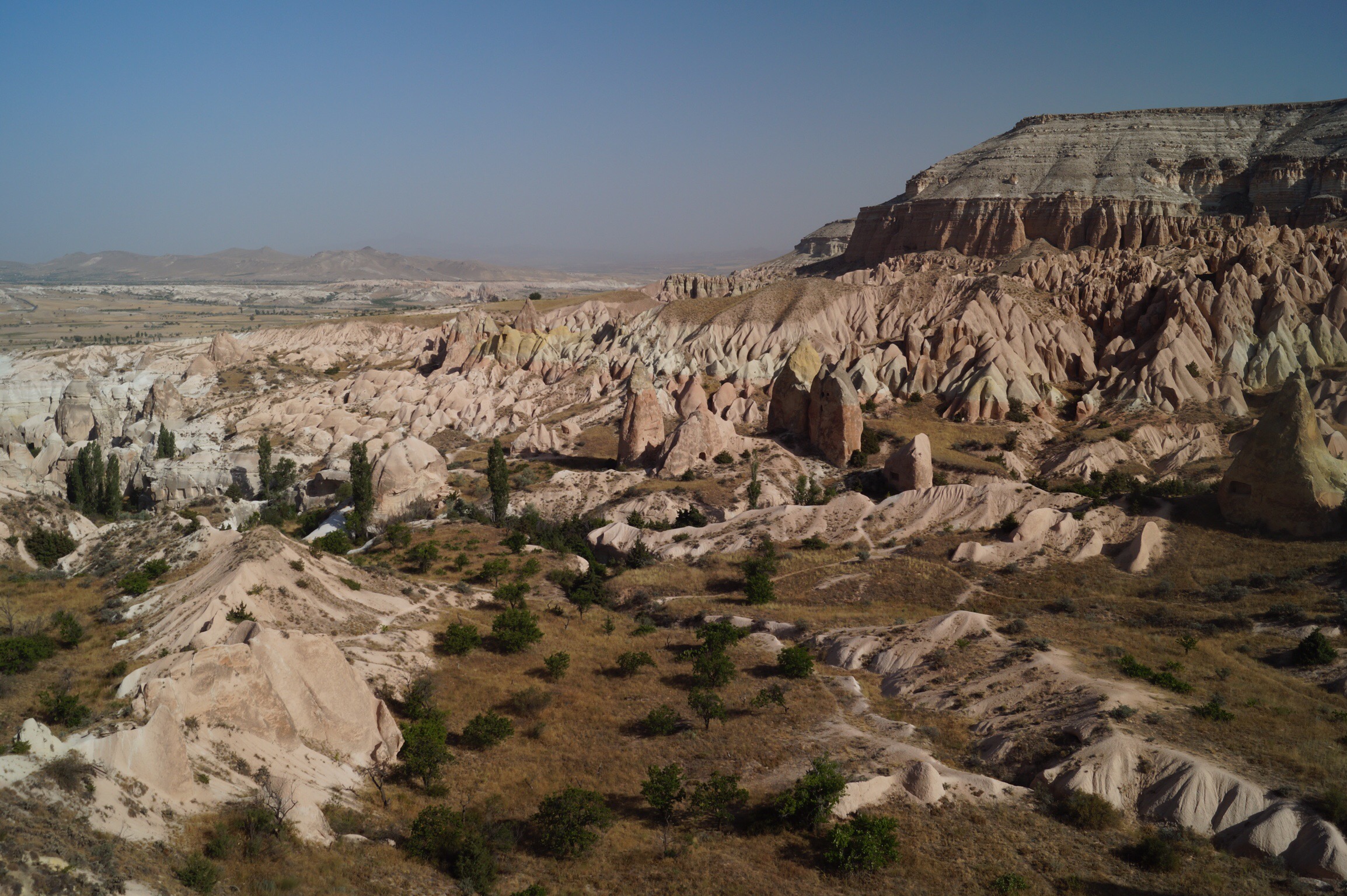
Many of the larger and more elaborate caves were churches, carved out during the Roman and Byzantine periods. Some were decorated with simple religious symbols and figures, roughly painted in ochre. Others were true works of art with frescos dating from the 10th to 12th centuries.

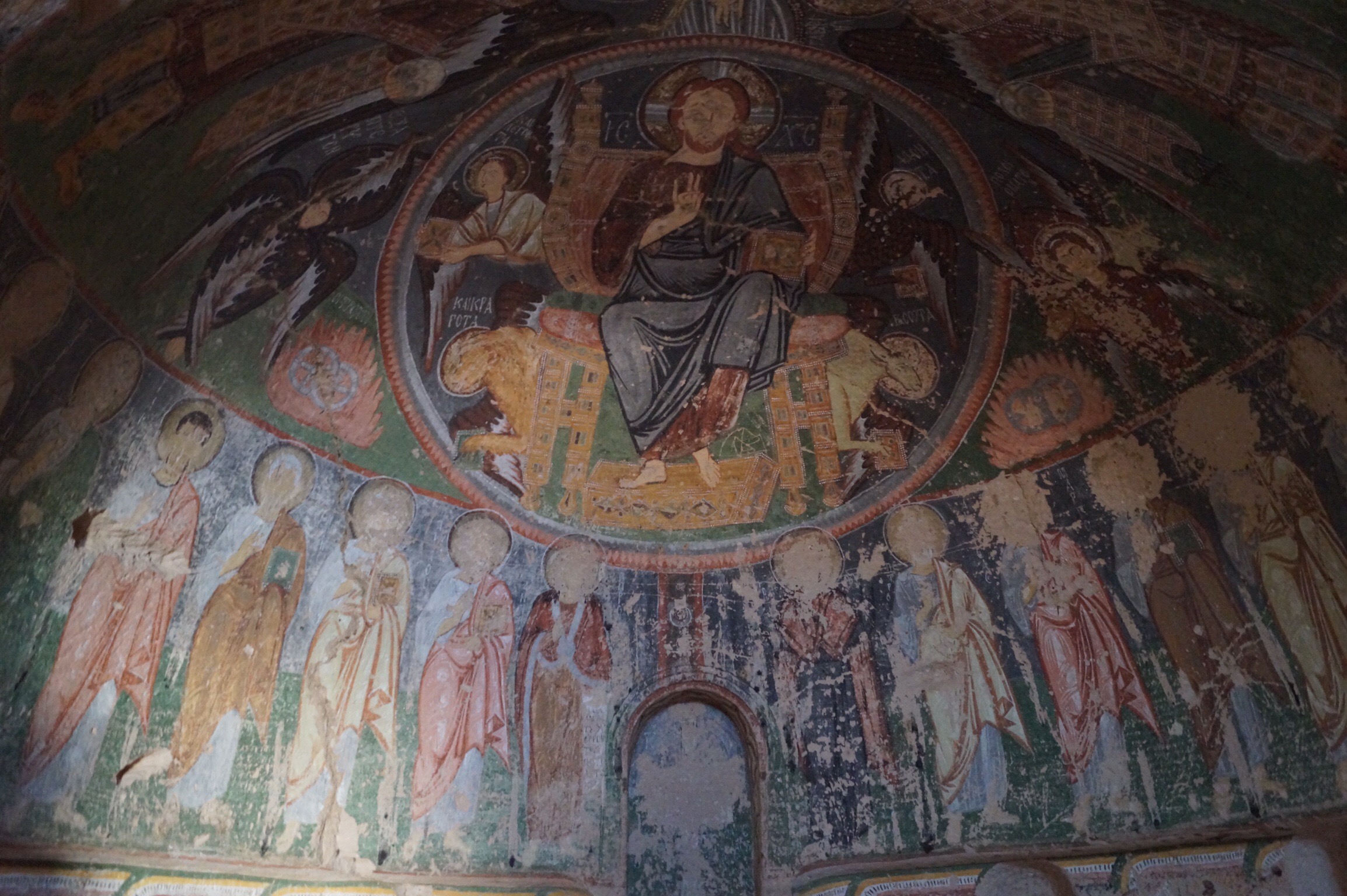
It was hot, so we kept our exploring to the early morning unfortunately though we saw no more balloons, even though the atmospheric conditions seemed to be the same. The girls spent their free time making one of the nearby carved out caves their own. They made happy little troglodytes sweeping it out and decorating it with bunches of wild flowers.
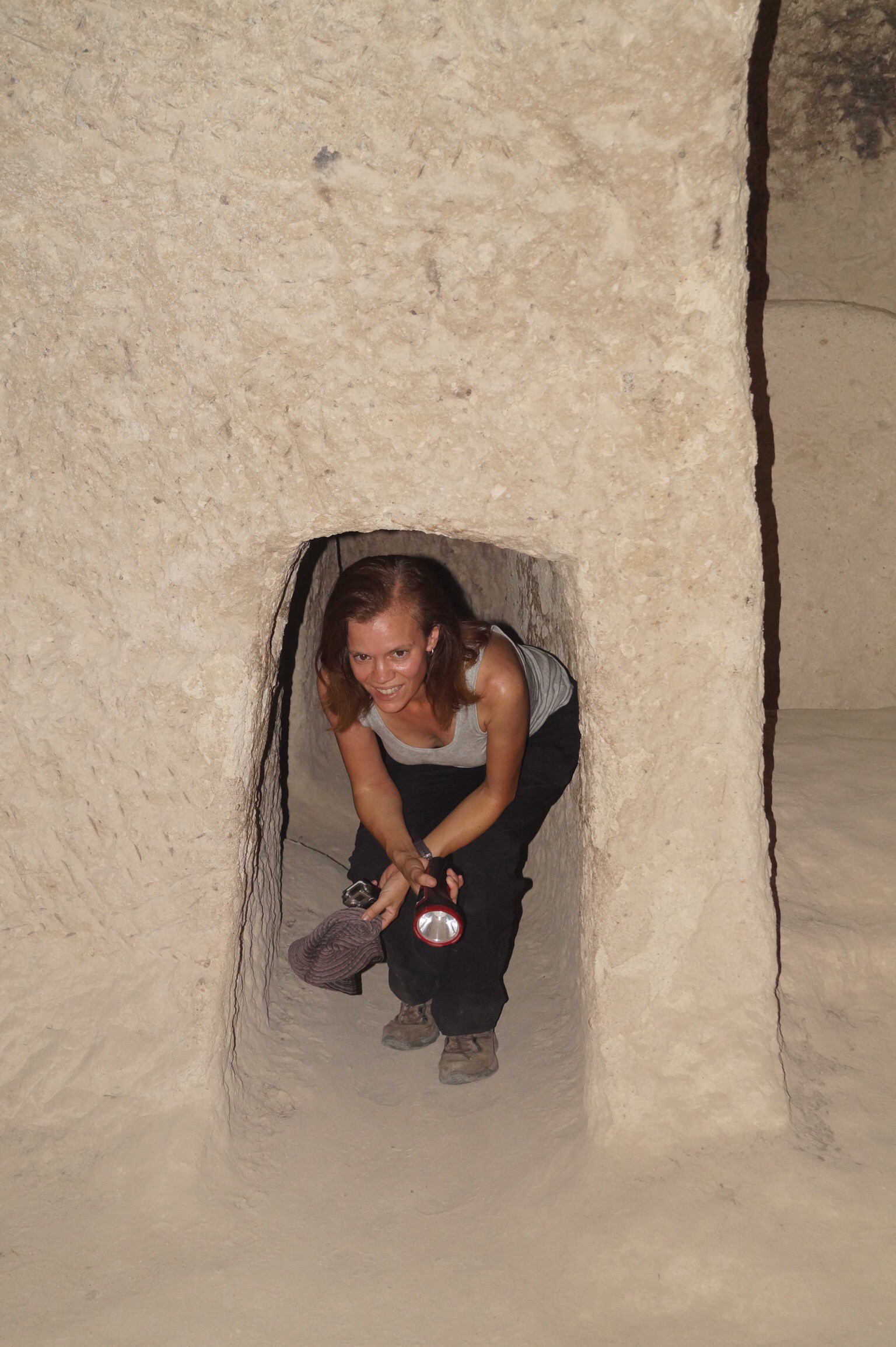
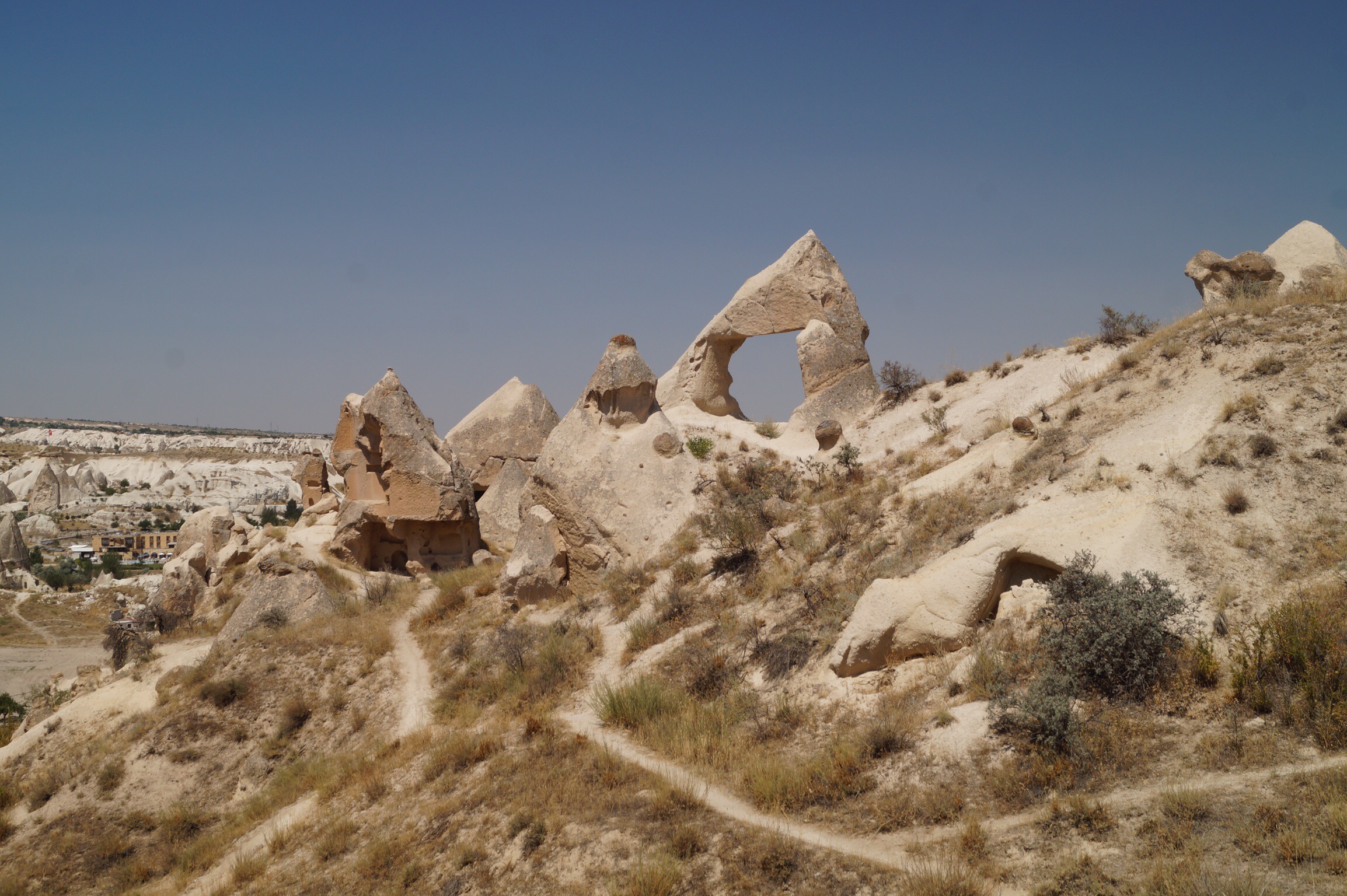
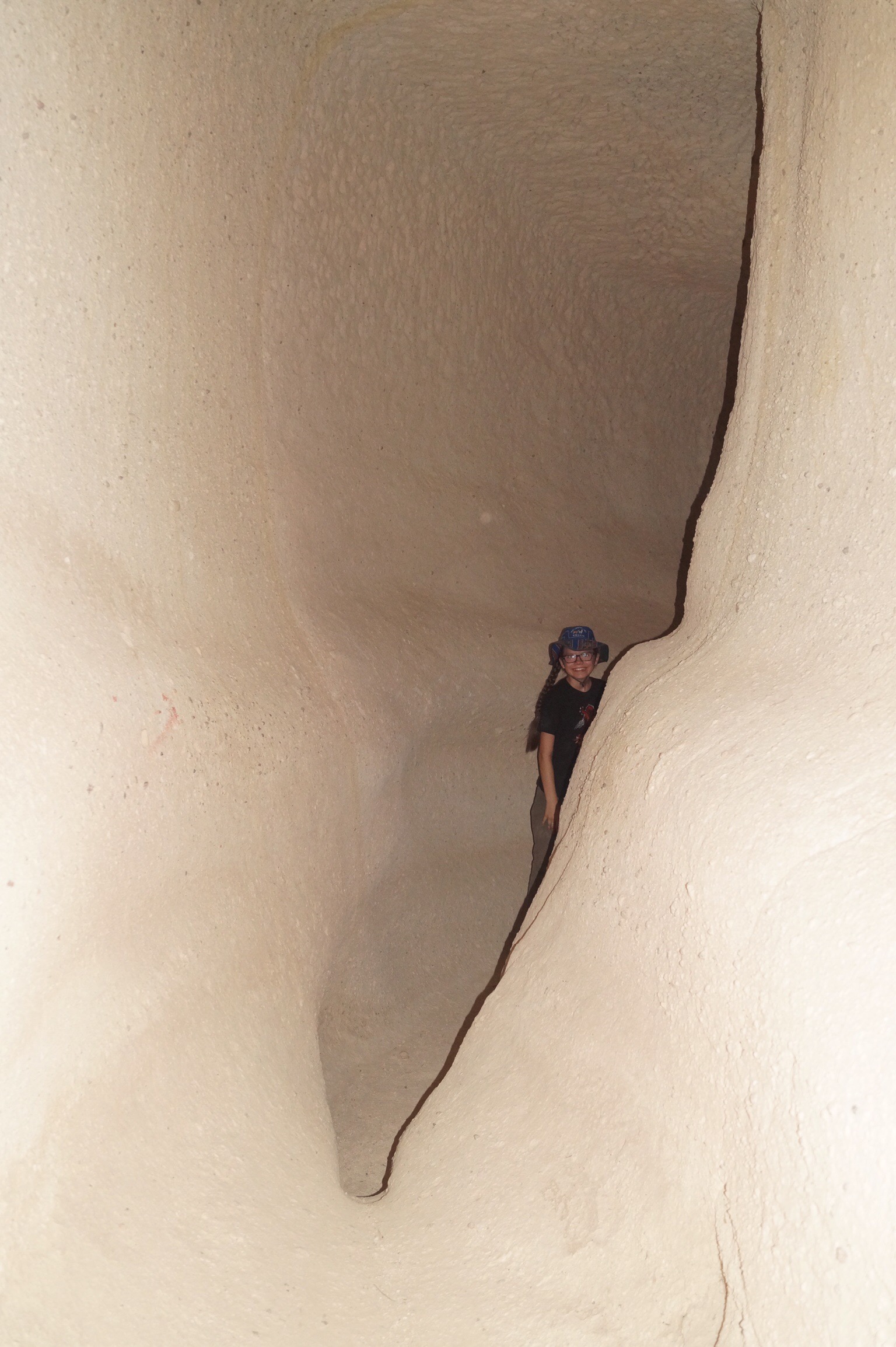

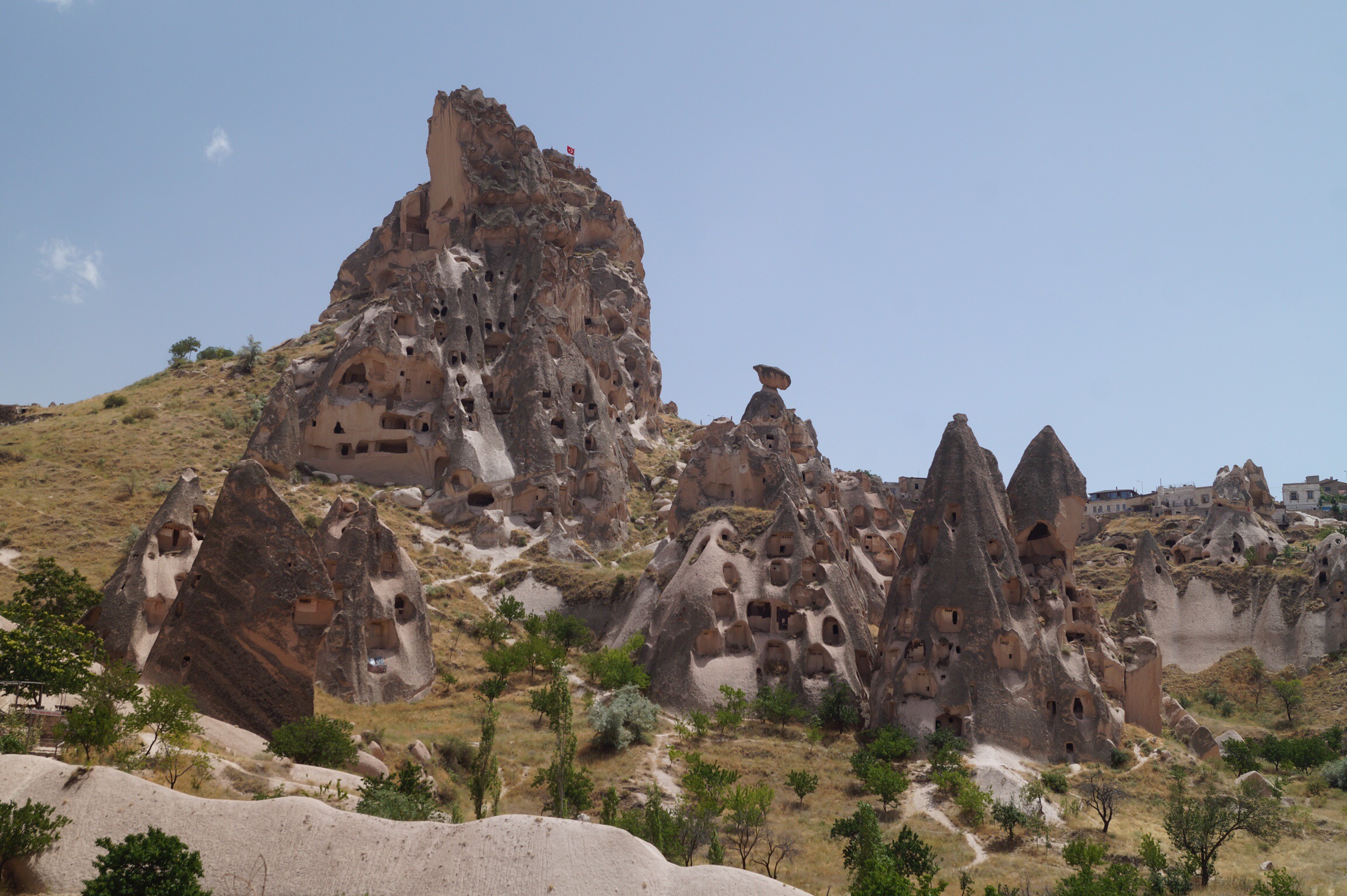
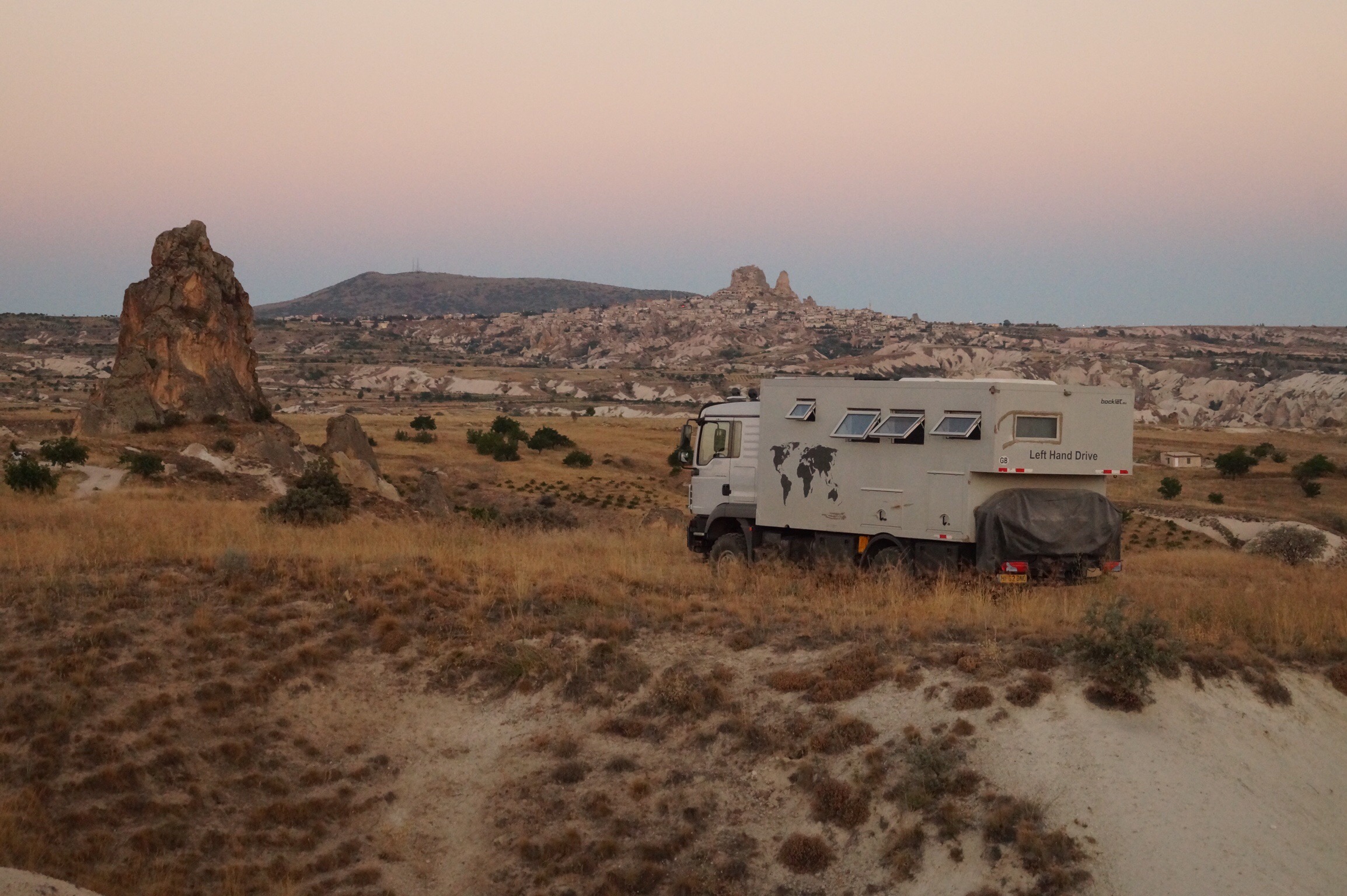
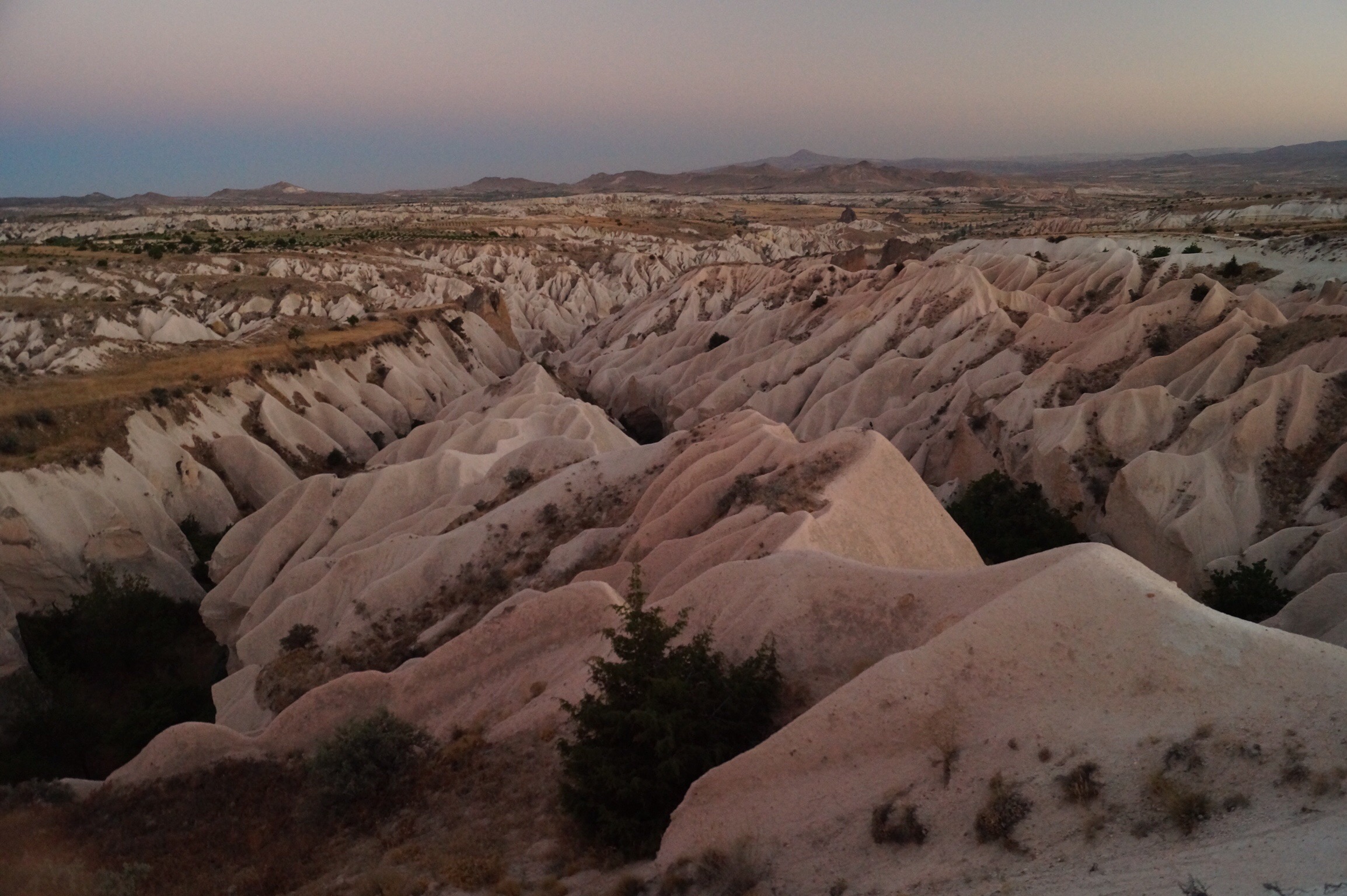
Leaving the area we stopped at the underground city of Kaymakli. We purposely chose the most touristy one in the hope it would be well lit and not too claustrophobic, as our littlest troglodyte prefers her caves close to the surface. It wasn't very busy and the girls loved it, climbing though all the tiny tunnels down to 4 stories deep imagining people's life that took place there. The whole city was built as subterranean refuge there were 7 stories below in total and we got a sense of how deep it actually was by peering down the ventilation shaft to the bottom.

Y
ears ago before we started this trip, I decided that apart from the Maths and English, we wouldn't stick to the National Curriculum. Instead the girls would learn about the places we were; the things we saw; and what they were interested in. We've pretty much stuck to that but added in extra bits so that I made sure that they kept up with peers at home. The example I always gave to people was that why would they cover the Romans when they were scheduled to, when we were in Mexico and we could learn about the Aztecs instead. Which is why the girls had a fabulous time in Mexico skipping around the ruins and pretending to use a stingray barb for bloodletting as a part of an Aztec ritual. Now in Western Turkey, it was the chance of the Romans!

Archeologists have been hard at work uncovering the ancient secrets of Sagalassos, with a long history much of the ruins are of Roman origin. High up on a mountainside, we had a peaceful night beside the tiny road and for the first time since Tibet we were forced inside in the evening due to the cool temperature. We explored the sight in the morning, enjoying the rebuilt fountains; and imagining the Roman citizens watching the gladiators at the amphitheater; the racing at the Hippodrome; and getting a good scrub down at the baths. School was a breeze after lunch, for once, as they were hungry to know more.
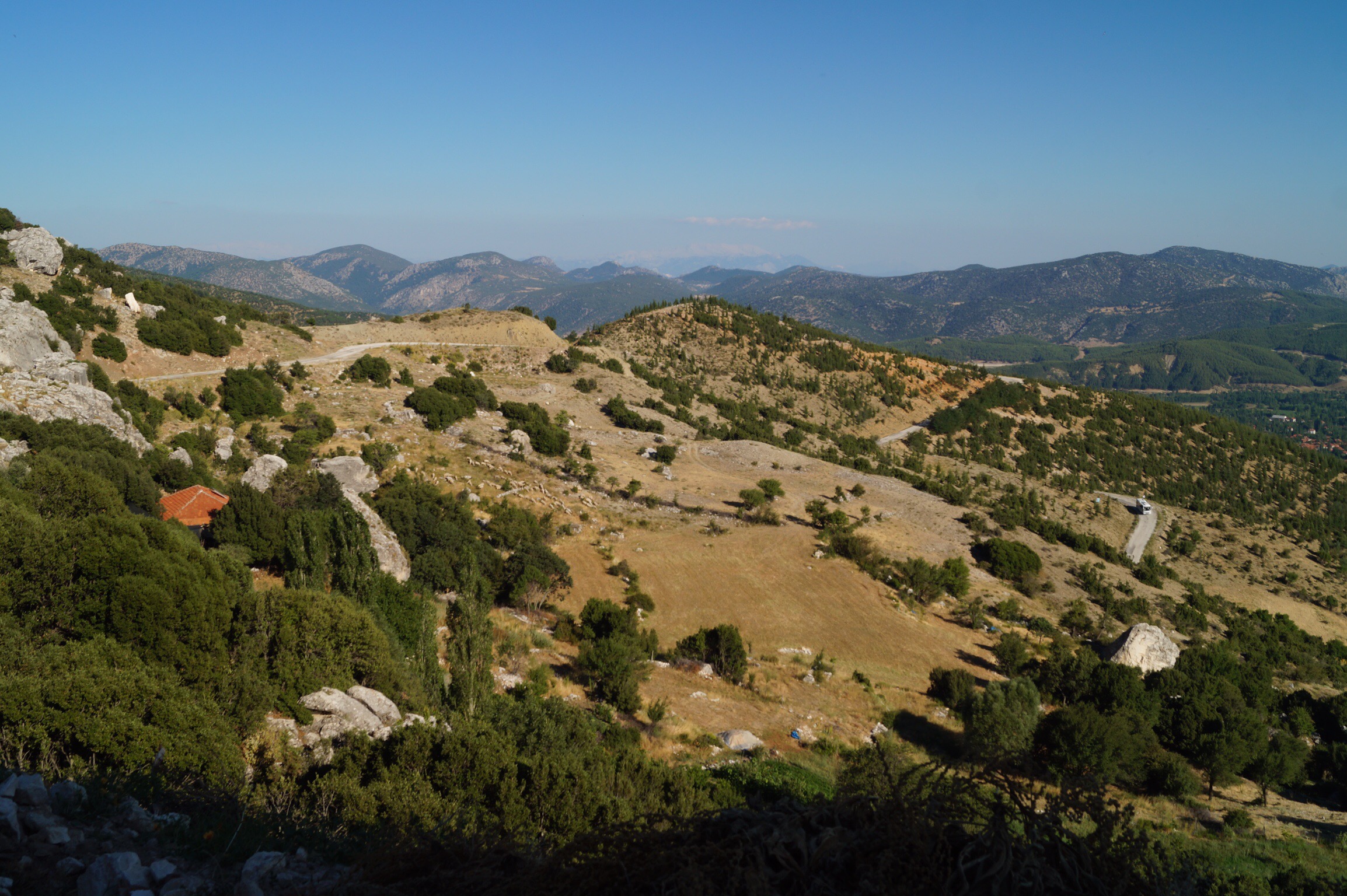
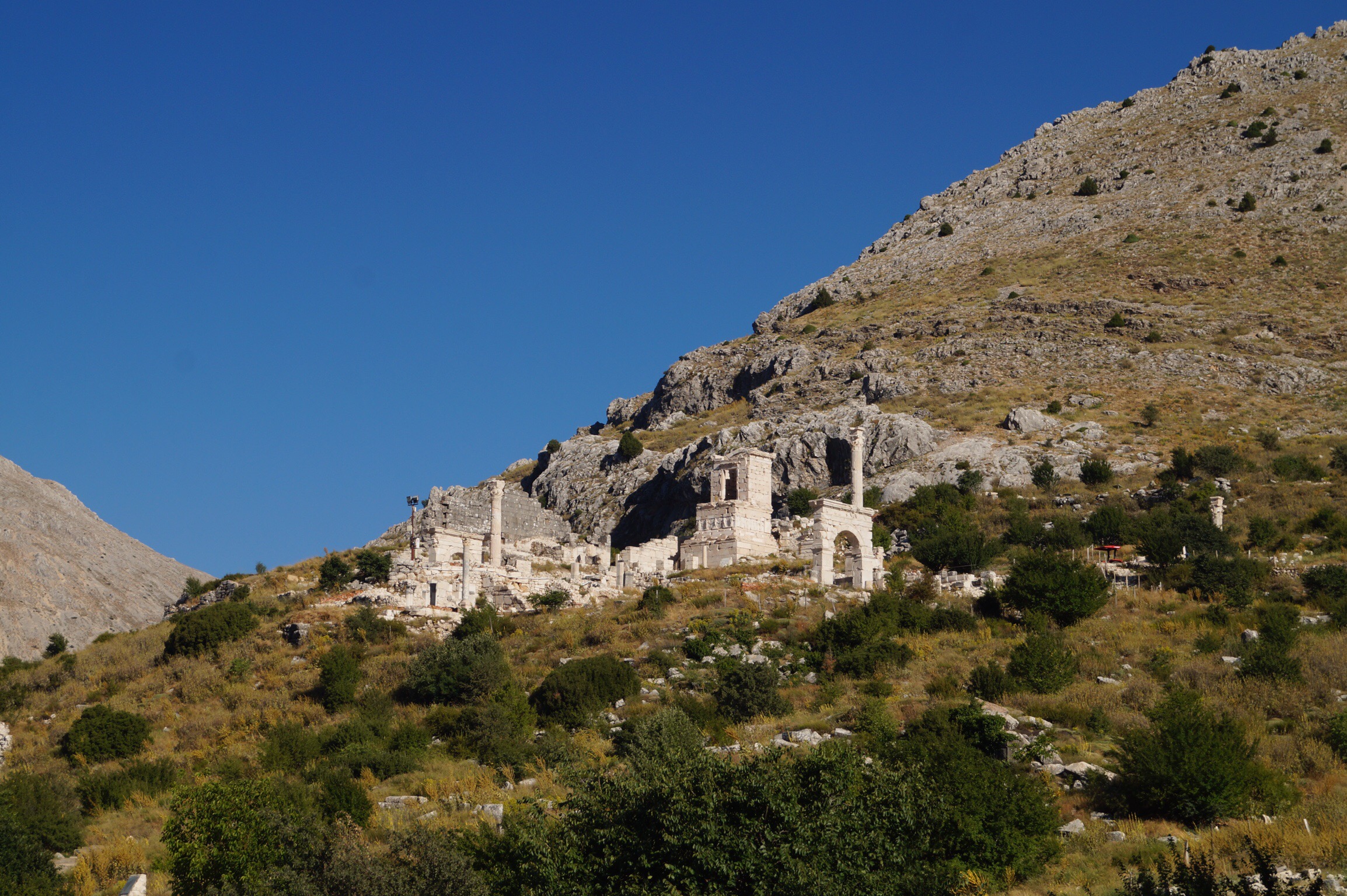
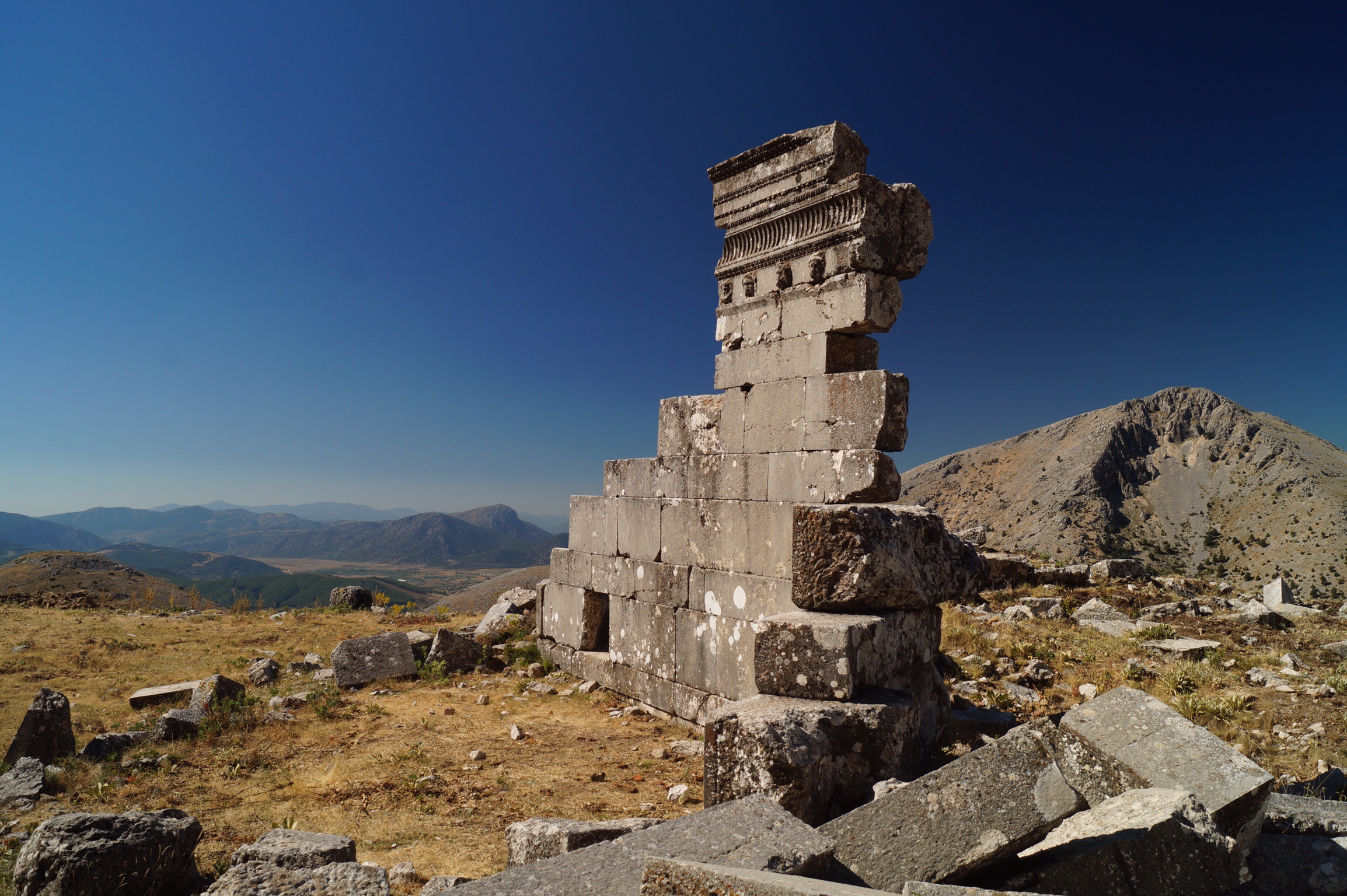
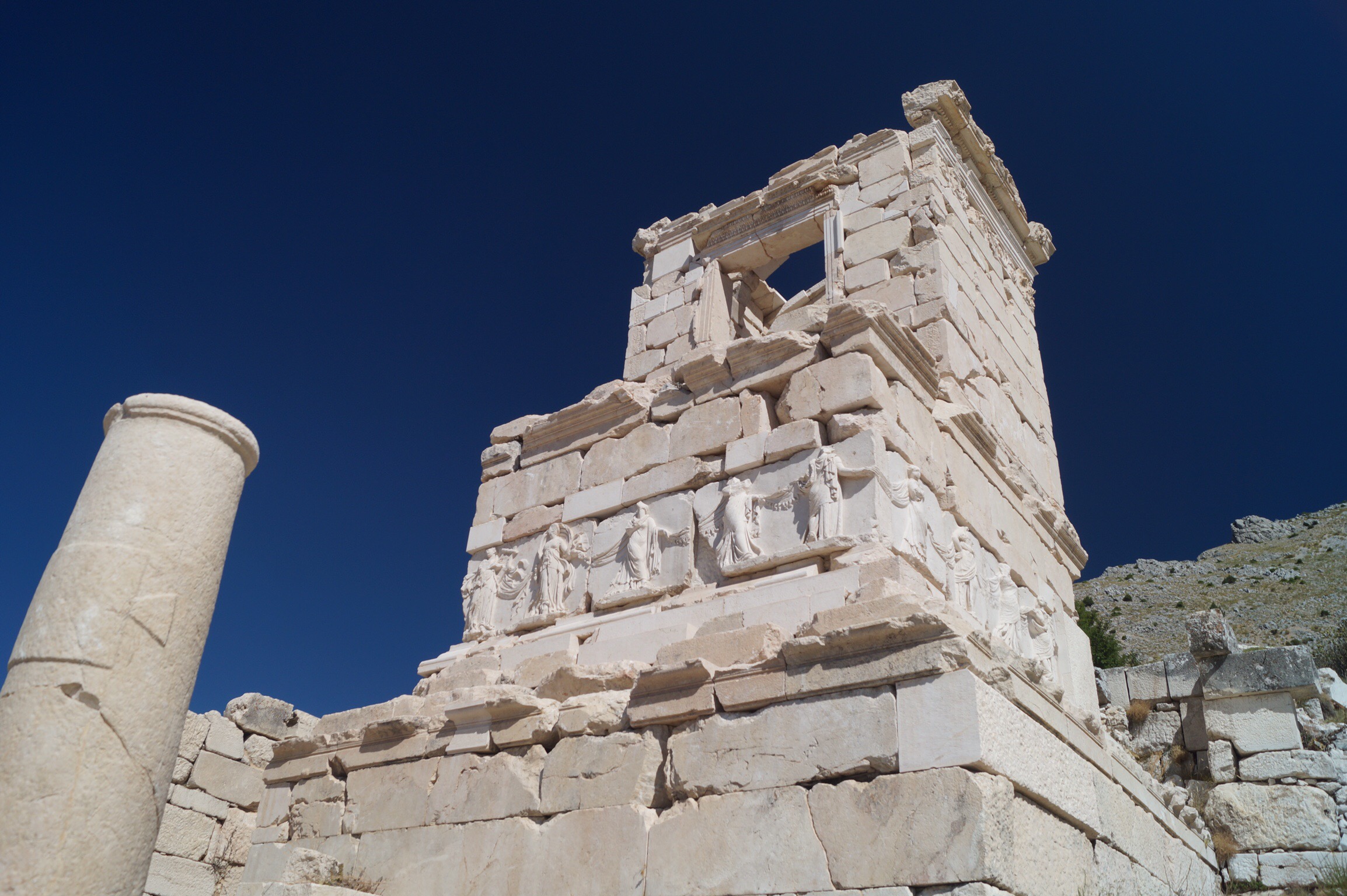
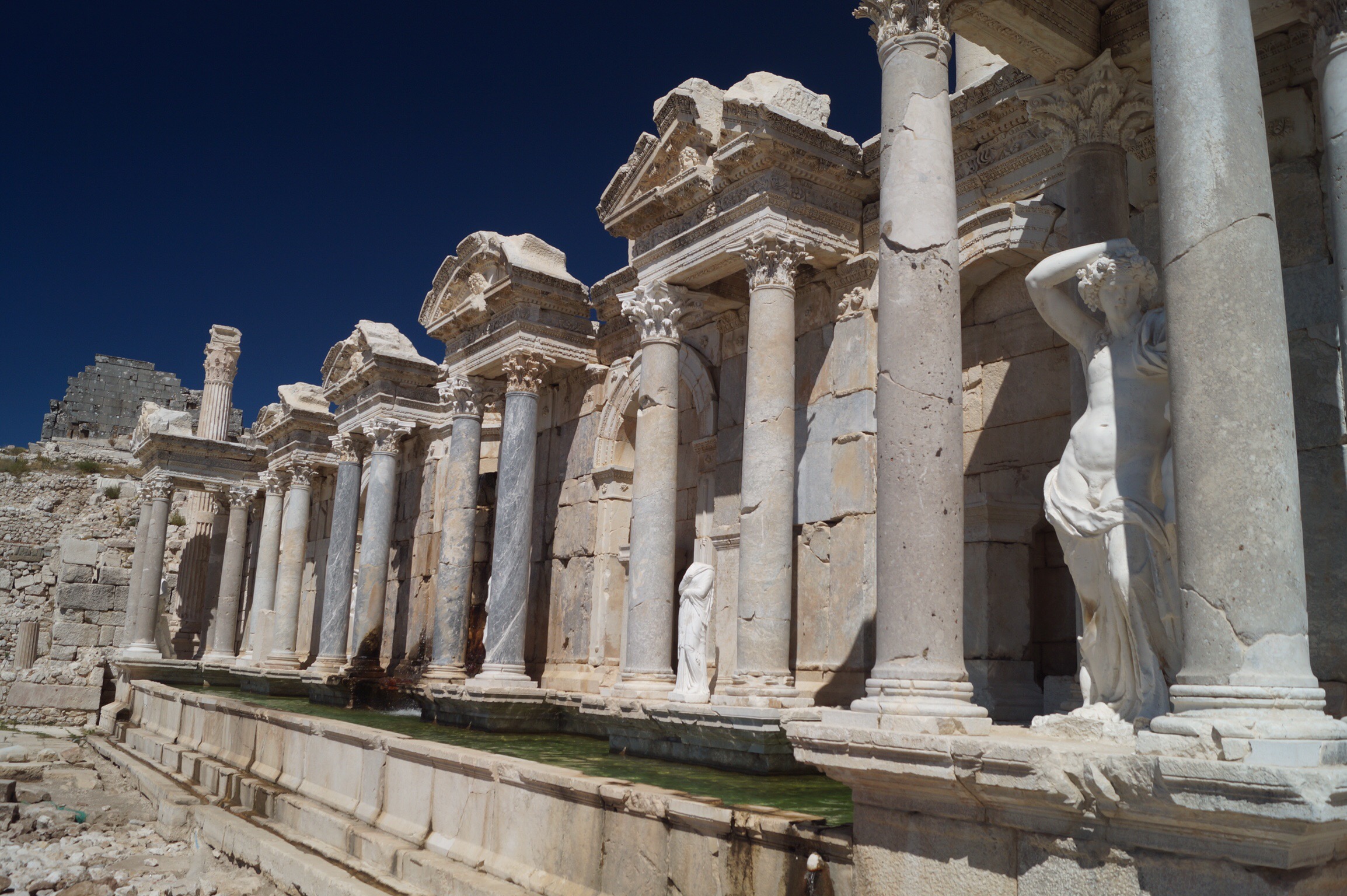
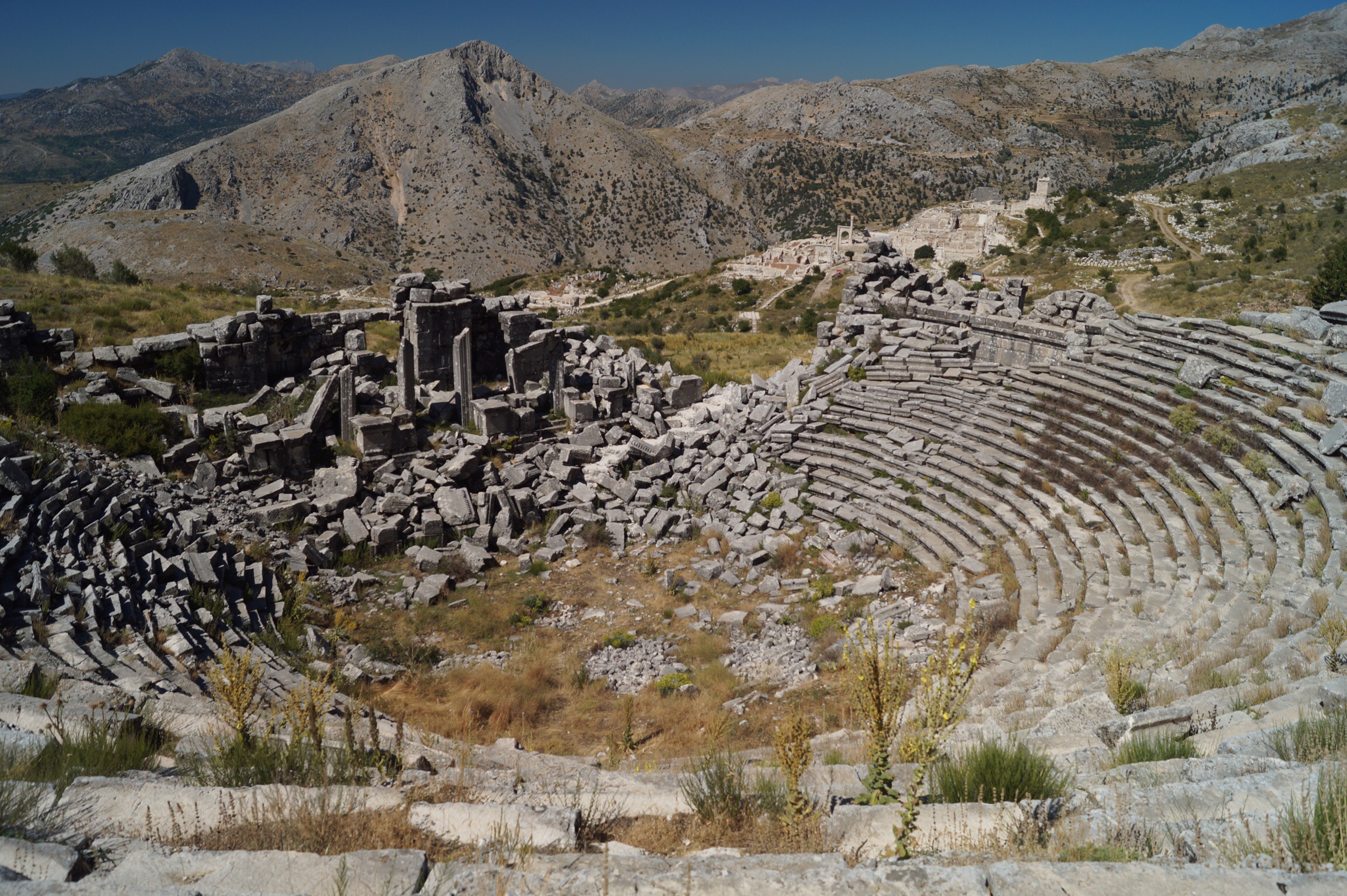
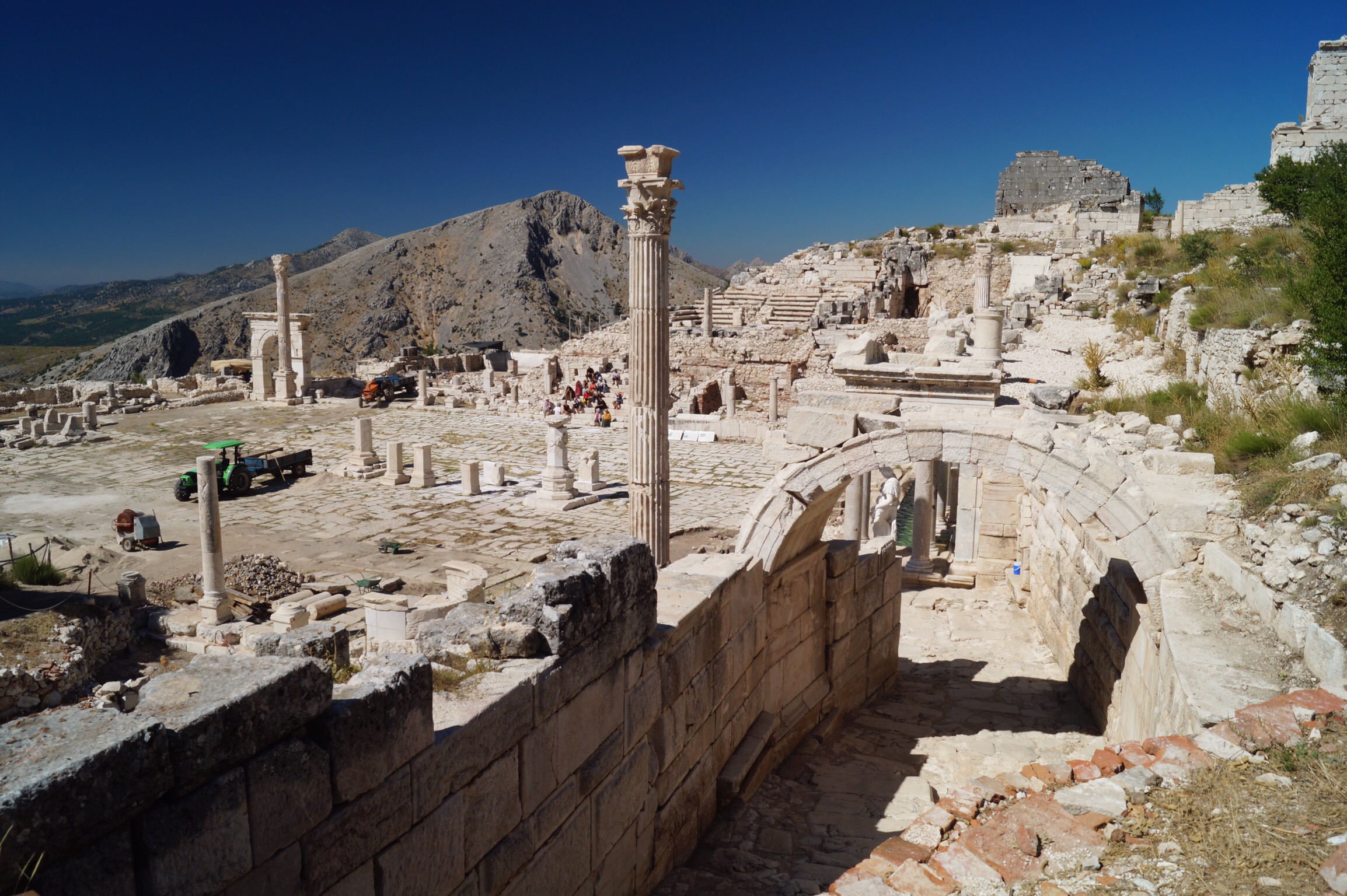
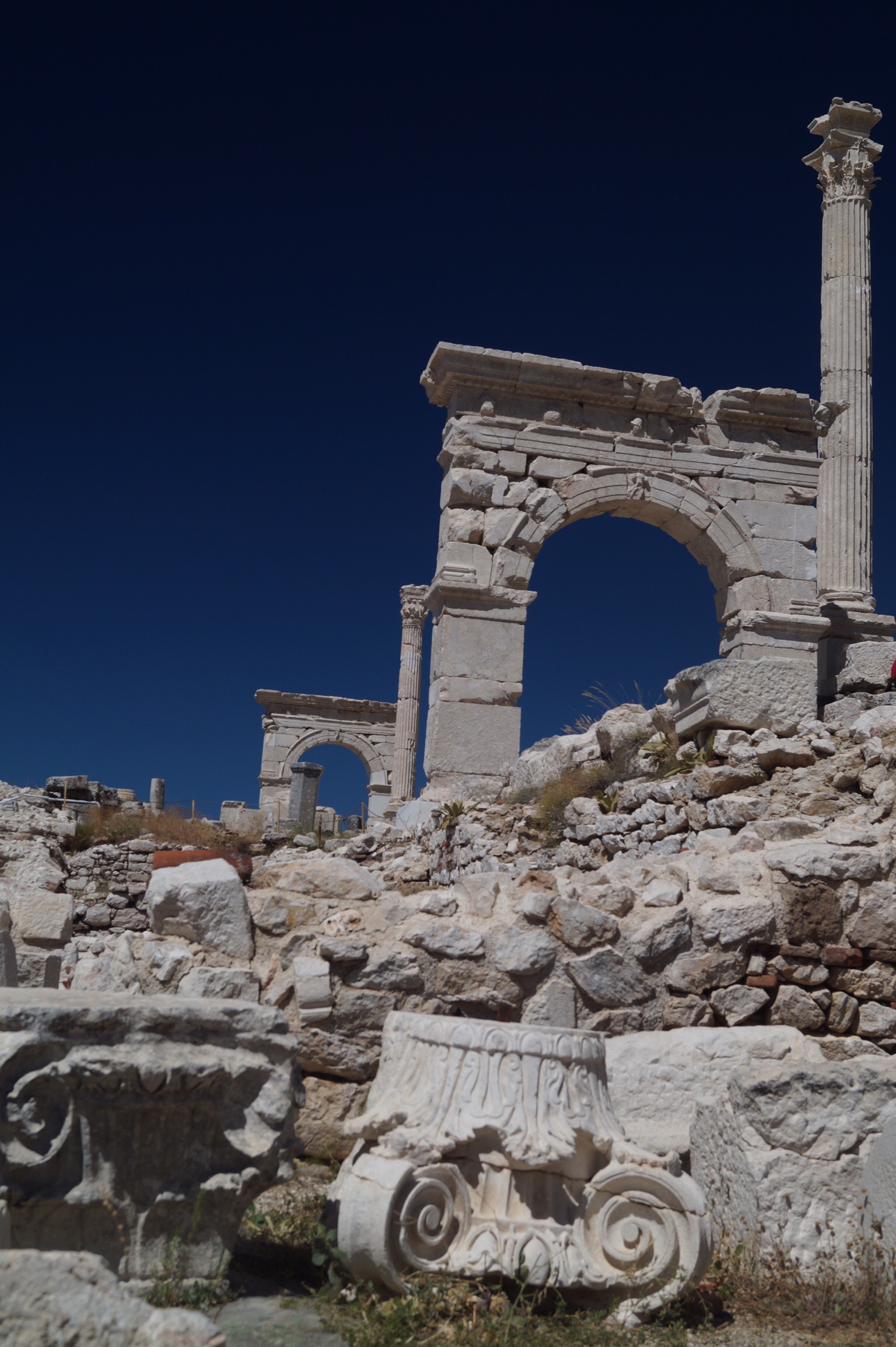
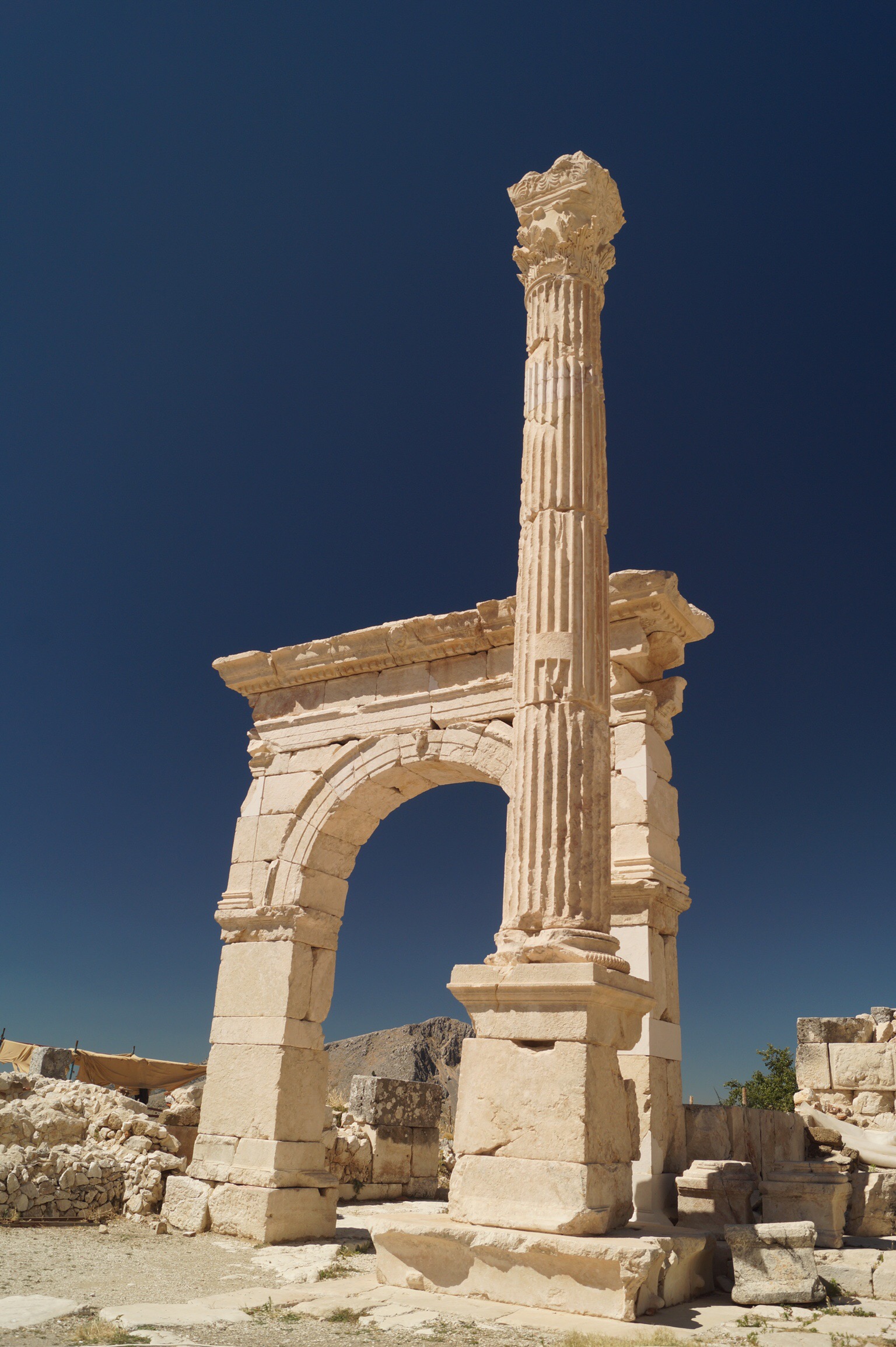
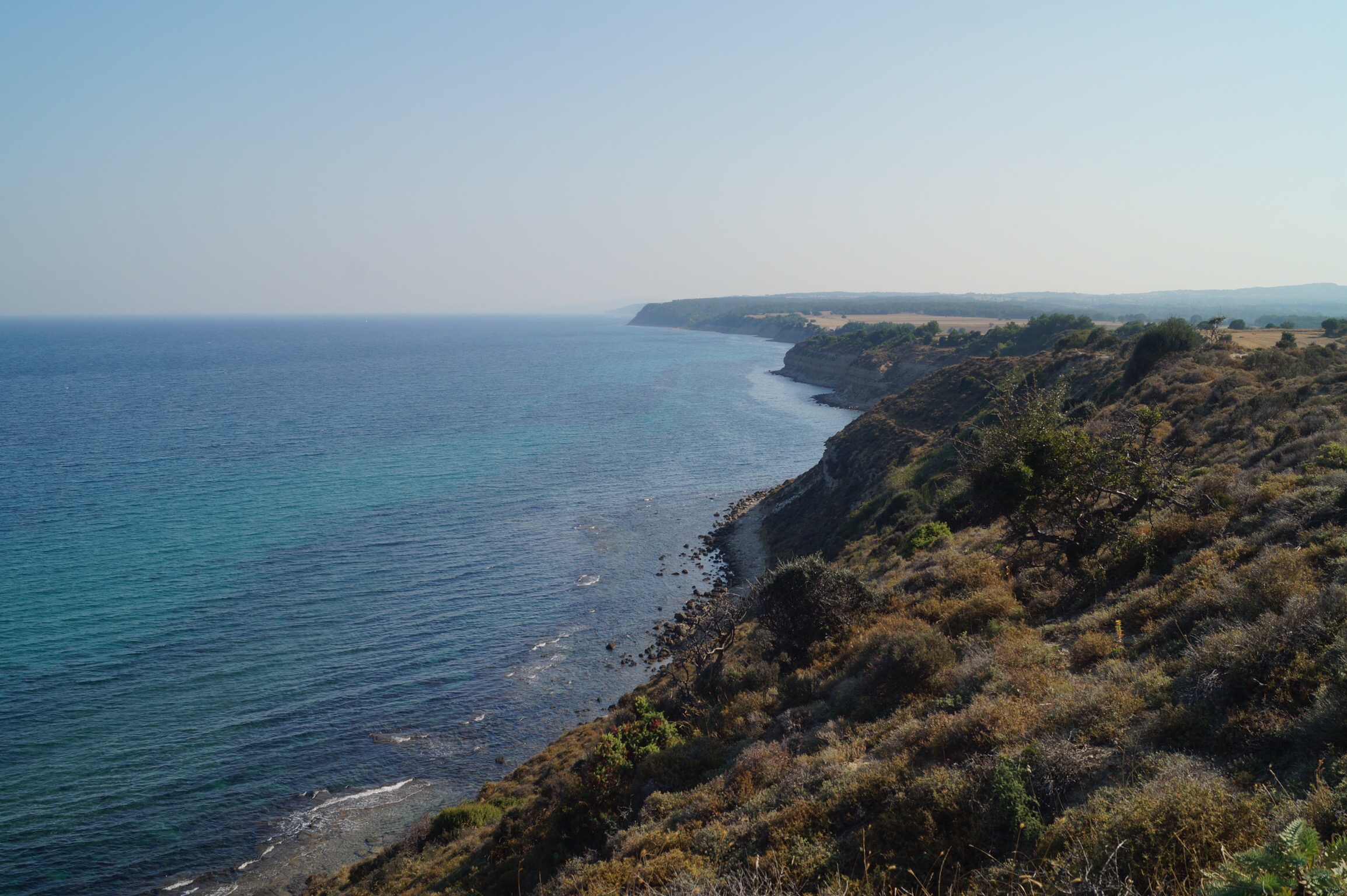 The peninsula is dotted with graveyards and memorials to the brave that fought and died there. The Gallipoli Simulation Centre's interactive 3-D historical journey about the campaign was too realistic for the girls but Steve and I found it very informative. Lone Pine Cemetery was powerfully peaceful, surrounded by thousands of Anzac graves, we looked down at the languid azure waters way below. You could still see the trenches nearby, where the opposing forces were just metres away from each other. Anzac Bay was also peaceful now, it was hard to imagine the horrors that unfolded there just over a hundred years ago. We can understand why it has become a place of pilgrimage for people from Australia and New Zealand.
The peninsula is dotted with graveyards and memorials to the brave that fought and died there. The Gallipoli Simulation Centre's interactive 3-D historical journey about the campaign was too realistic for the girls but Steve and I found it very informative. Lone Pine Cemetery was powerfully peaceful, surrounded by thousands of Anzac graves, we looked down at the languid azure waters way below. You could still see the trenches nearby, where the opposing forces were just metres away from each other. Anzac Bay was also peaceful now, it was hard to imagine the horrors that unfolded there just over a hundred years ago. We can understand why it has become a place of pilgrimage for people from Australia and New Zealand.
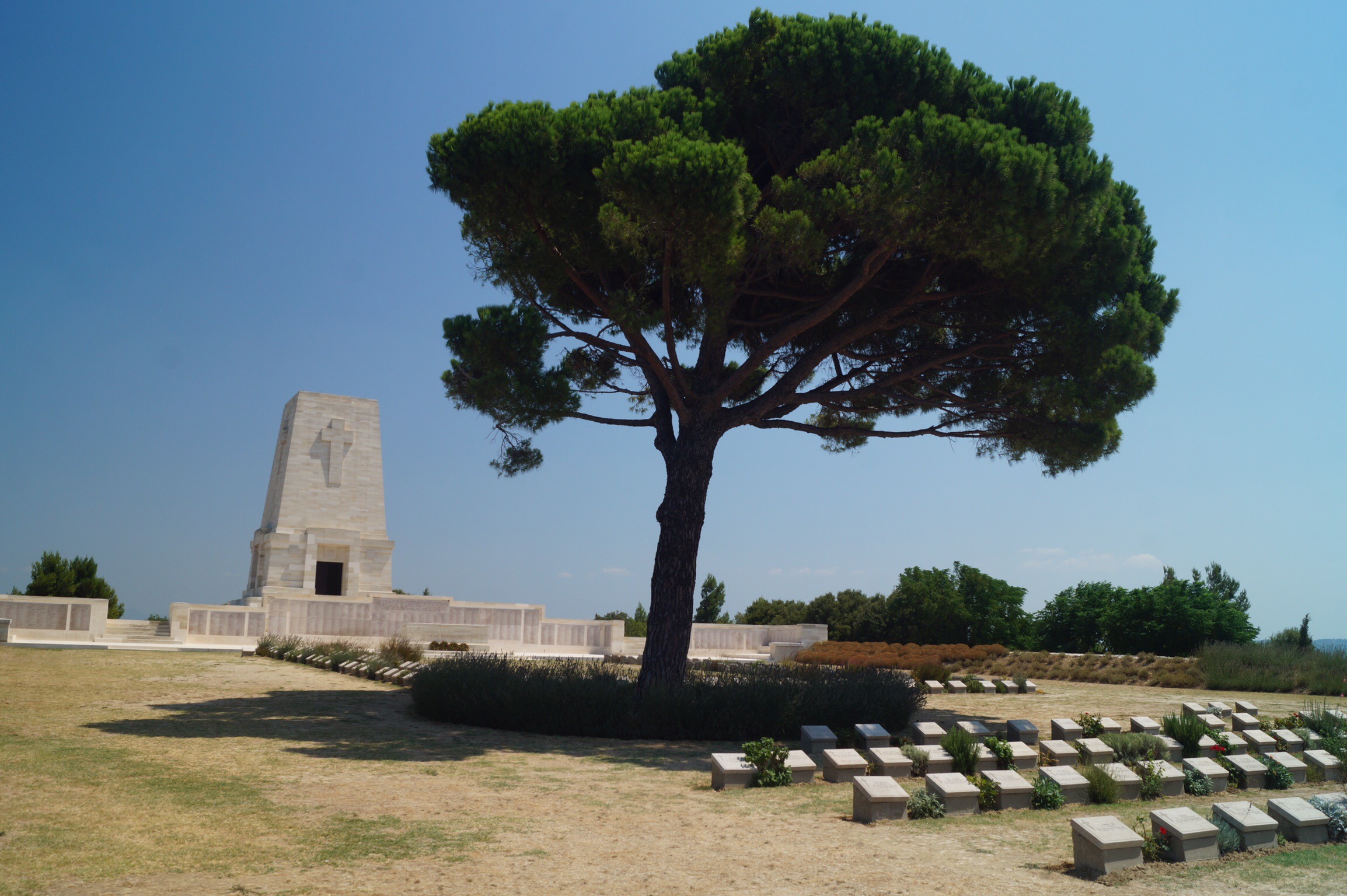
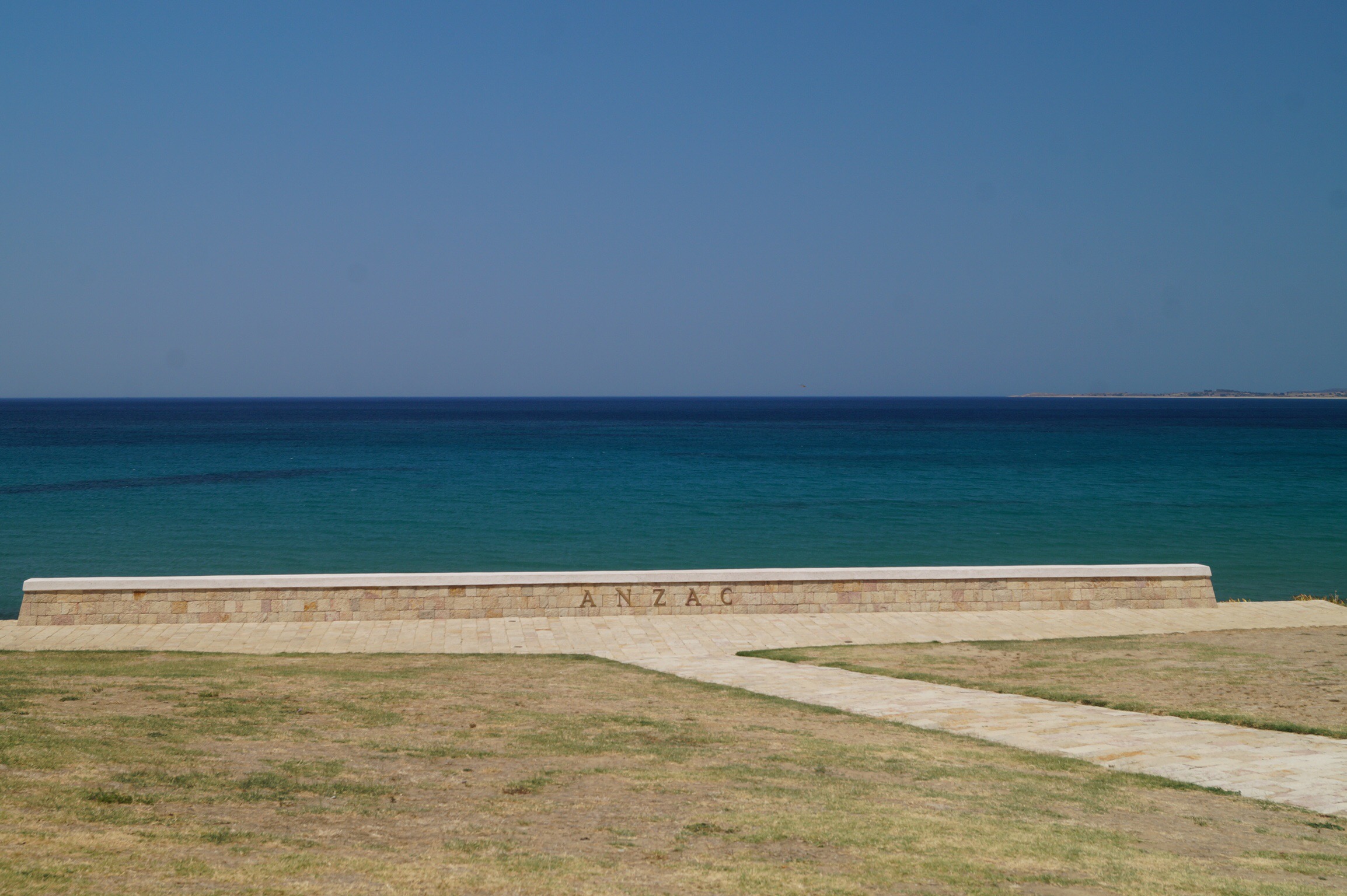 There is a lovely quote from Ataturk, the founder of modern day Turkey who was an important commander during the campaign, several years later. His words for peace and reconciliation, were written at Ariburna Sahil Aniti, one of the Turkish memorials:"To us there is no difference between the Johnnies and the Mahmets...You mothers, who sent away your sons from faraway countries, wipe away your tears; your sons are now lying in our bosom. Having lost their lives in this land, they have become our sons as well."
There is a lovely quote from Ataturk, the founder of modern day Turkey who was an important commander during the campaign, several years later. His words for peace and reconciliation, were written at Ariburna Sahil Aniti, one of the Turkish memorials:"To us there is no difference between the Johnnies and the Mahmets...You mothers, who sent away your sons from faraway countries, wipe away your tears; your sons are now lying in our bosom. Having lost their lives in this land, they have become our sons as well."
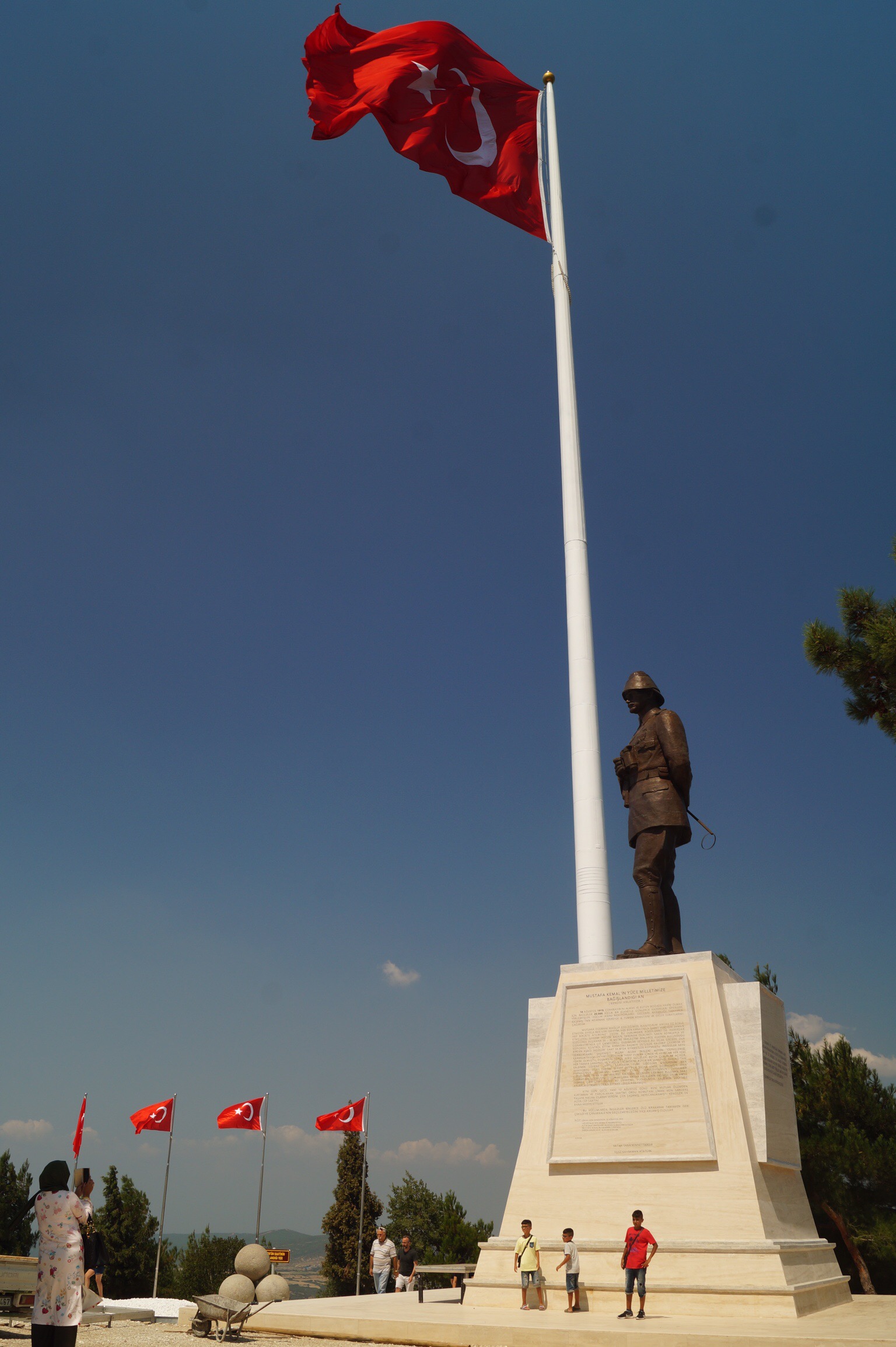 Gallipoli was also a place for a couple of fabulous wild camps, our first night we found a spot on top of the cliffs surrounded by forest next to the remains of several gun batteries. The smell of pine trees from one side, mingled with the sent of the sea. Steve walked down to W Beach and was amazed to find people swimming amongst the skeletons of the landing vessels of the Gallipoli campaign. The second night we drove down a firebreak in the forest and found a parking spot right on the edge of a cliff with a tiny sandy beach below. Once the few local families had packed up and left and we had put the girls to bed, I couldn't resist going for a relaxing swim as the sun set. It was so nice, that we swapped babysitting duties so Steve could cool off before bed too.
Gallipoli was also a place for a couple of fabulous wild camps, our first night we found a spot on top of the cliffs surrounded by forest next to the remains of several gun batteries. The smell of pine trees from one side, mingled with the sent of the sea. Steve walked down to W Beach and was amazed to find people swimming amongst the skeletons of the landing vessels of the Gallipoli campaign. The second night we drove down a firebreak in the forest and found a parking spot right on the edge of a cliff with a tiny sandy beach below. Once the few local families had packed up and left and we had put the girls to bed, I couldn't resist going for a relaxing swim as the sun set. It was so nice, that we swapped babysitting duties so Steve could cool off before bed too.
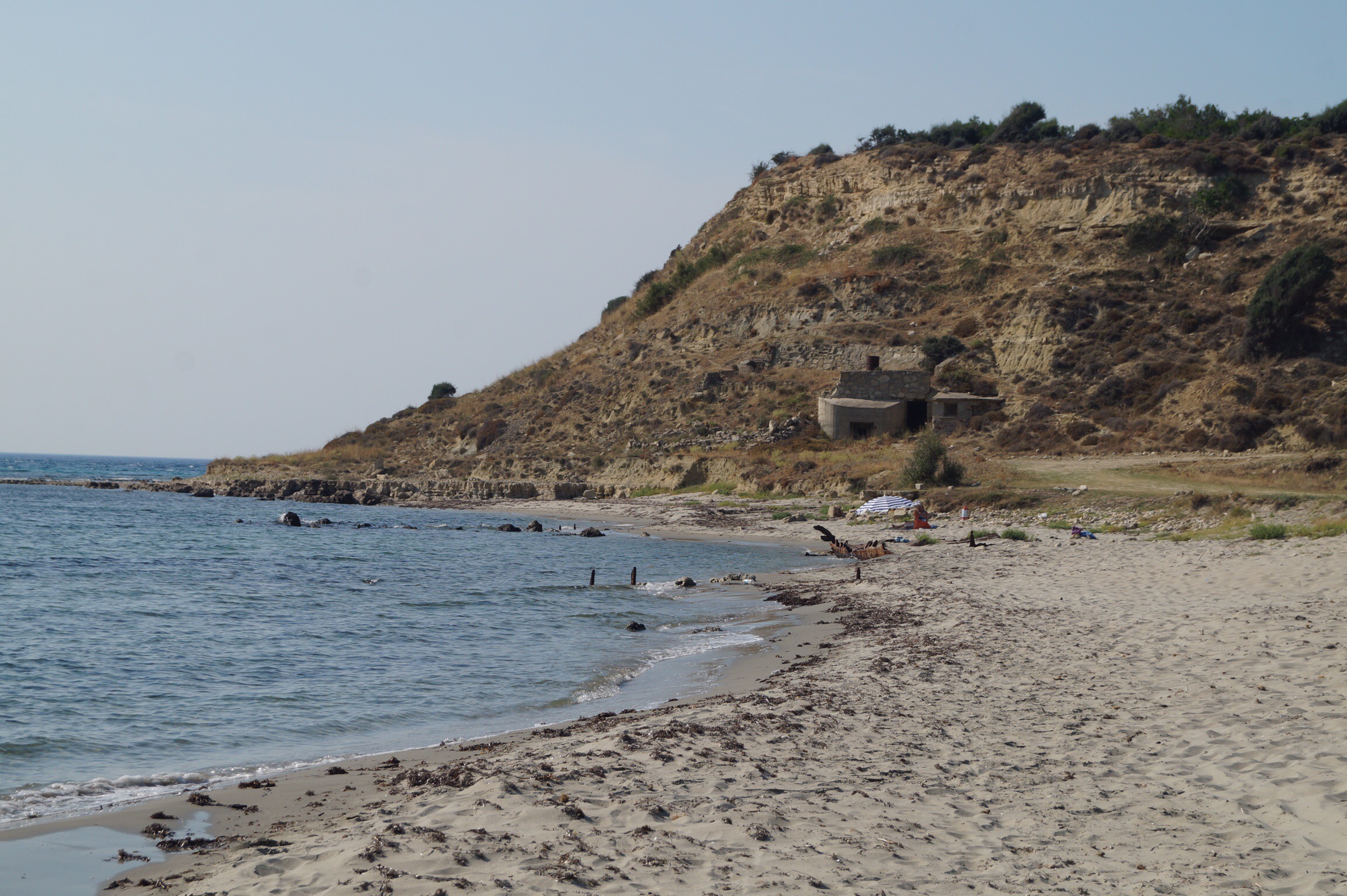
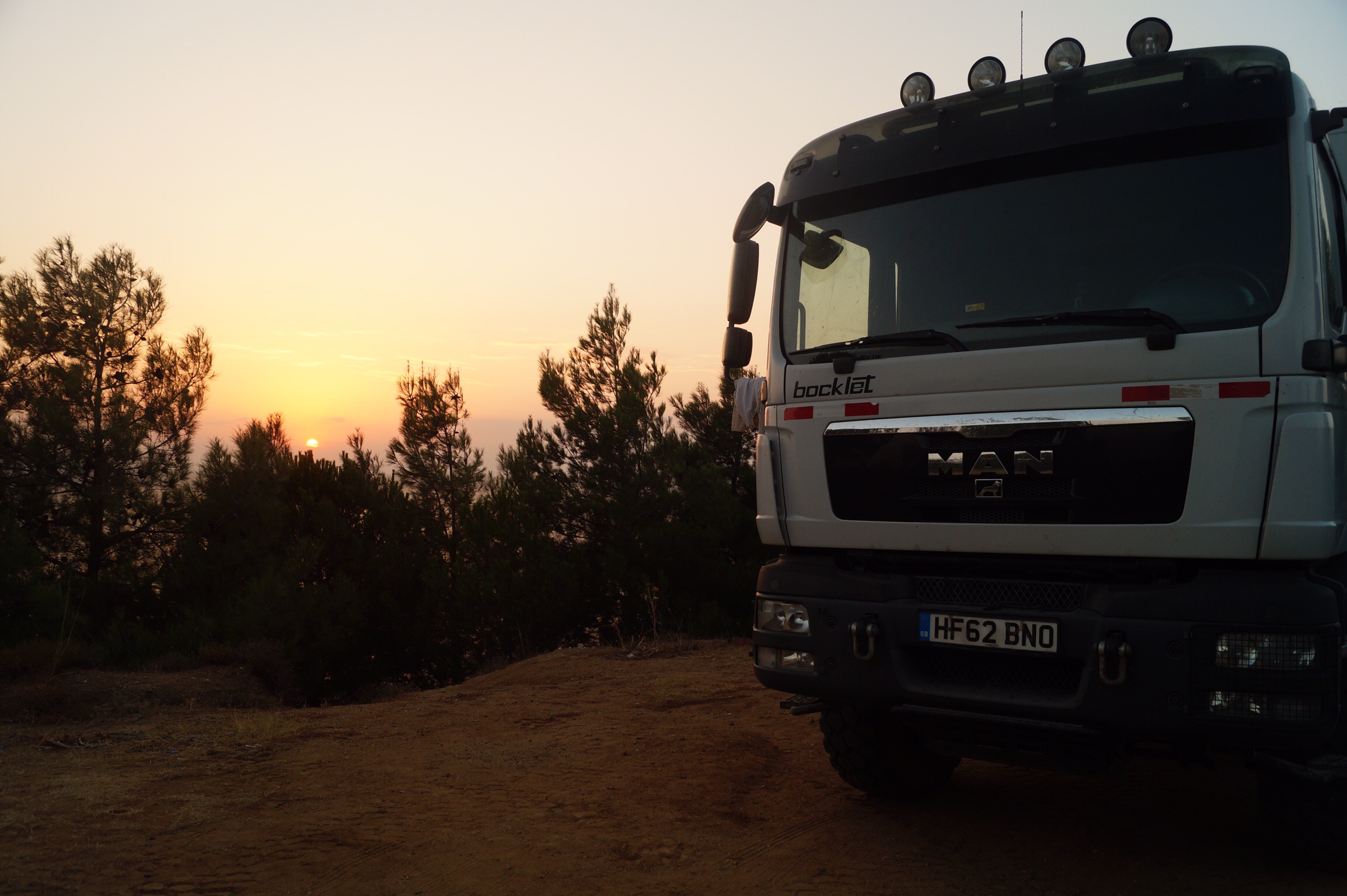 We skirted the Sea of Marmara coast as we made our way North-East to the north of Istanbul for more wonderful hospitality from Alper, Steve's friend and former colleague. I am sure when we ask the girls what they remember best about Istanbul it will be hanging out at Alper's house: everyone cooking a different course for supper, eating, relaxing and chatting. When Dina arrived the following day, they loved her as well, as she got them up dancing and swapping recipes. We are all experiencing a period of change, so there were lots of interesting discussions and ideas flying around.
We skirted the Sea of Marmara coast as we made our way North-East to the north of Istanbul for more wonderful hospitality from Alper, Steve's friend and former colleague. I am sure when we ask the girls what they remember best about Istanbul it will be hanging out at Alper's house: everyone cooking a different course for supper, eating, relaxing and chatting. When Dina arrived the following day, they loved her as well, as she got them up dancing and swapping recipes. We are all experiencing a period of change, so there were lots of interesting discussions and ideas flying around.
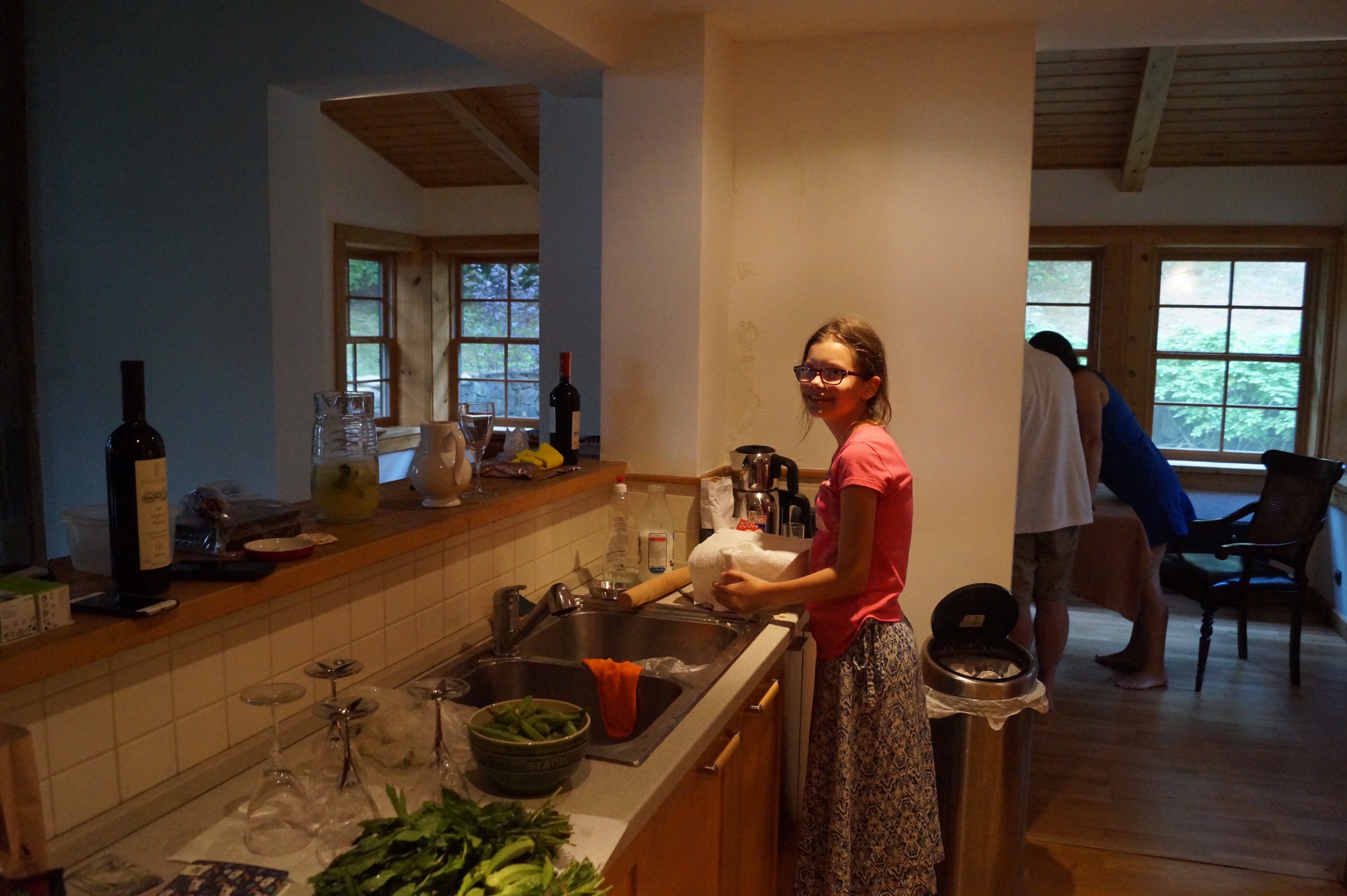
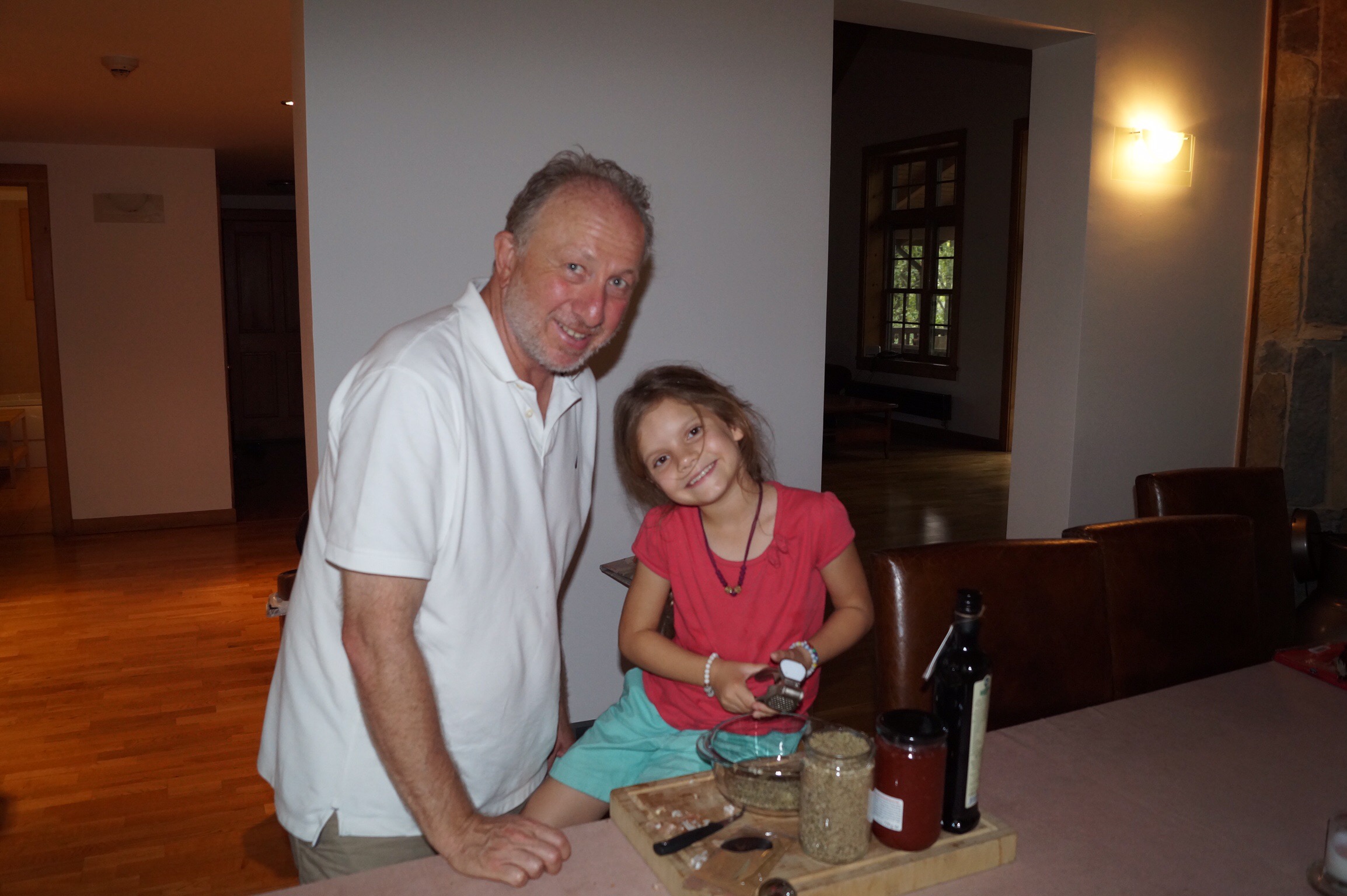
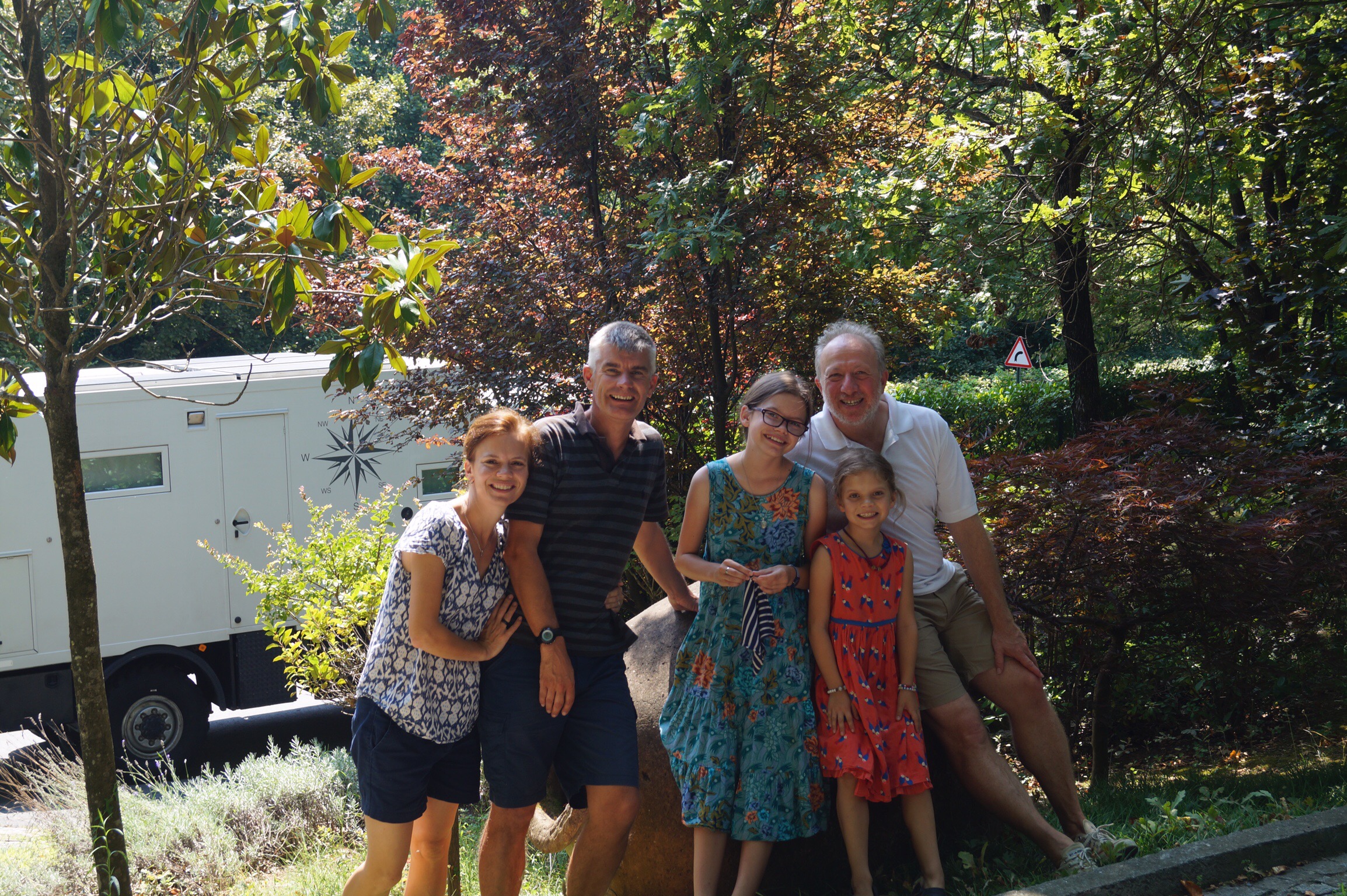 However, you can't come to Istanbul and not appreciate its wonderful heritage and history so we dragged ourselves away to the city on both days. The Aya Sofya was built in the 6th Century AD, first a church, then a mosque and now a museum. It's gigantic proportions awed us but we we were touched by the delicate nature of the Byzantine mosaics of Christ and his apostles on its walls.
However, you can't come to Istanbul and not appreciate its wonderful heritage and history so we dragged ourselves away to the city on both days. The Aya Sofya was built in the 6th Century AD, first a church, then a mosque and now a museum. It's gigantic proportions awed us but we we were touched by the delicate nature of the Byzantine mosaics of Christ and his apostles on its walls.

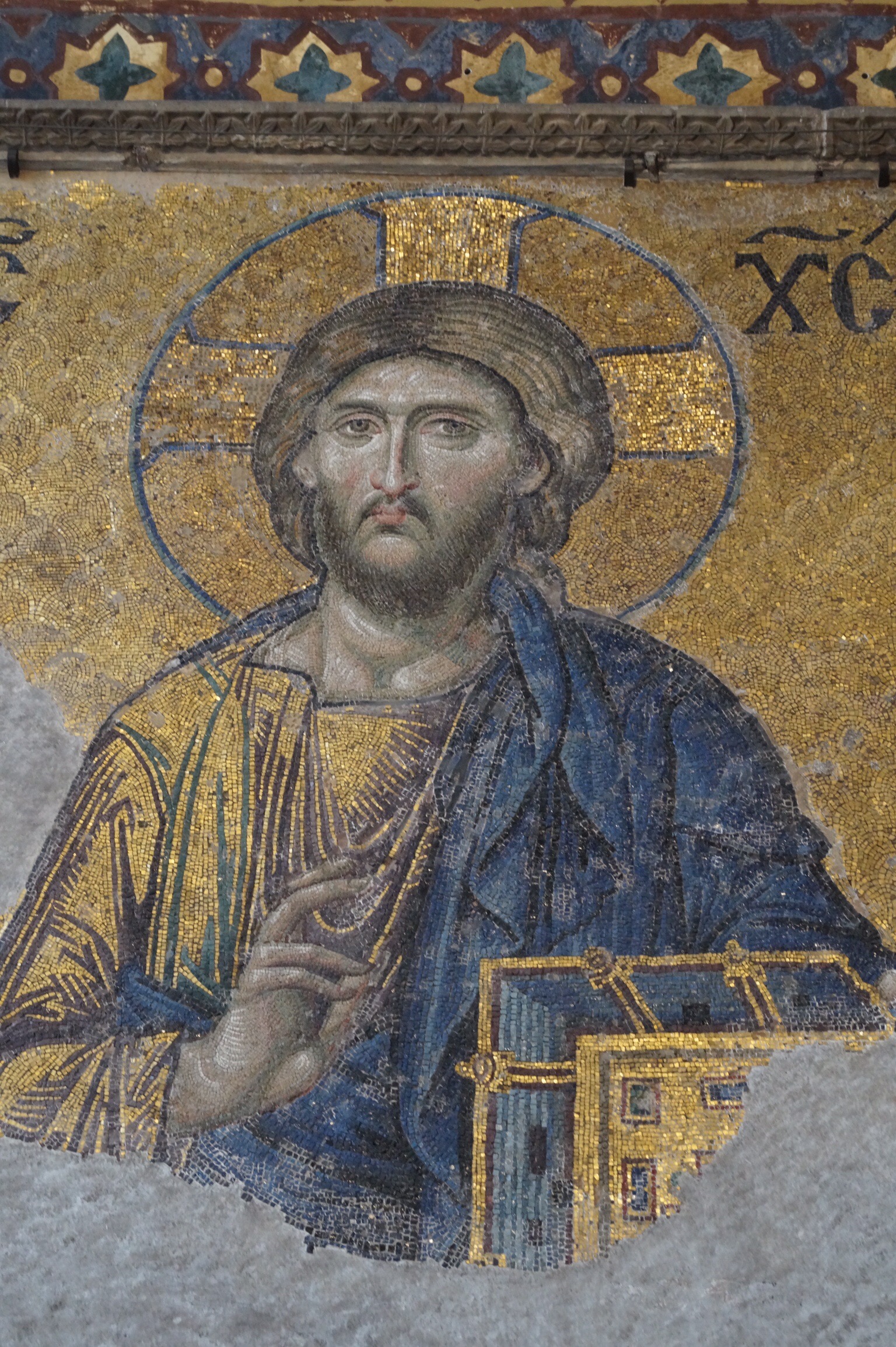 The Blue Mosque gets its unofficial name from the Iznik tiles that adorn its interior. It's one of Istanbul's biggest mosques and one of its busiest. We mistakenly arrived just before prayer time but while we waited for the worshipers, we were invited for a presentation about the mosque and Islam from volunteers in the adjoining Islamic Education Centre. It was fascinating as well as restorative, with air con, drinks and snacks. Later while Steve and I marvelled at the mosque's interior beauty, the girls tried to spot the ostrich shells suspended from the lofty ceiling to deter spiders.
The Blue Mosque gets its unofficial name from the Iznik tiles that adorn its interior. It's one of Istanbul's biggest mosques and one of its busiest. We mistakenly arrived just before prayer time but while we waited for the worshipers, we were invited for a presentation about the mosque and Islam from volunteers in the adjoining Islamic Education Centre. It was fascinating as well as restorative, with air con, drinks and snacks. Later while Steve and I marvelled at the mosque's interior beauty, the girls tried to spot the ostrich shells suspended from the lofty ceiling to deter spiders.
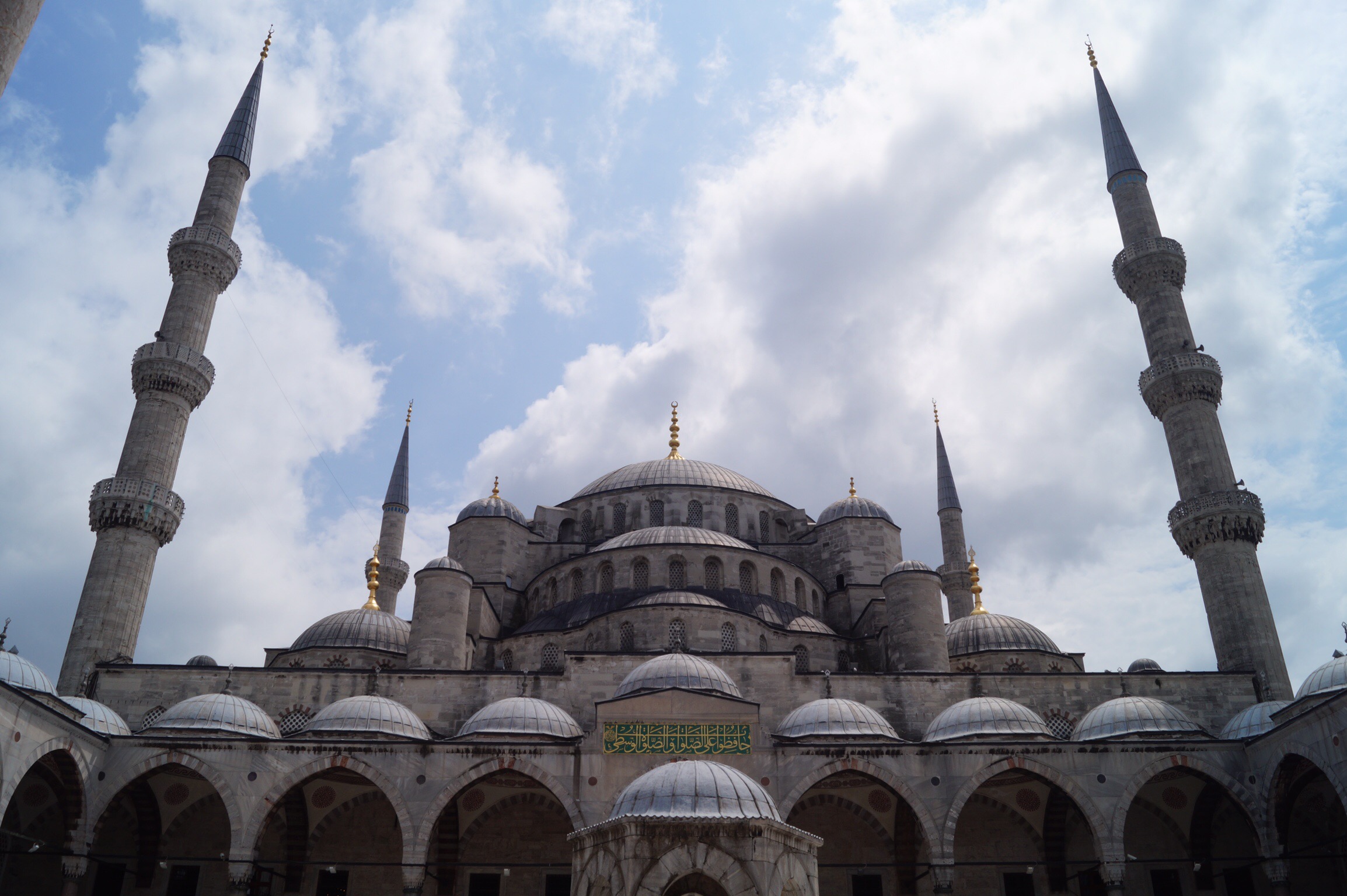
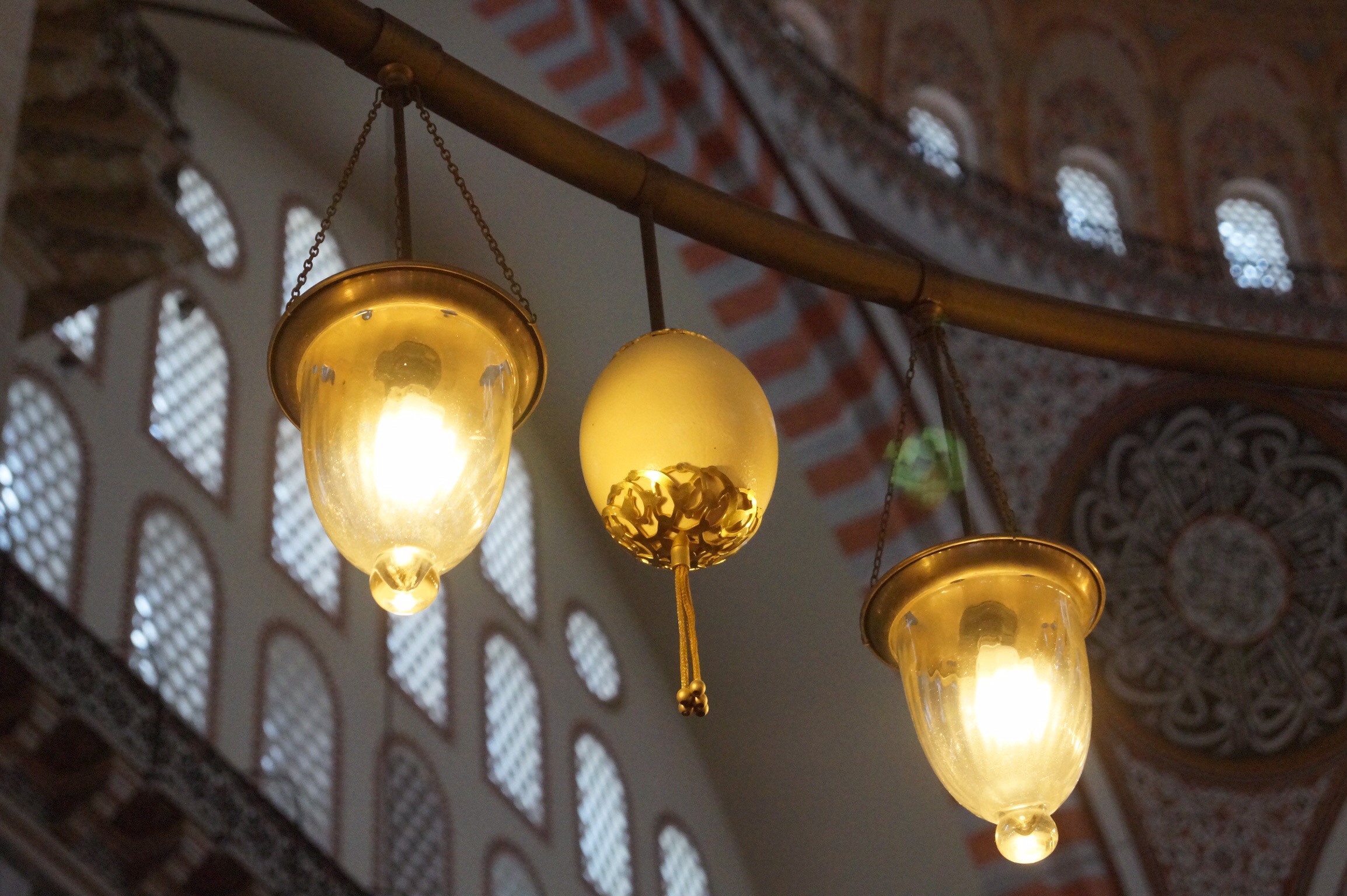
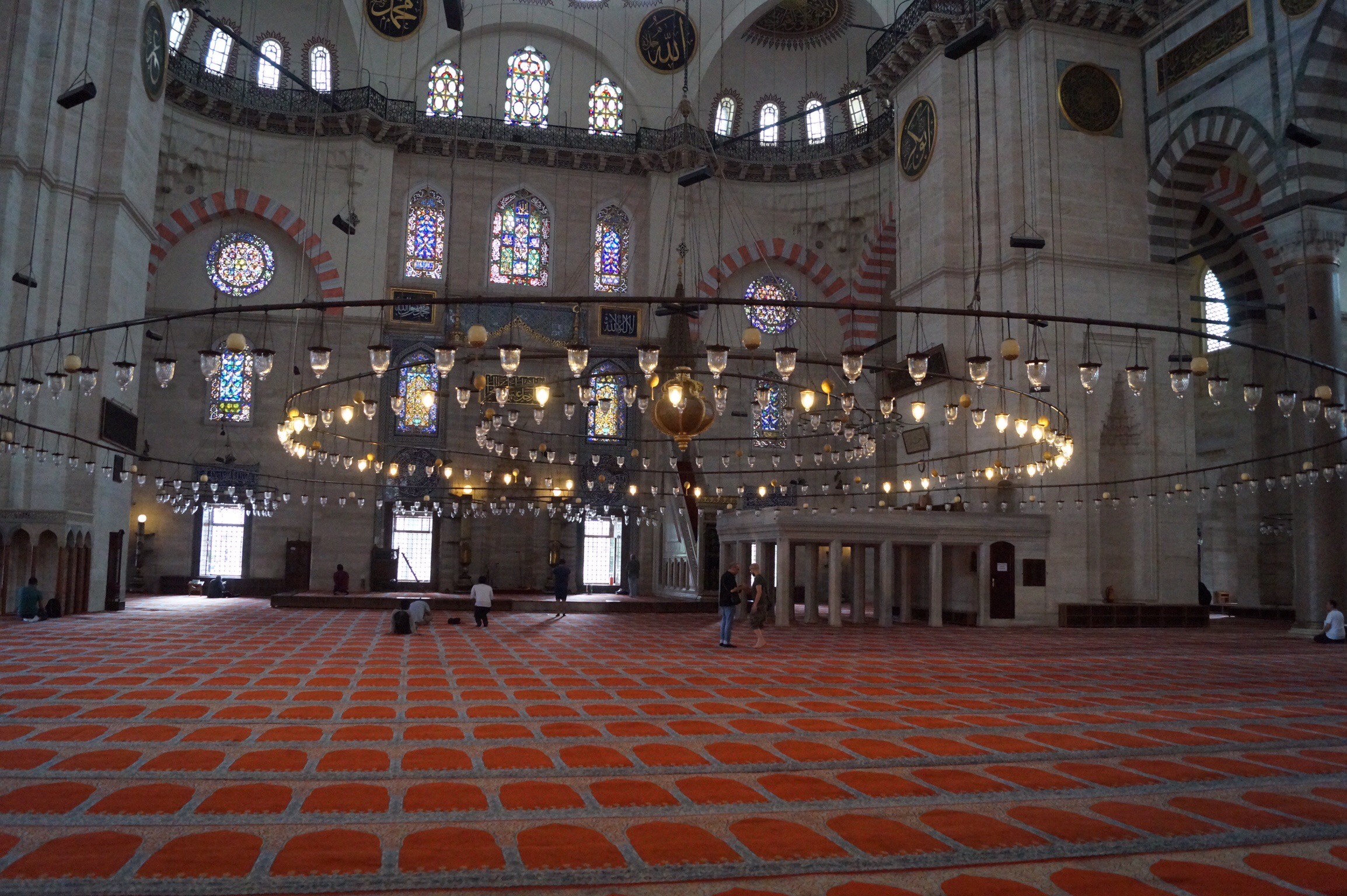 The Grand Bazaar is in the heart of the old city and while we didn't want to buy anything it was fascinating to wander its arched walk ways and marvel at the different areas of commerce. The Spice Market held a similar thrall with exotic smells bursting from all of the shops. Each enticing visitors with displays of teas, spices and jewel coloured Turkish delight. Here we couldn't resist the wares on sale as we were tempted in by free chocolates and different flavours of Turkish delight, the pomegranate was a particular favourite.
The Grand Bazaar is in the heart of the old city and while we didn't want to buy anything it was fascinating to wander its arched walk ways and marvel at the different areas of commerce. The Spice Market held a similar thrall with exotic smells bursting from all of the shops. Each enticing visitors with displays of teas, spices and jewel coloured Turkish delight. Here we couldn't resist the wares on sale as we were tempted in by free chocolates and different flavours of Turkish delight, the pomegranate was a particular favourite.

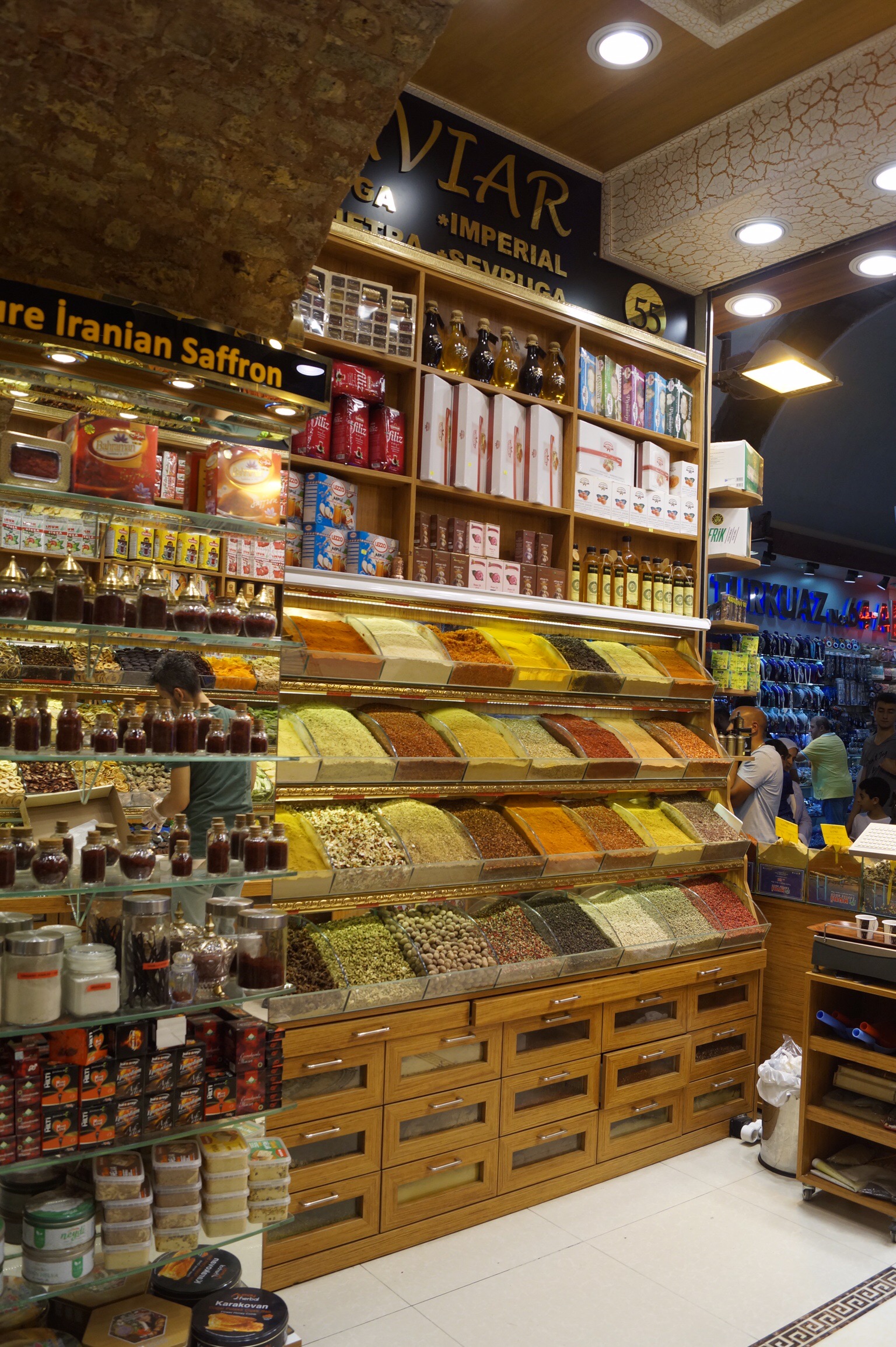
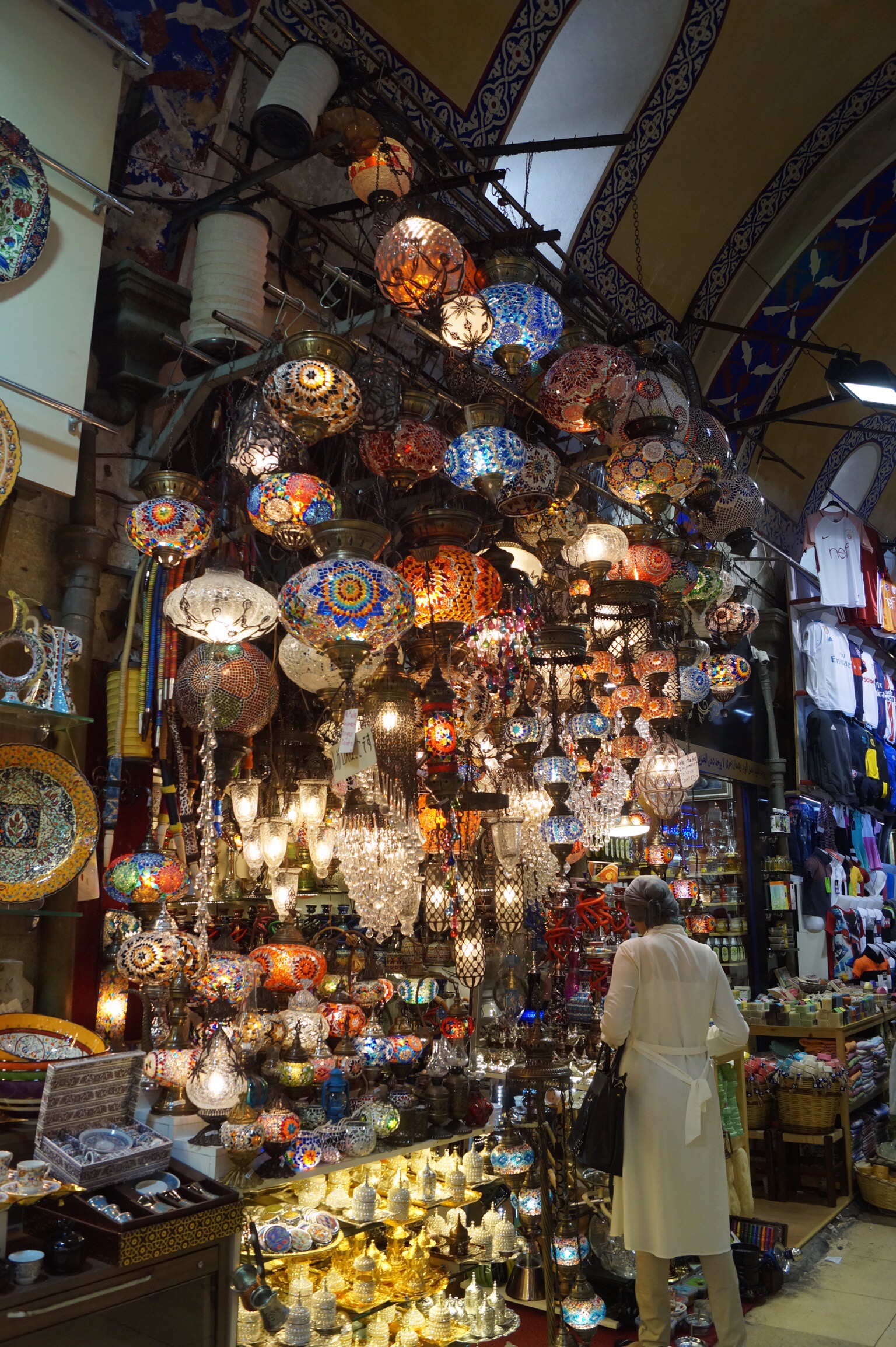 The following day we headed to the Topkapi Palace, the palace of the sultans where we were dazzled by the harem and palaces. It was said the sultan rarely left the palace and whilst it was a beautiful place where his every need and wish was looked after it must have felt a bit like been a prisoner. Still there were superb views over the Bosphorus from the palace walls.
The following day we headed to the Topkapi Palace, the palace of the sultans where we were dazzled by the harem and palaces. It was said the sultan rarely left the palace and whilst it was a beautiful place where his every need and wish was looked after it must have felt a bit like been a prisoner. Still there were superb views over the Bosphorus from the palace walls.
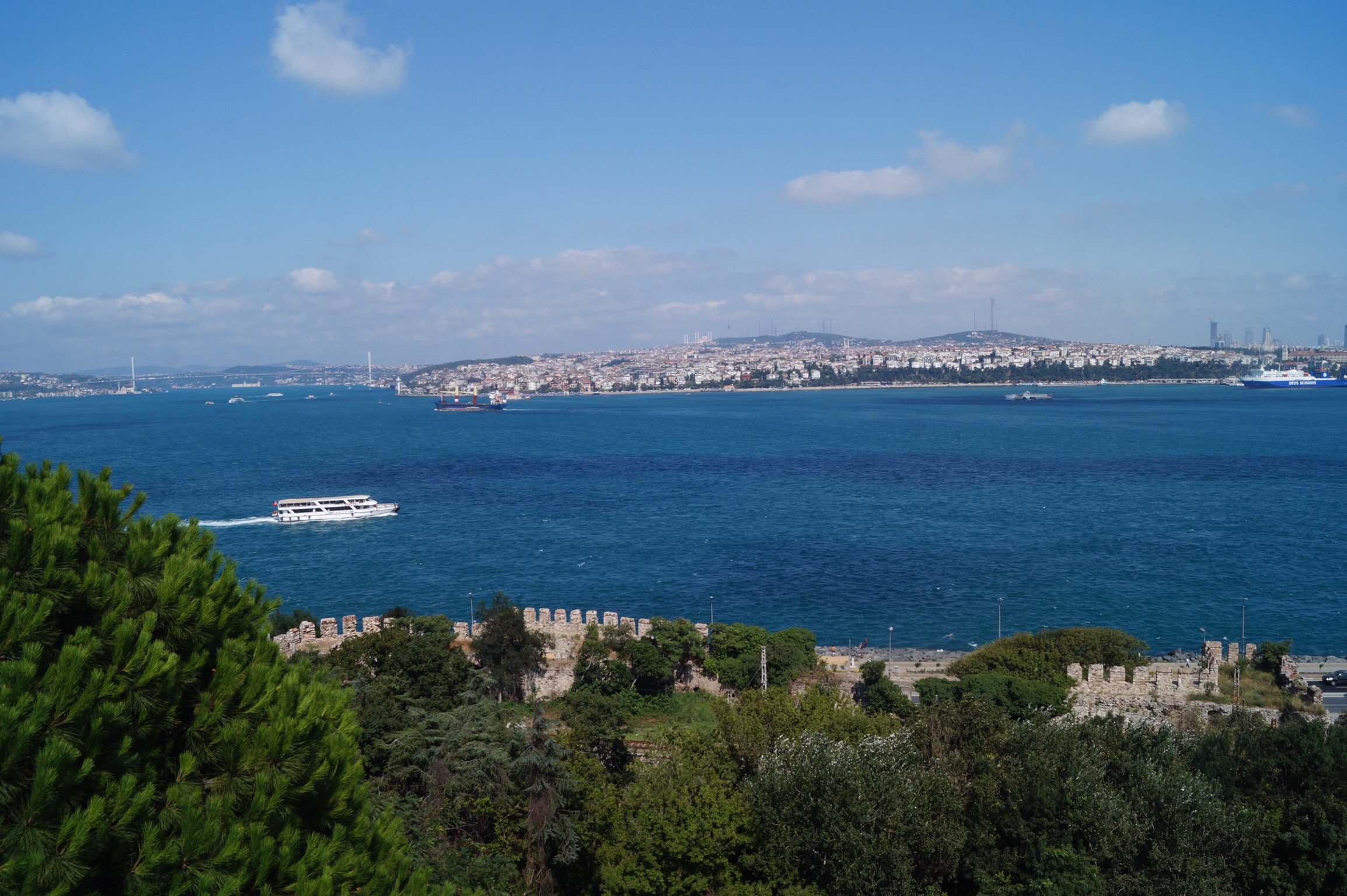
 On our last evening, we met with Alper and Dina on the banks of the Bosphorus. There is something very magical about crossing the water to a different continent, Asia, by ferry as the sun starts to sink in the sky. It highlights Istanbul's unique position and character. We crossed back to Europe in time to eat at Aheste, one of Alper's favourite restaurants owned by a family friend were we were wowed with a deliciously diverse selection of meze, each small plate holding a different burst of flavour on the palate. The girls were delighted to chat to Alper's friend, who asked them all about our trip. And they were even more delighted, as we were touched, with the pile of profiteroles with 4 candles to celebrate our 4 year anniversary on the road.
On our last evening, we met with Alper and Dina on the banks of the Bosphorus. There is something very magical about crossing the water to a different continent, Asia, by ferry as the sun starts to sink in the sky. It highlights Istanbul's unique position and character. We crossed back to Europe in time to eat at Aheste, one of Alper's favourite restaurants owned by a family friend were we were wowed with a deliciously diverse selection of meze, each small plate holding a different burst of flavour on the palate. The girls were delighted to chat to Alper's friend, who asked them all about our trip. And they were even more delighted, as we were touched, with the pile of profiteroles with 4 candles to celebrate our 4 year anniversary on the road.
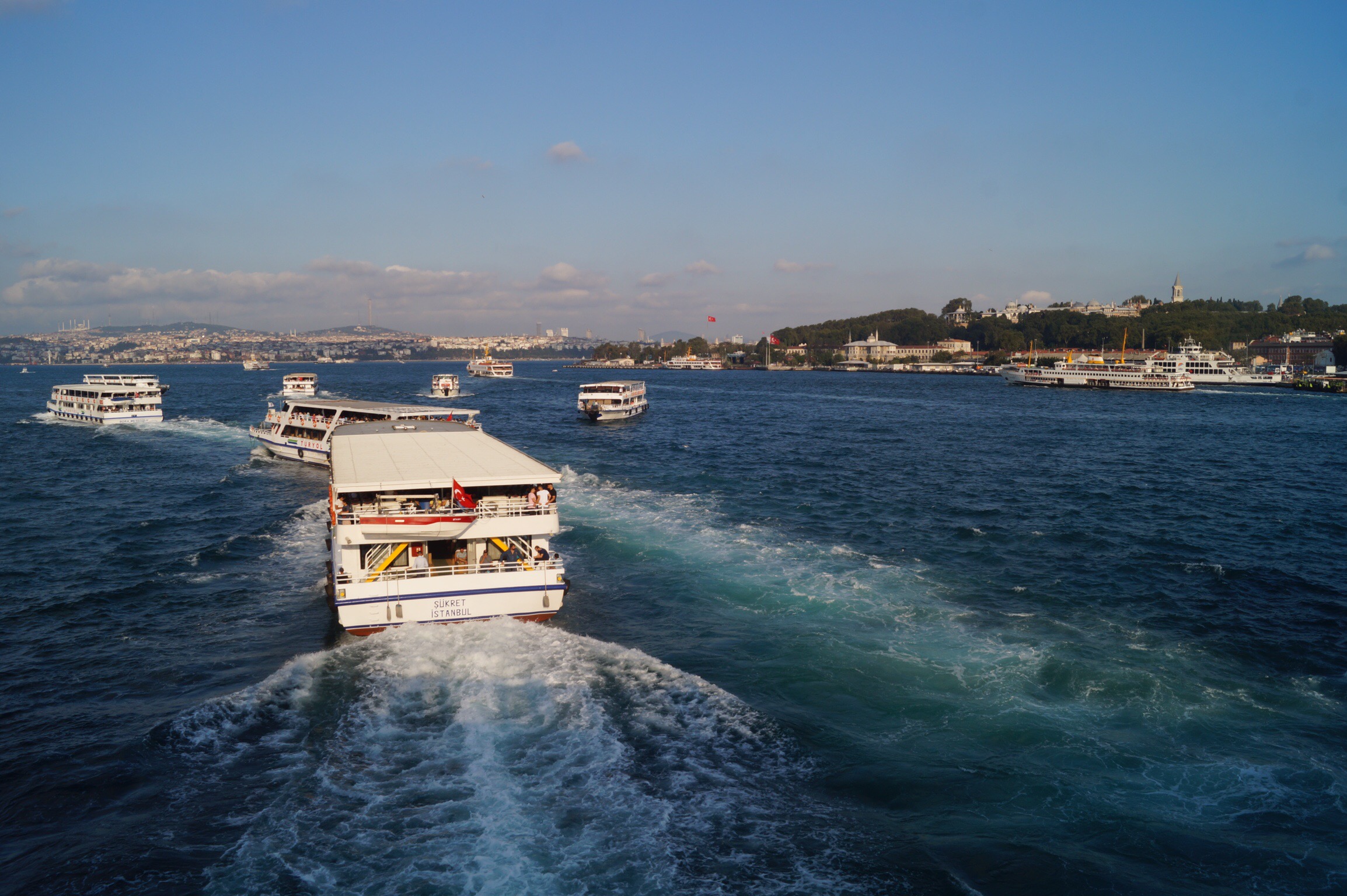
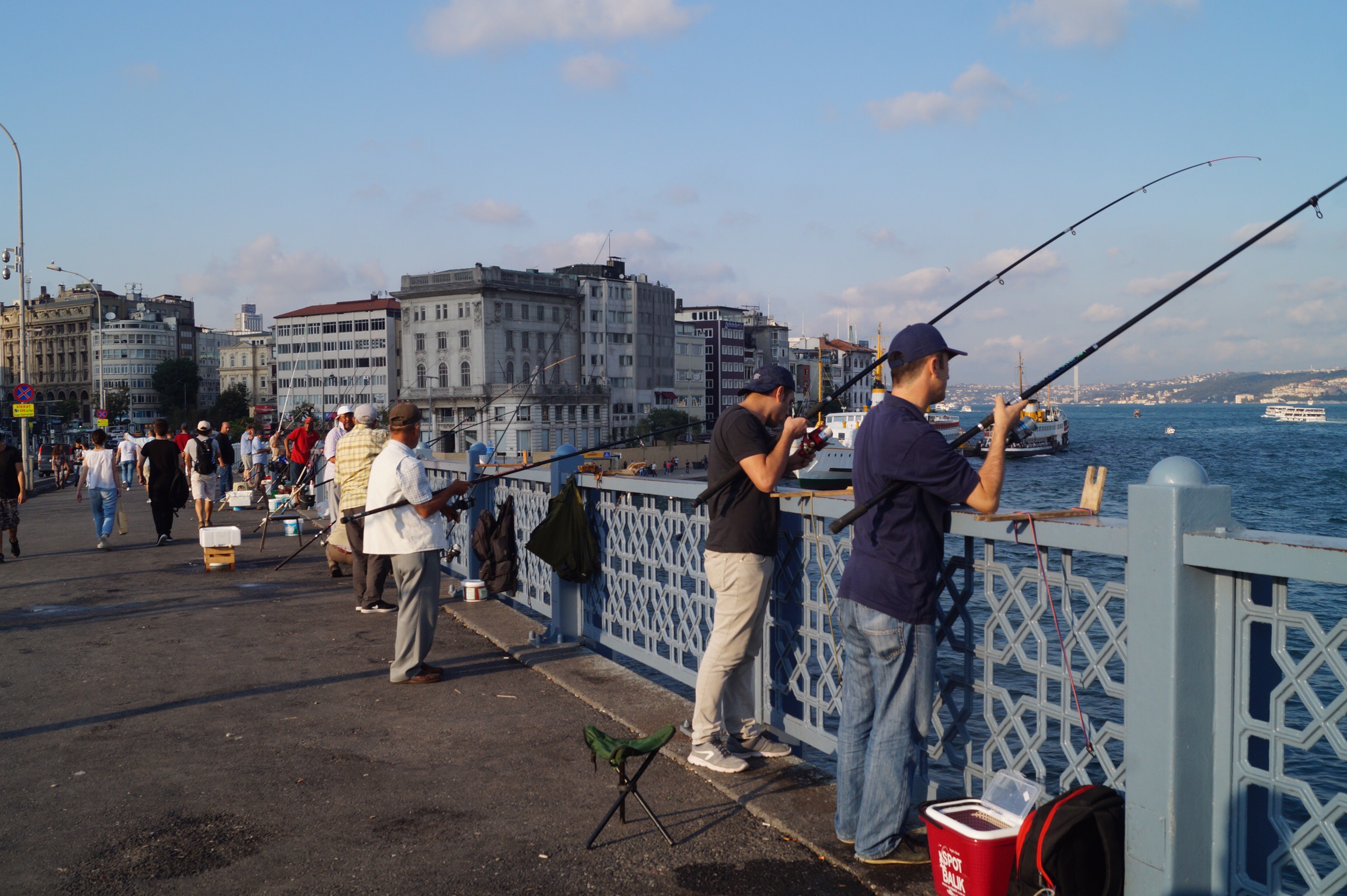
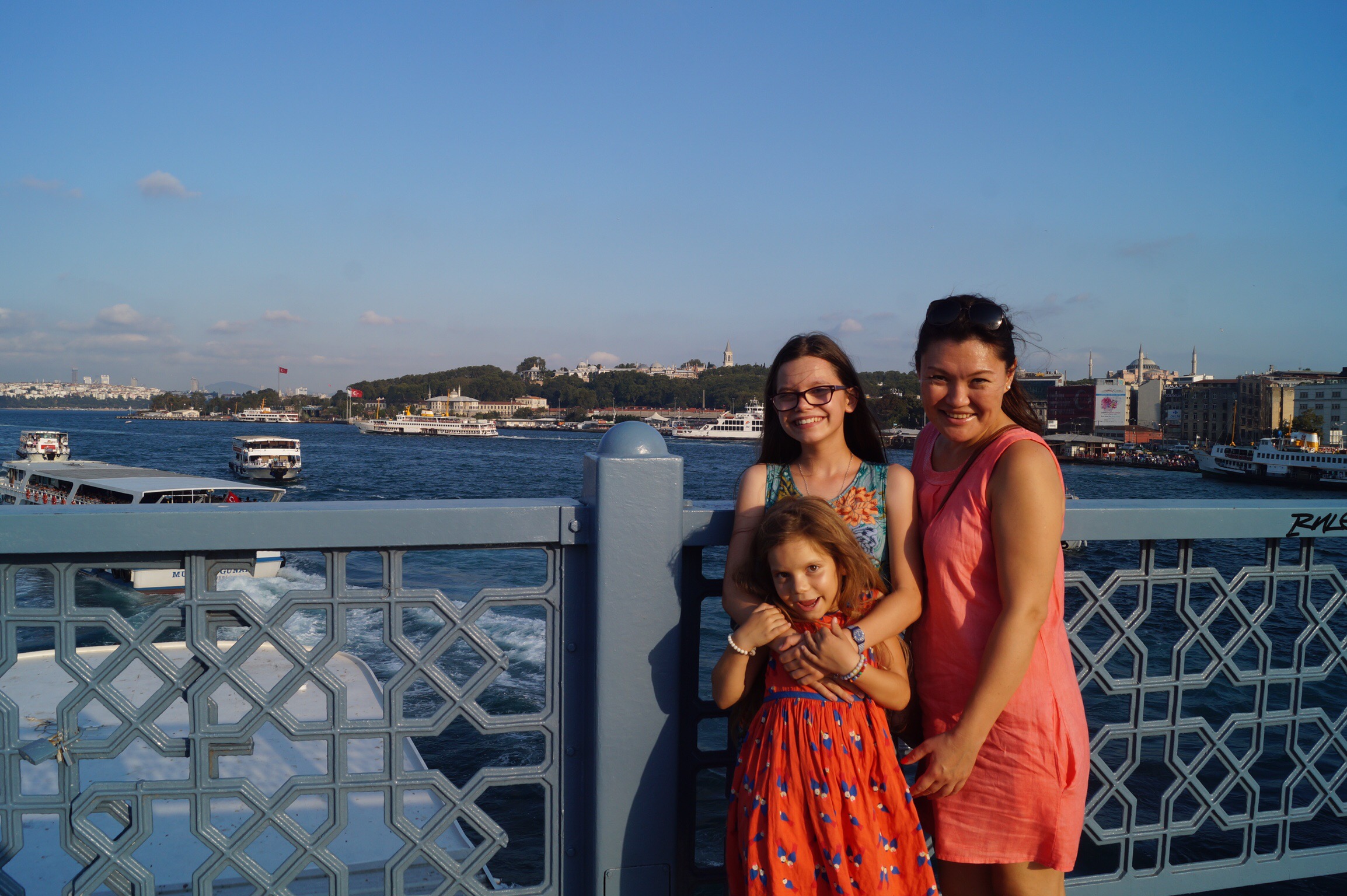
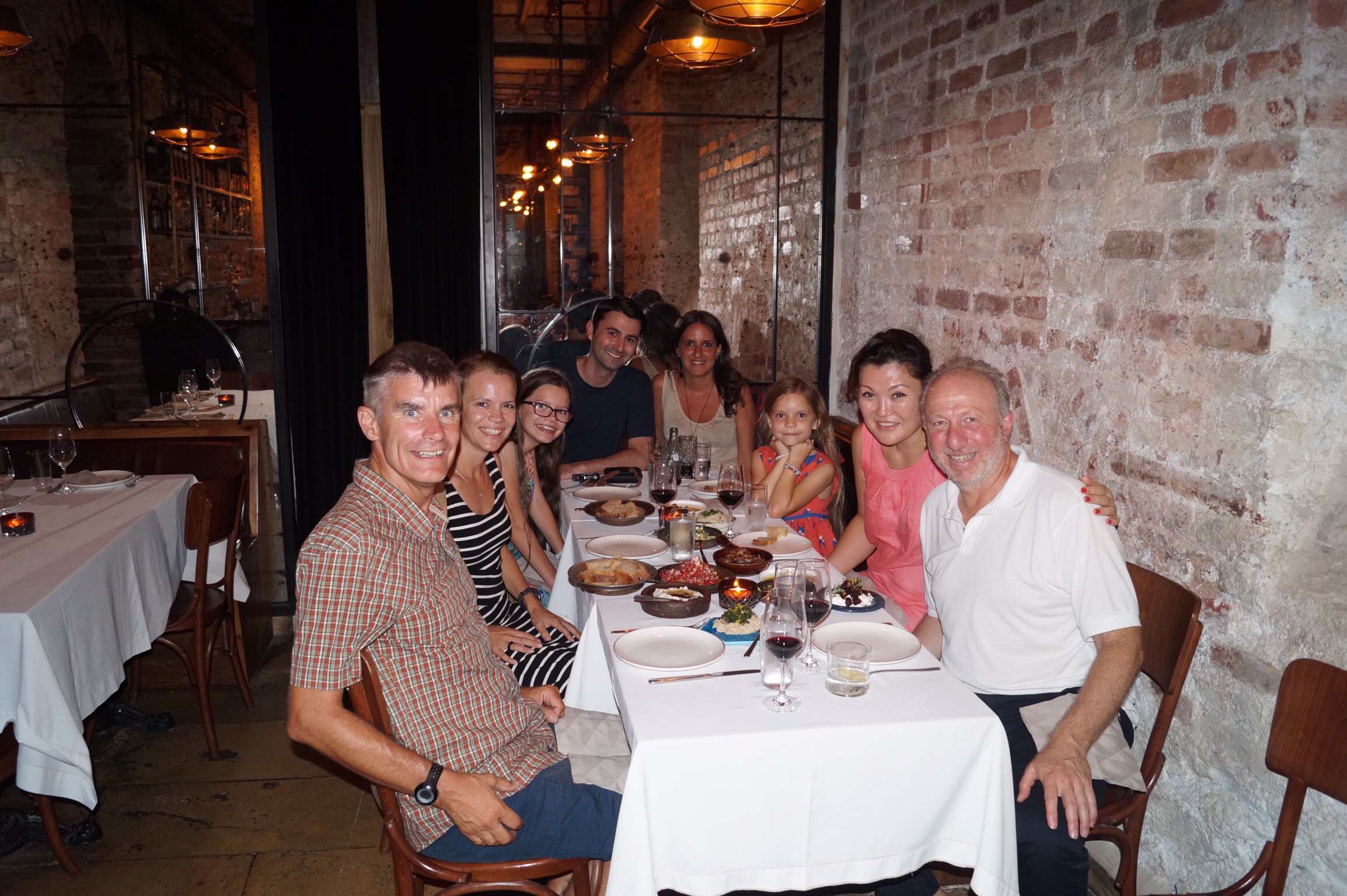 That night as we arrived home a huge yellow moon hung over the trees. The last line of the first verse of the song "Now it's a Turkish delight on a moonlit night." Seemed to ring particularly true. Istanbul, it was too short - we will be coming back.With sad hearts, and probably a few extra pounds of weight, we left Istanbul next morning and headed for the border with Greece. We found a quiet spot beside a lake for the night, just a few kilometres from the border.
That night as we arrived home a huge yellow moon hung over the trees. The last line of the first verse of the song "Now it's a Turkish delight on a moonlit night." Seemed to ring particularly true. Istanbul, it was too short - we will be coming back.With sad hearts, and probably a few extra pounds of weight, we left Istanbul next morning and headed for the border with Greece. We found a quiet spot beside a lake for the night, just a few kilometres from the border. 



































